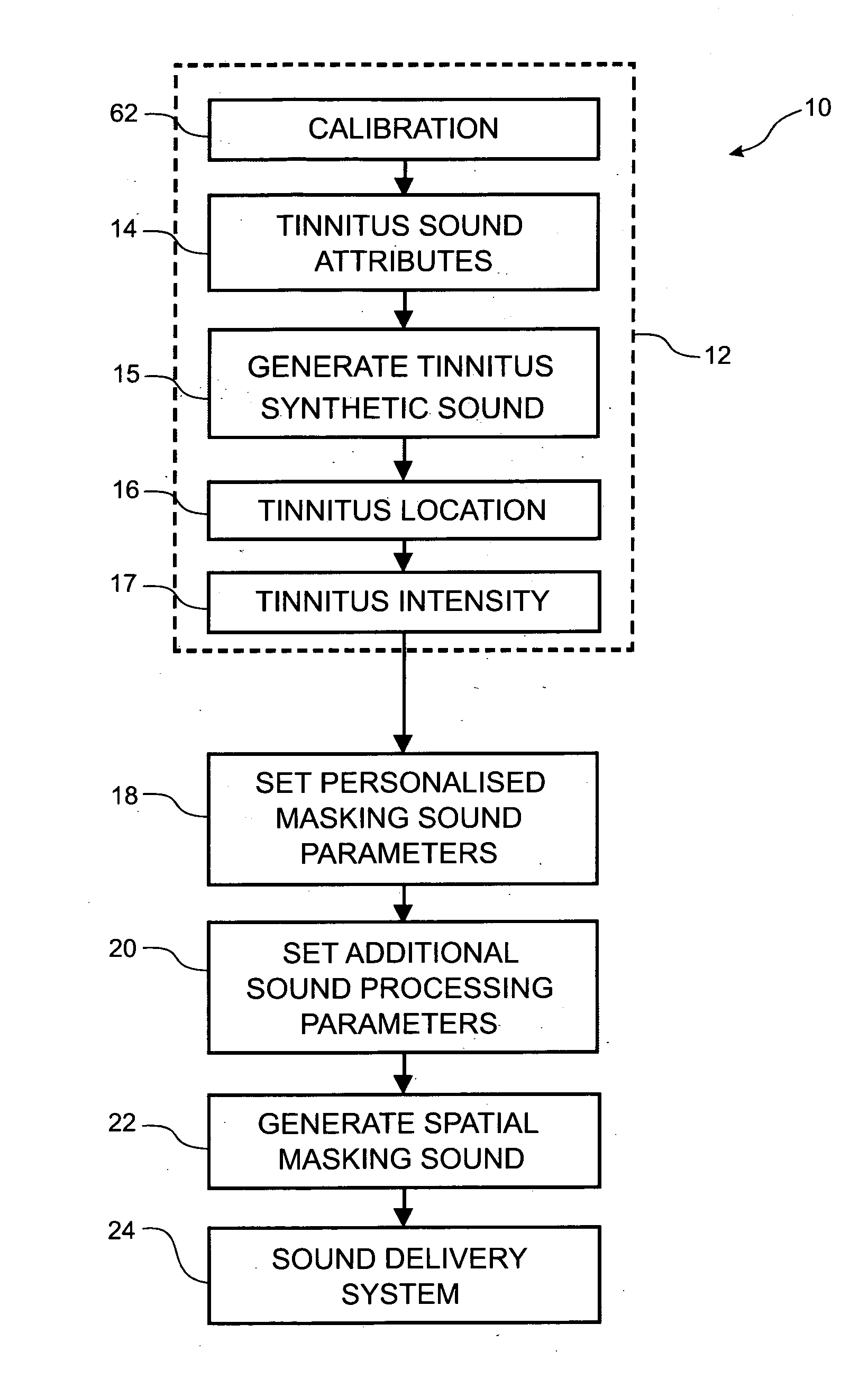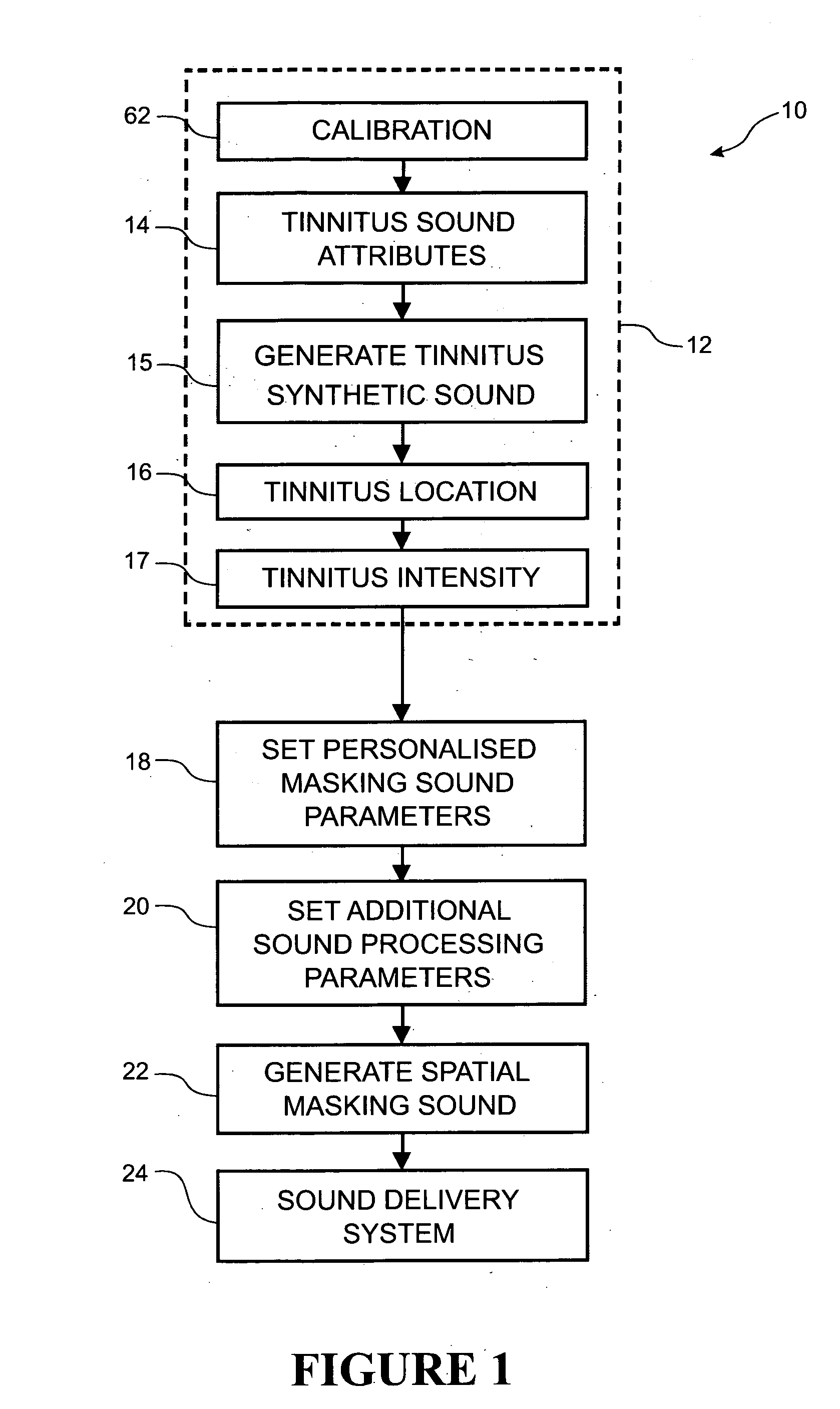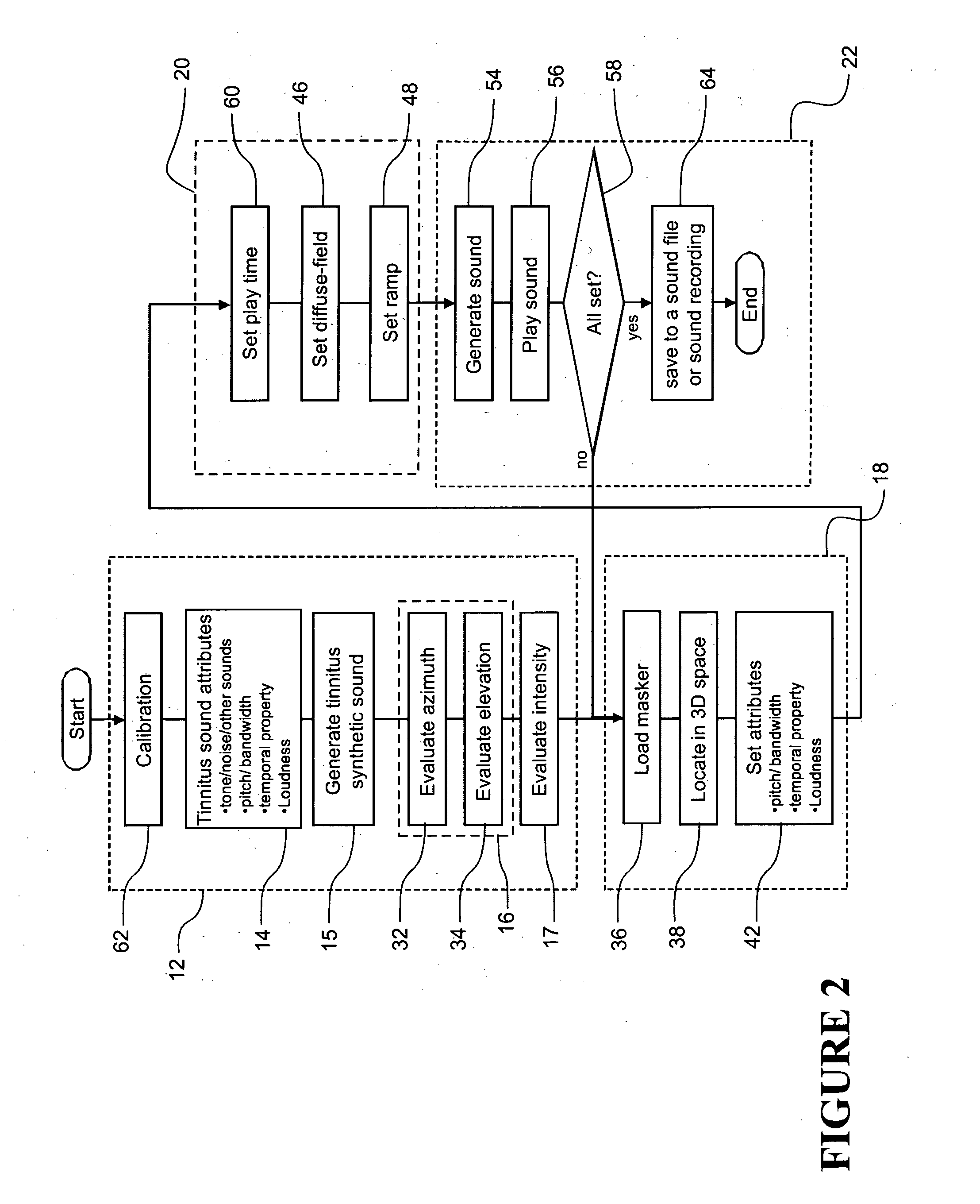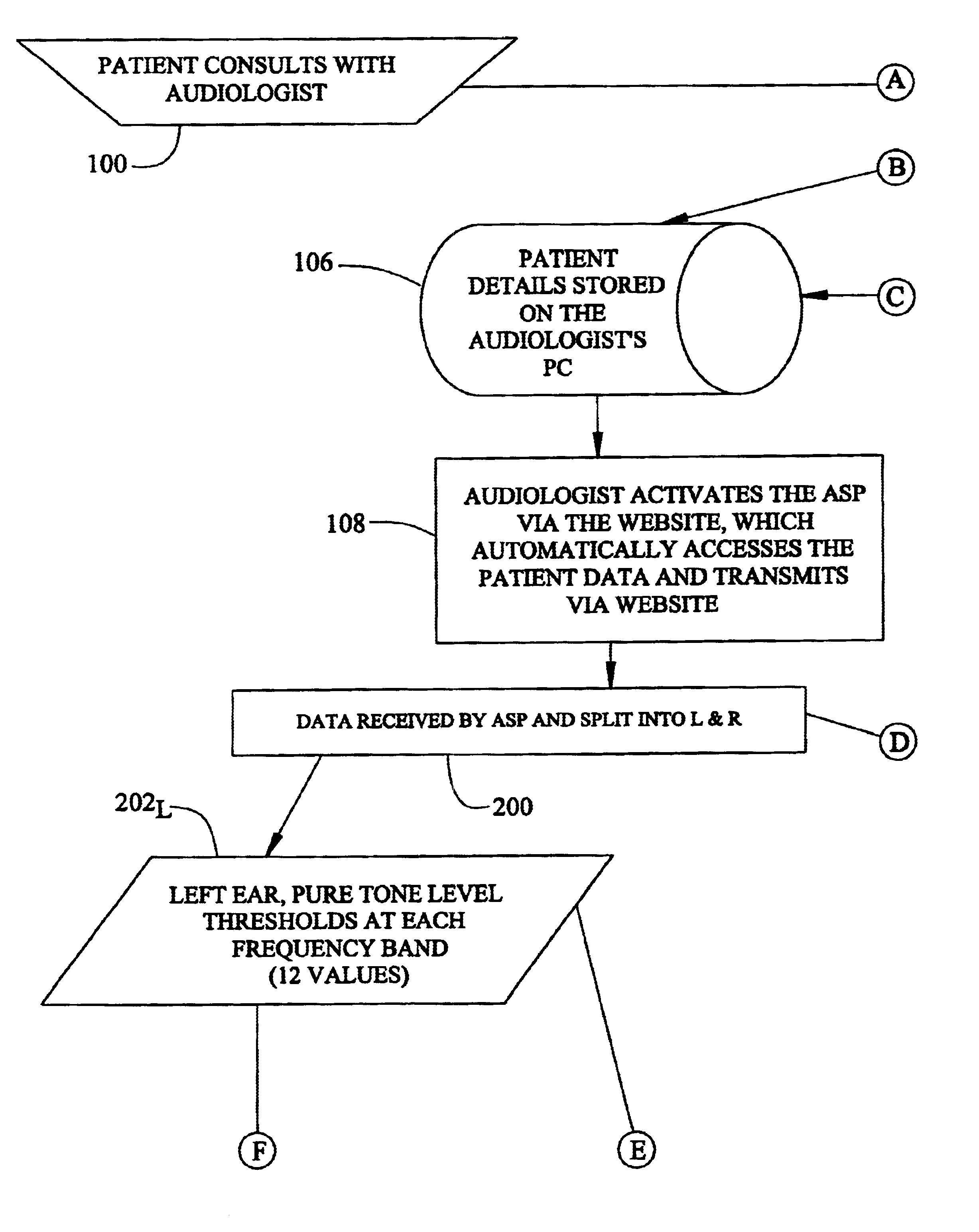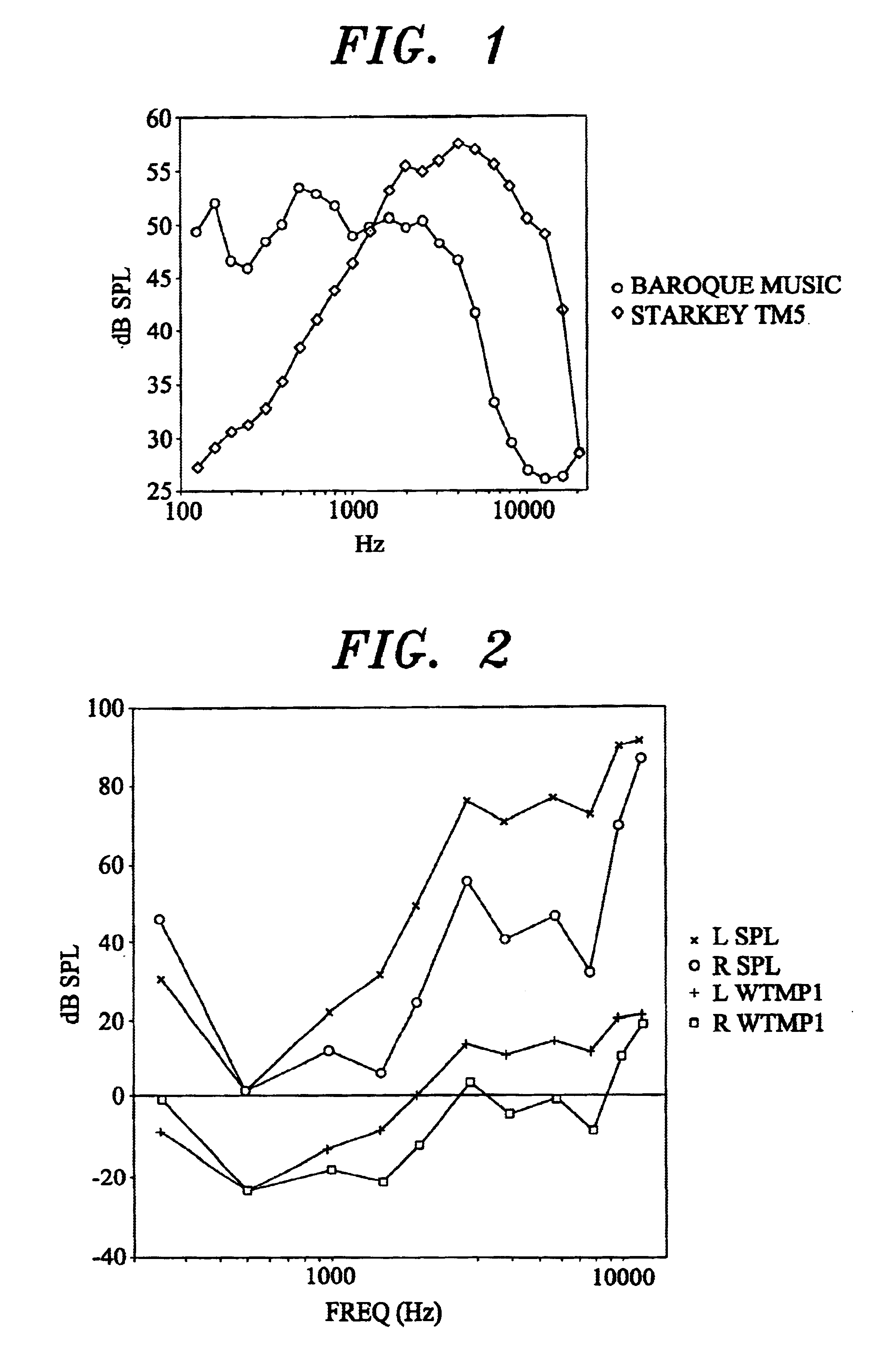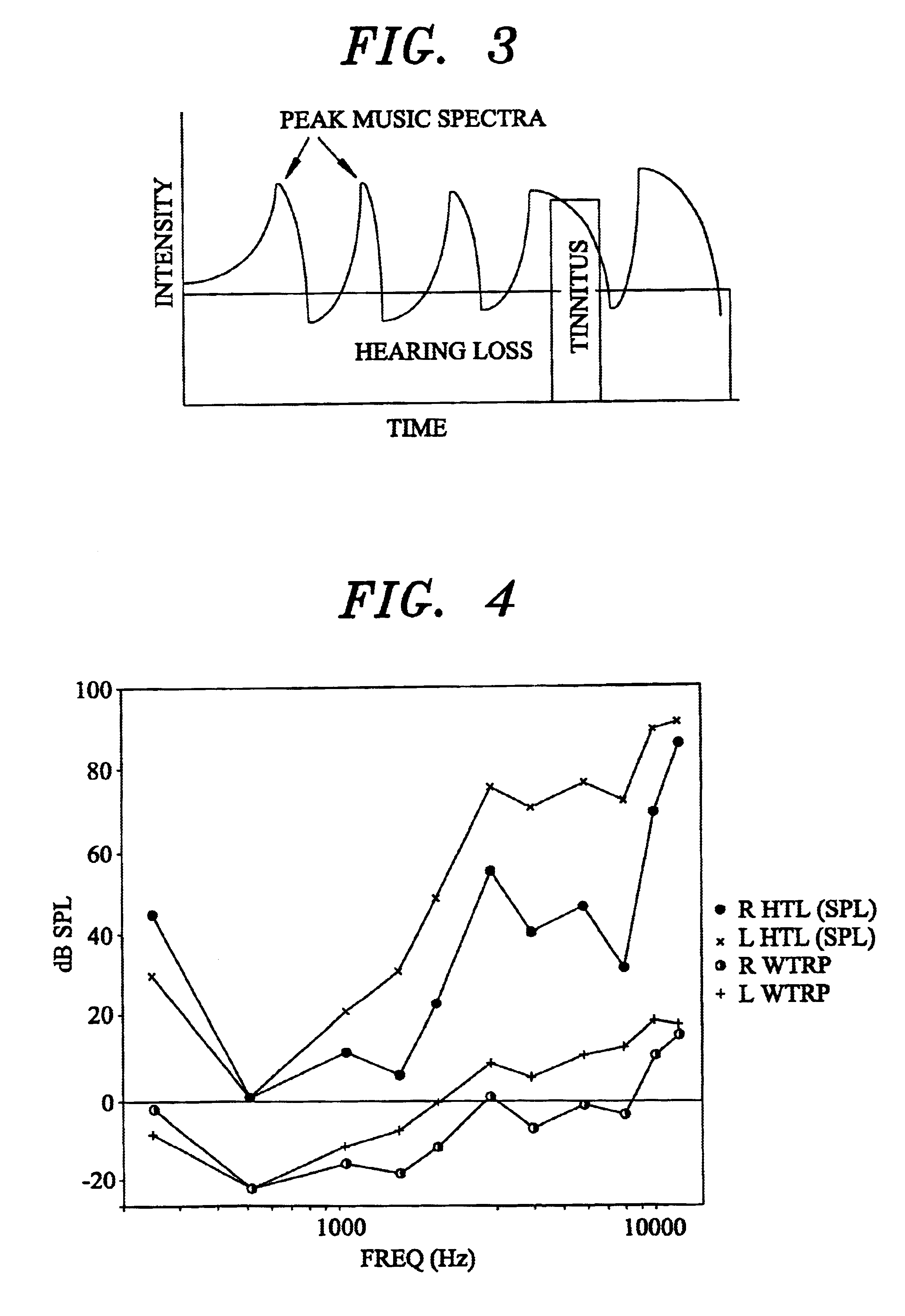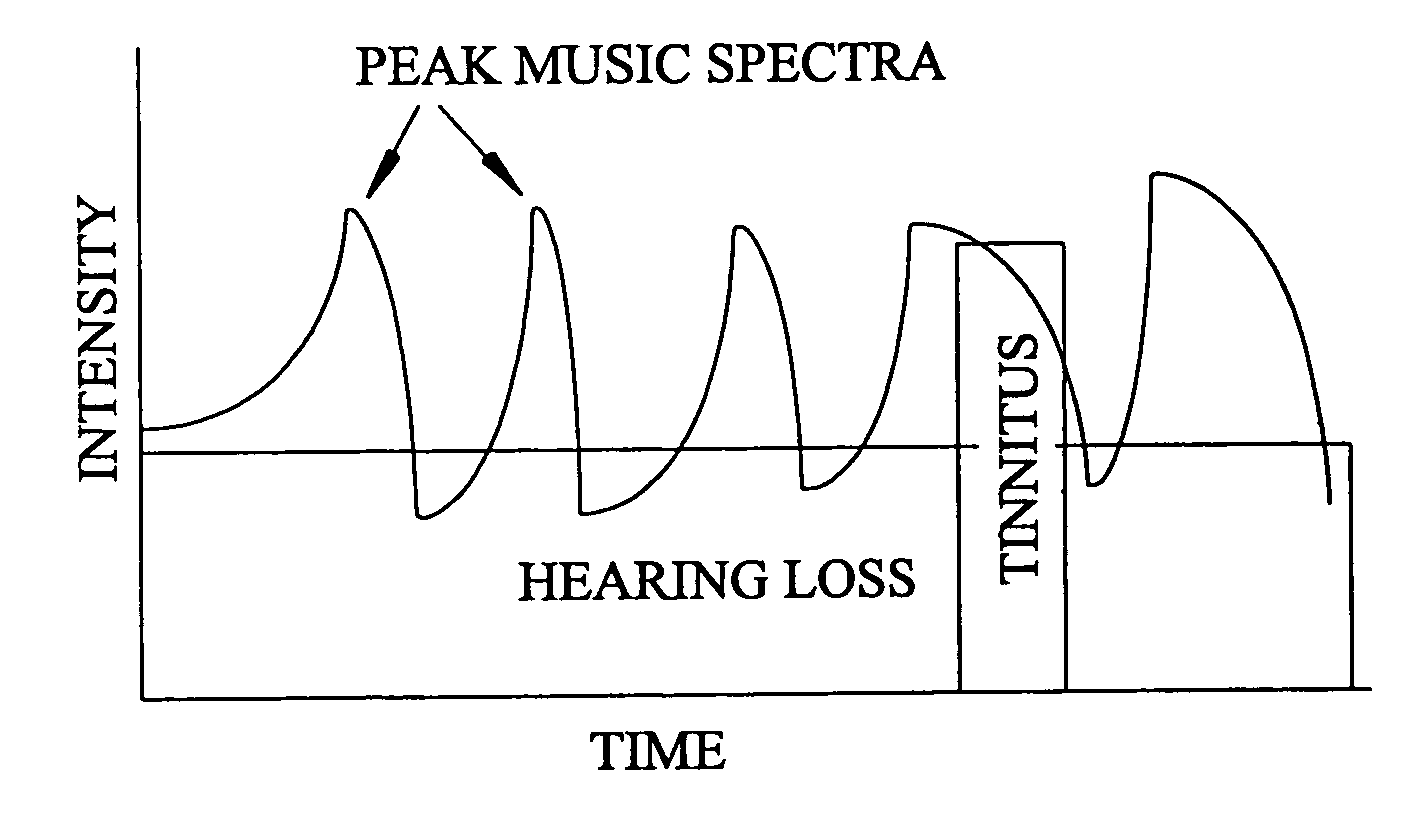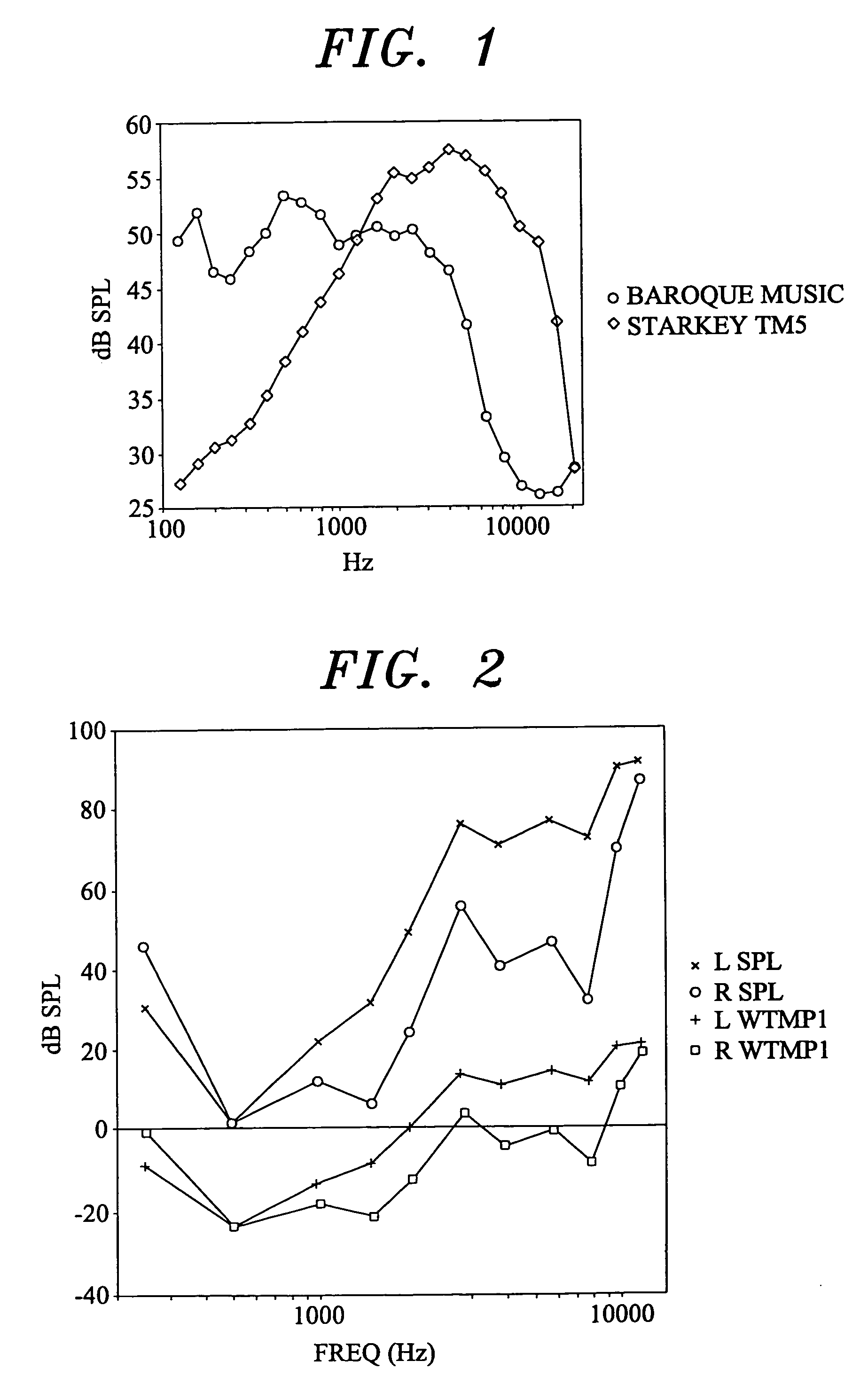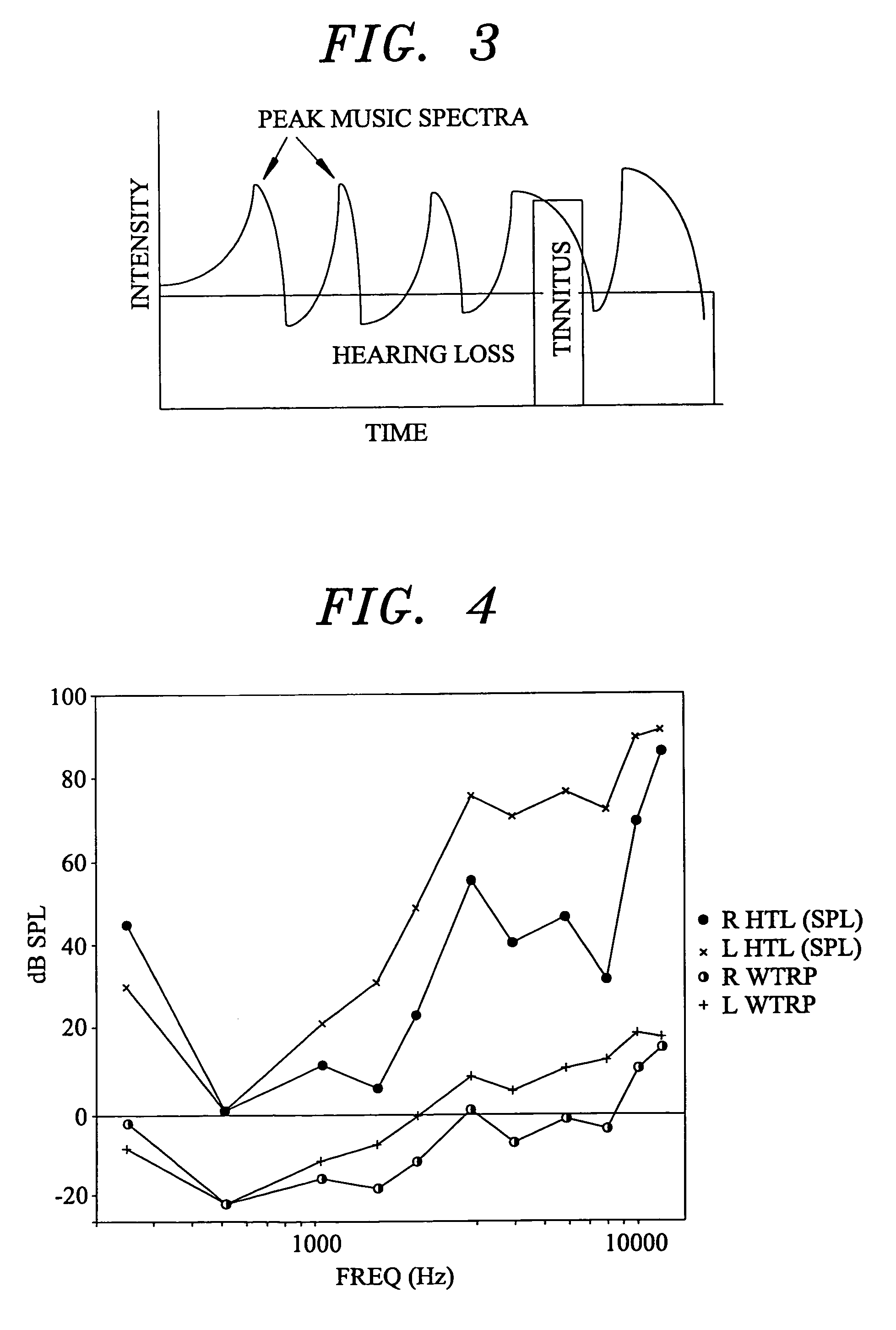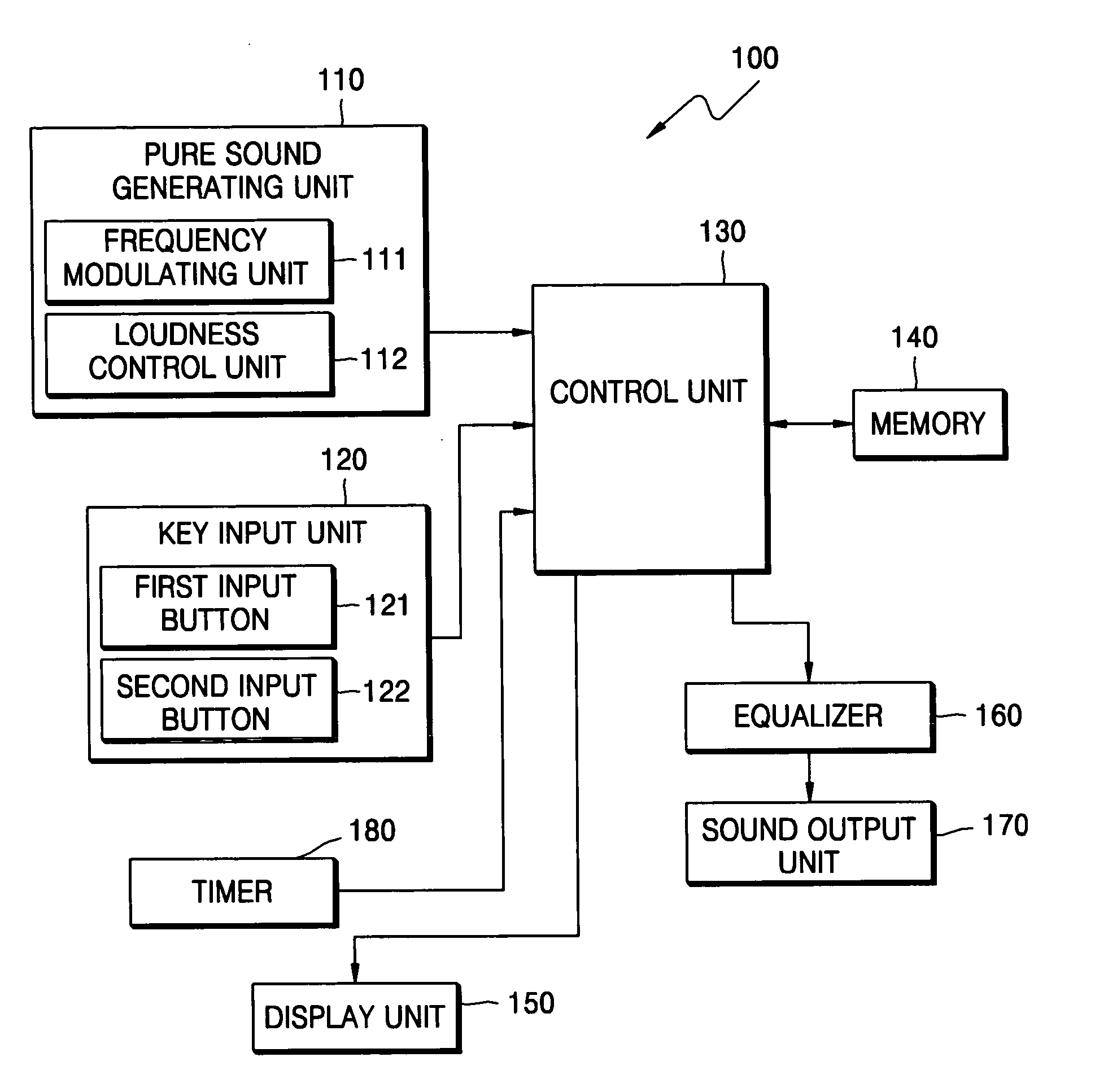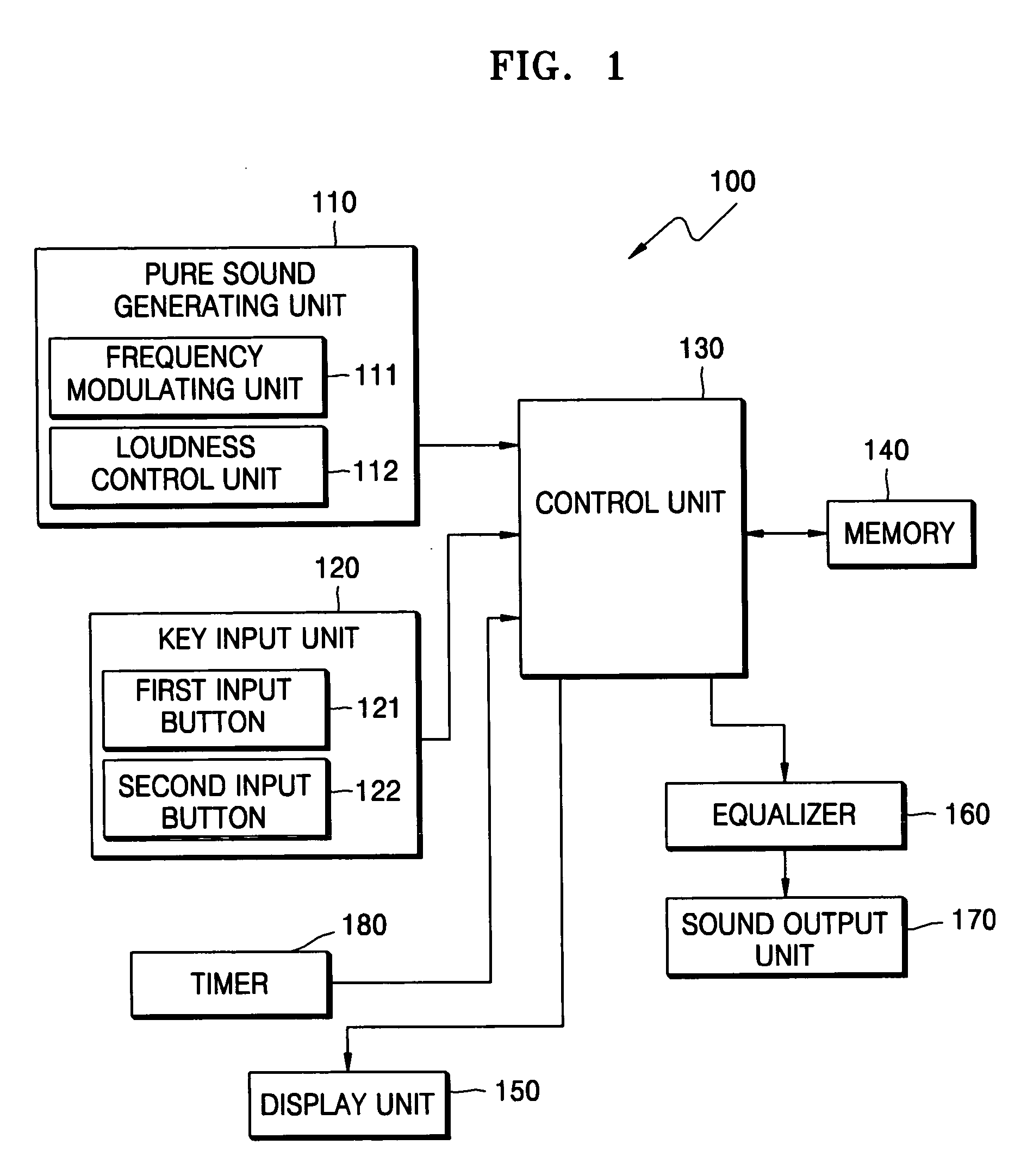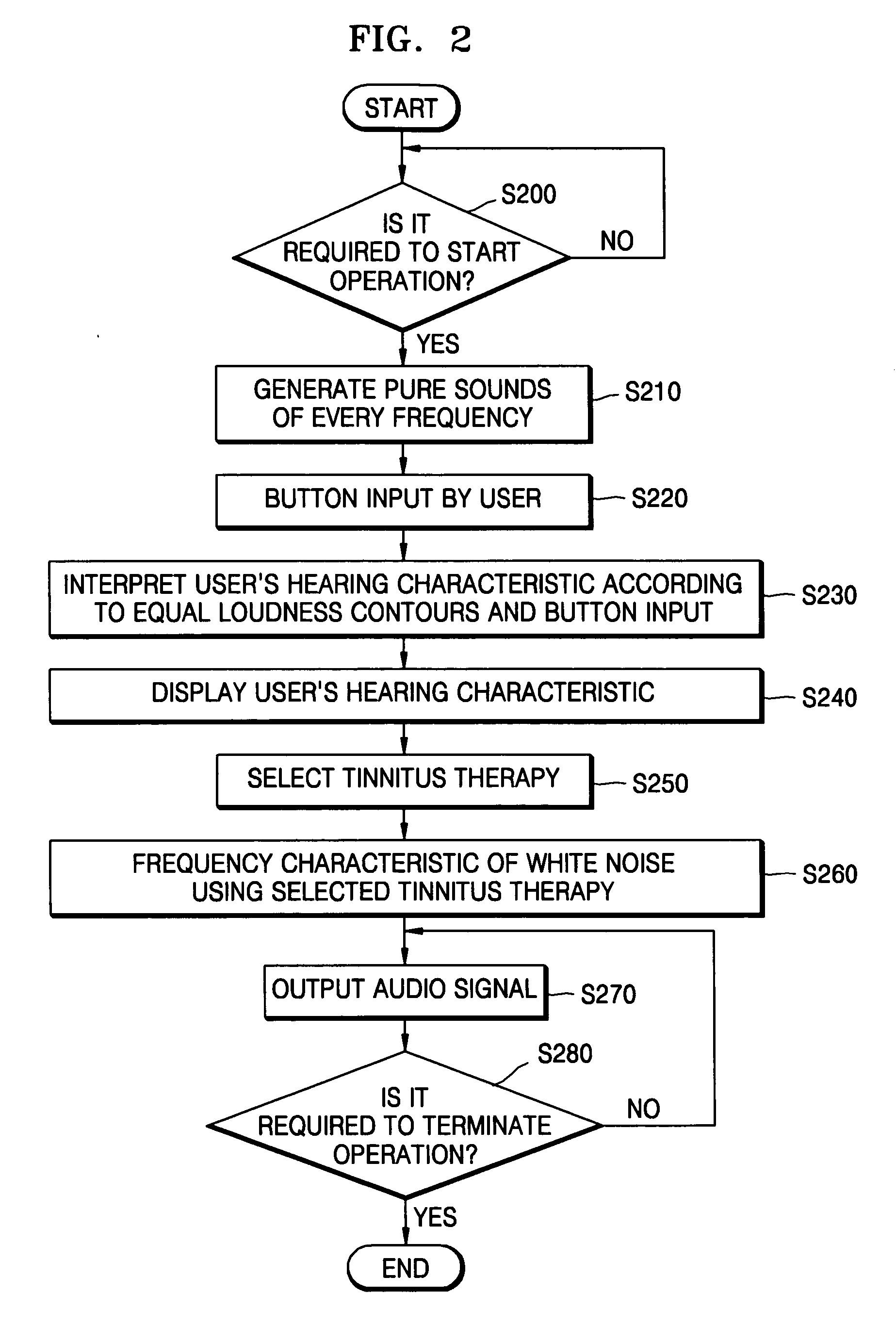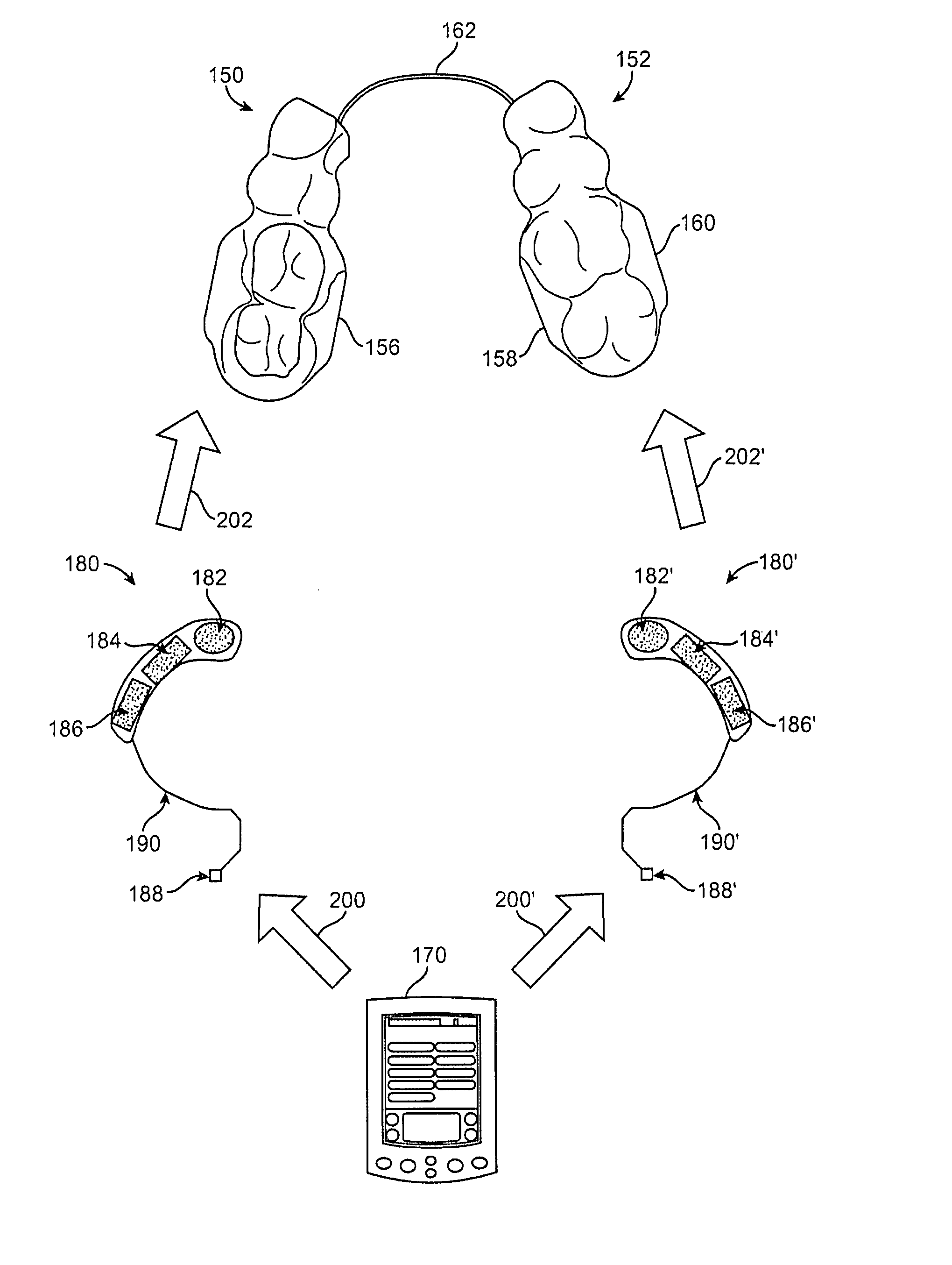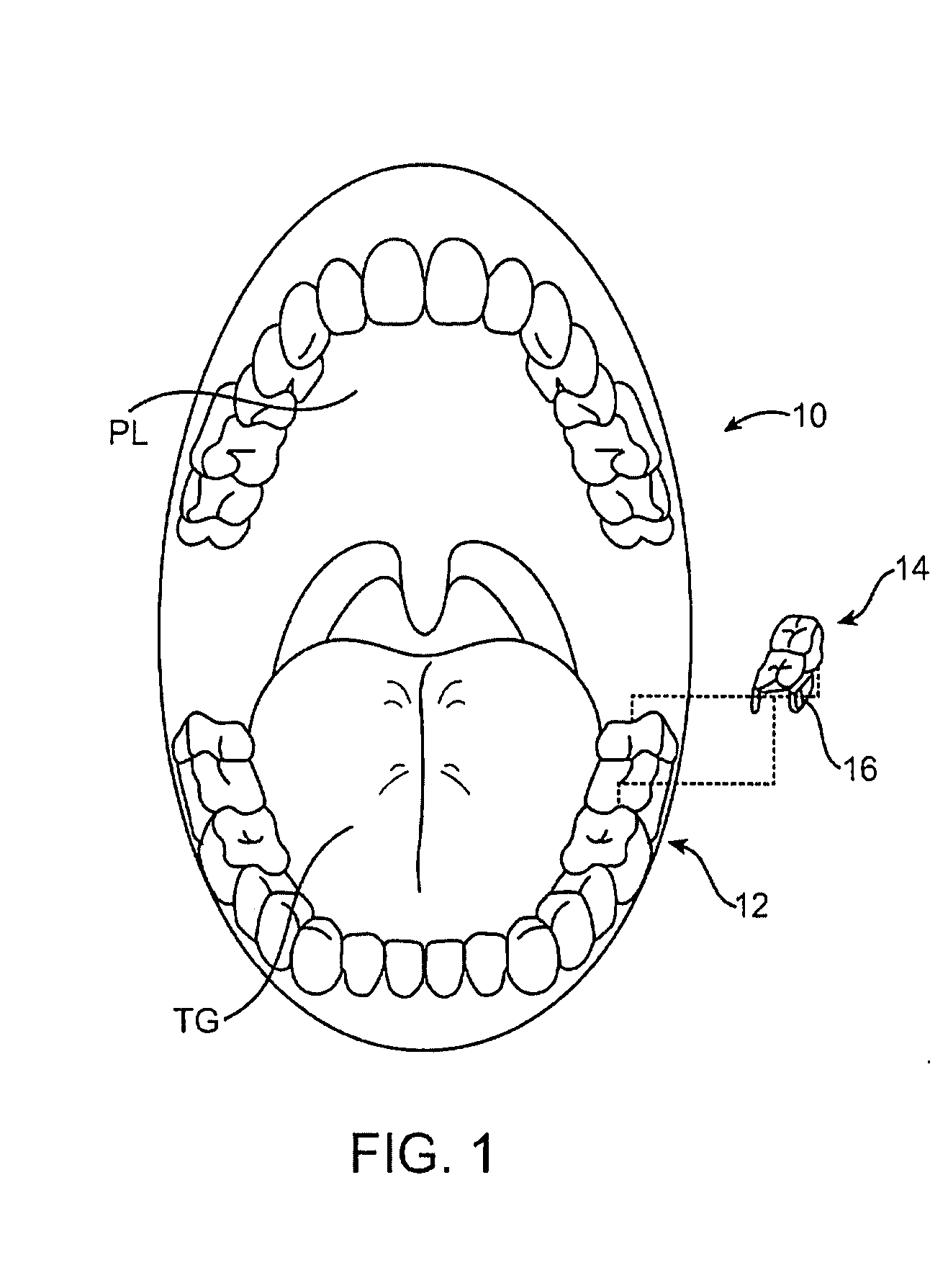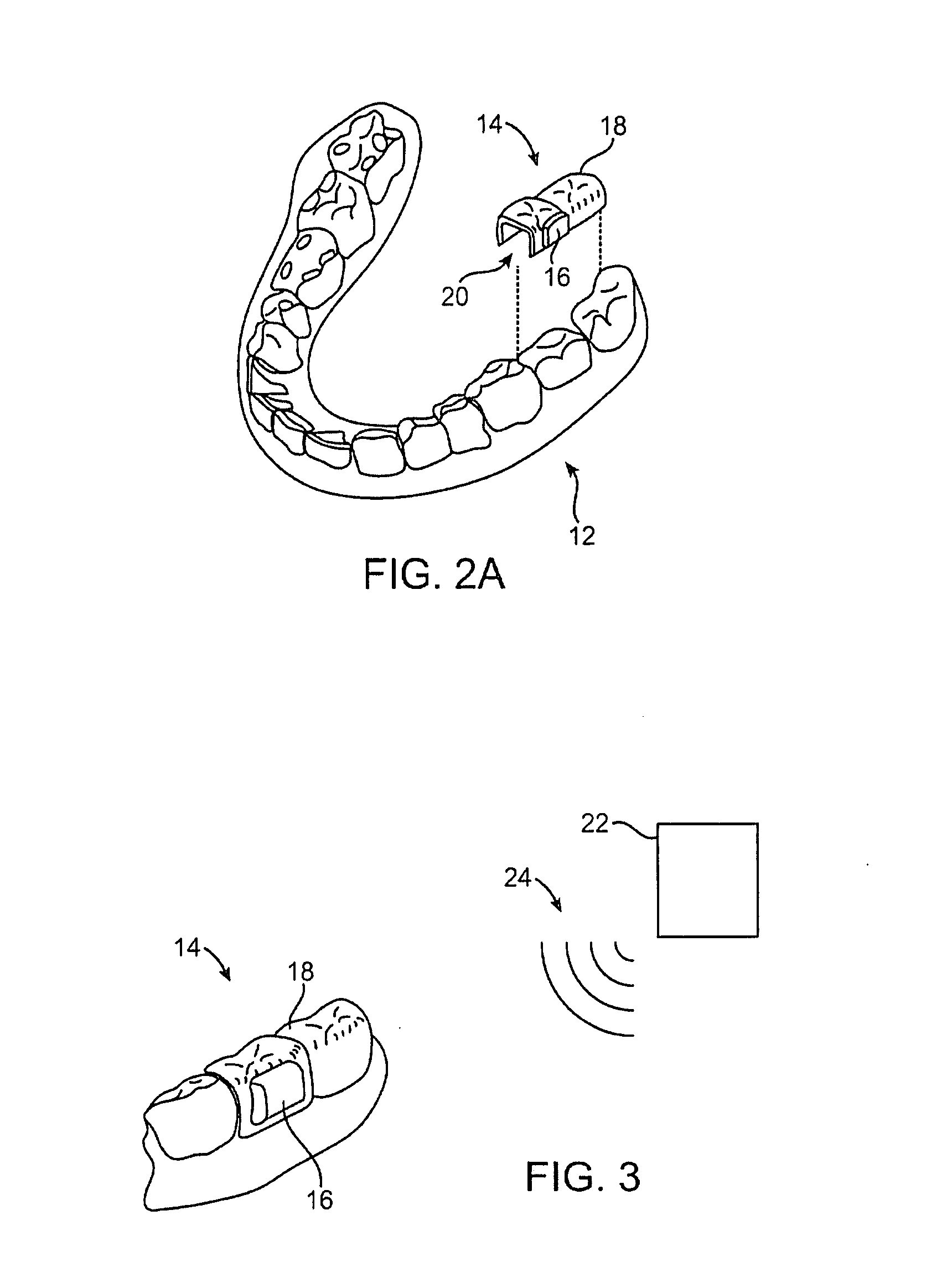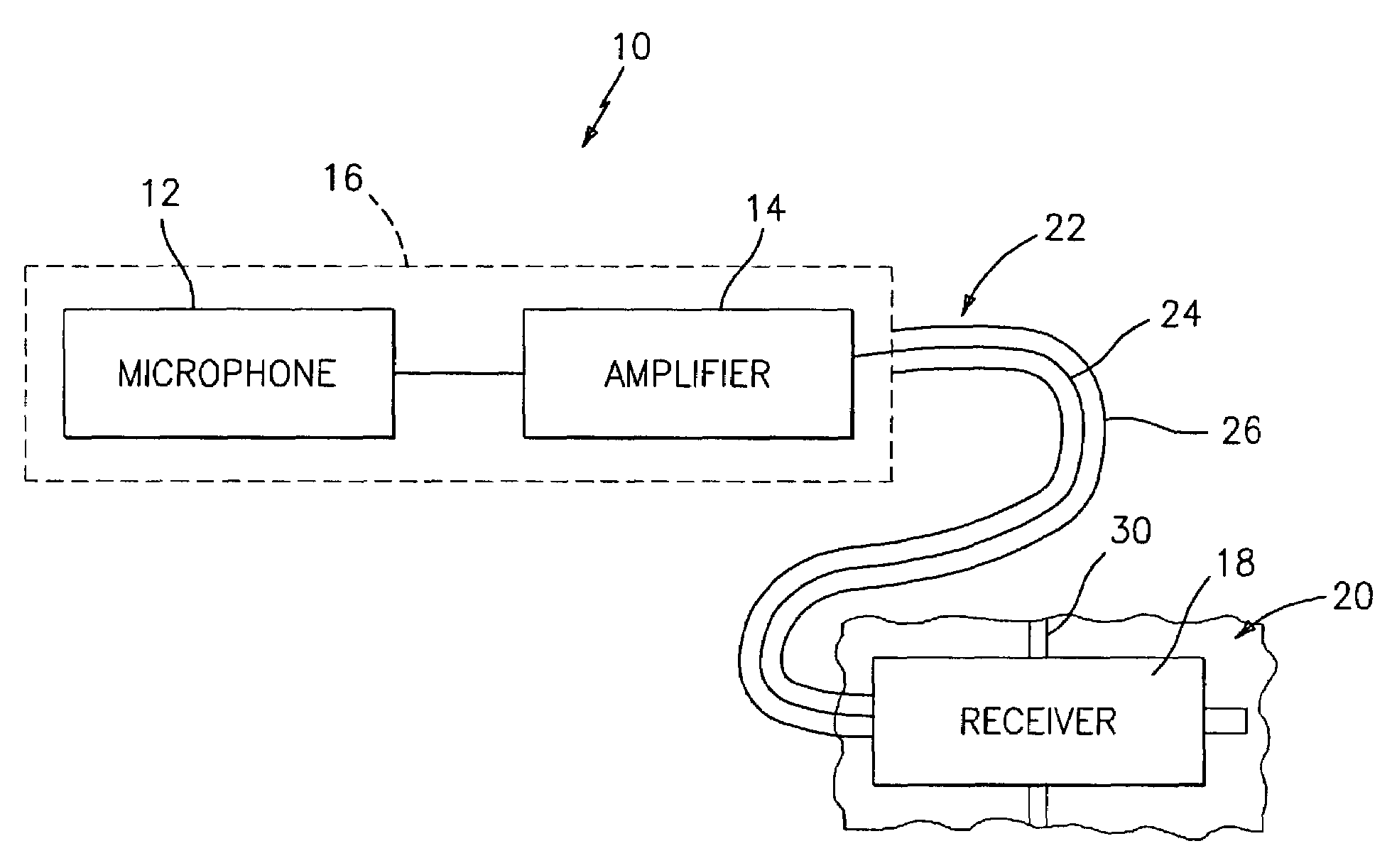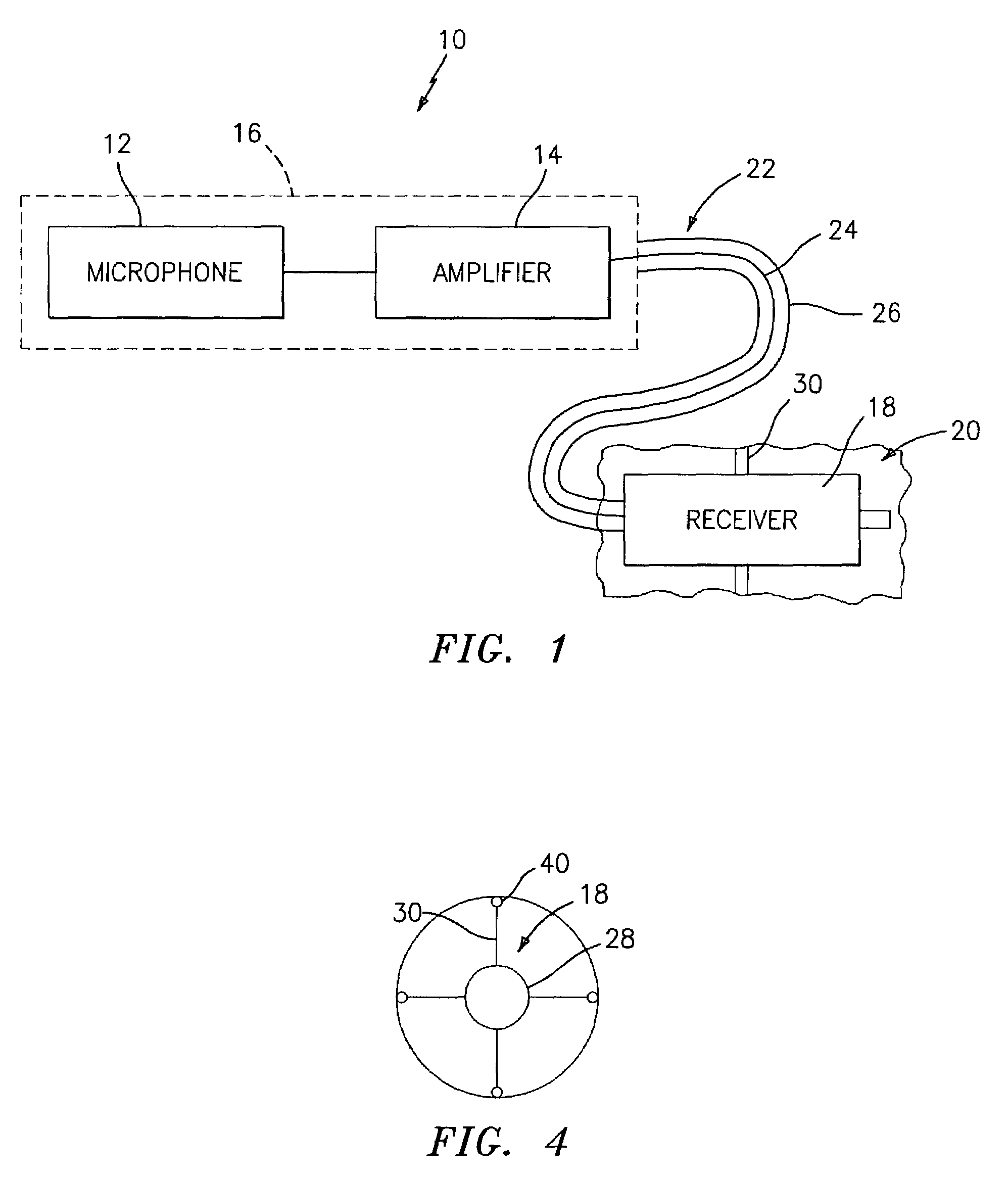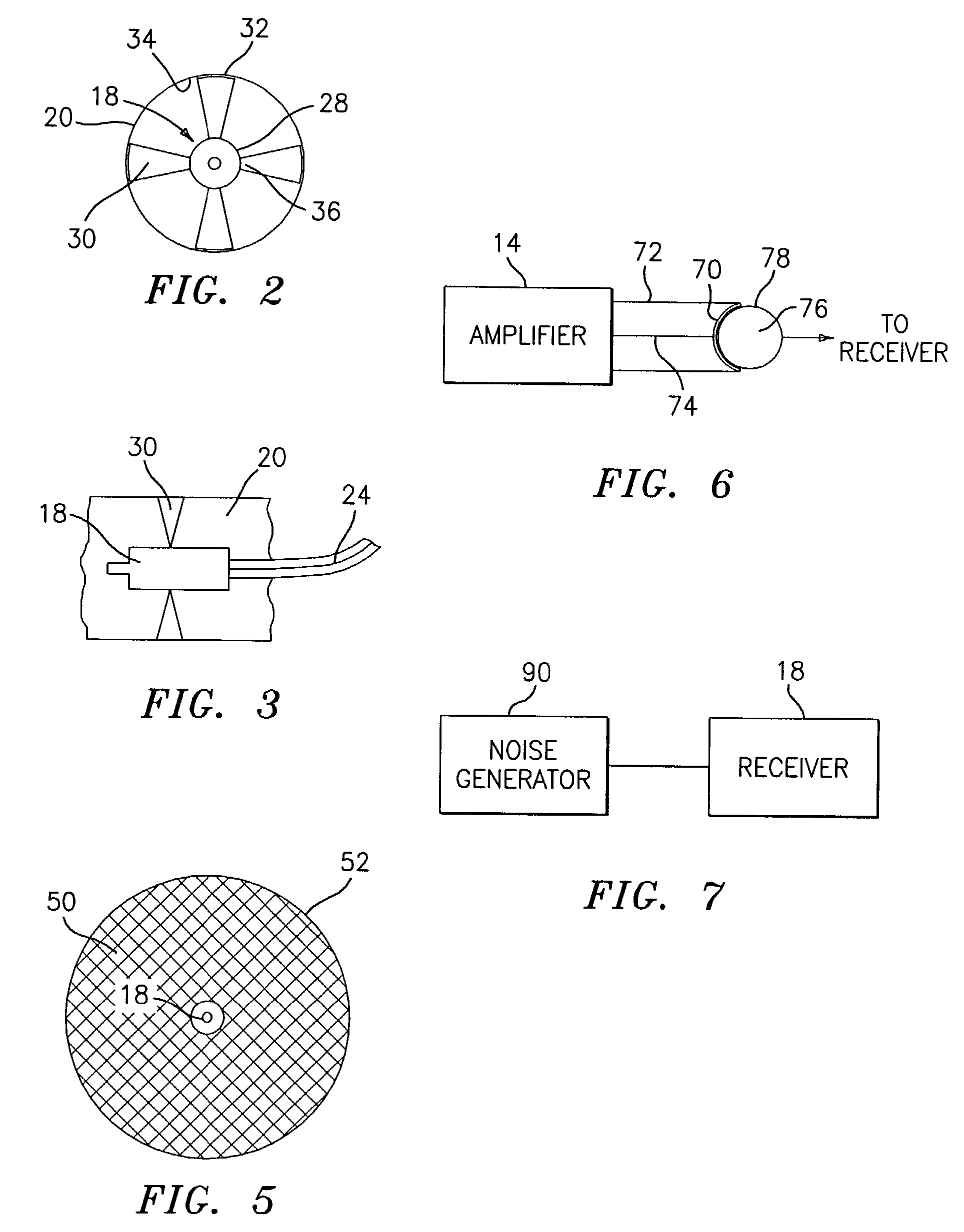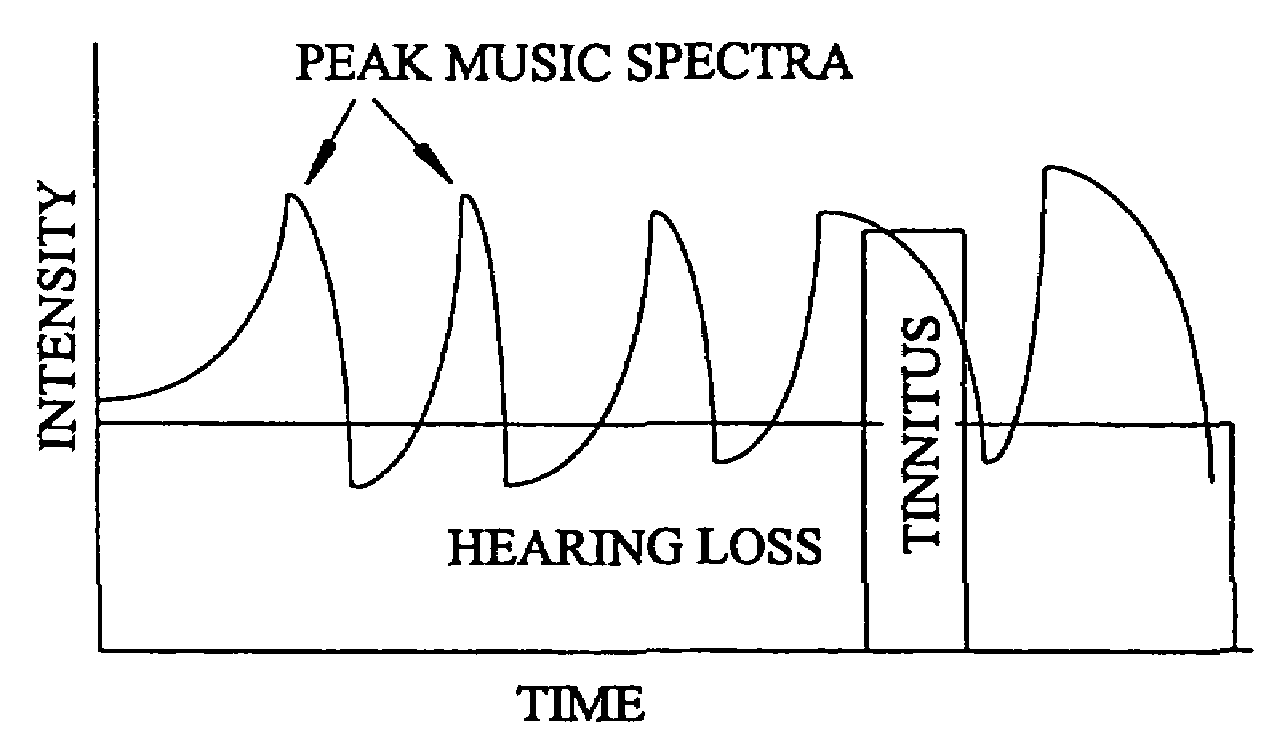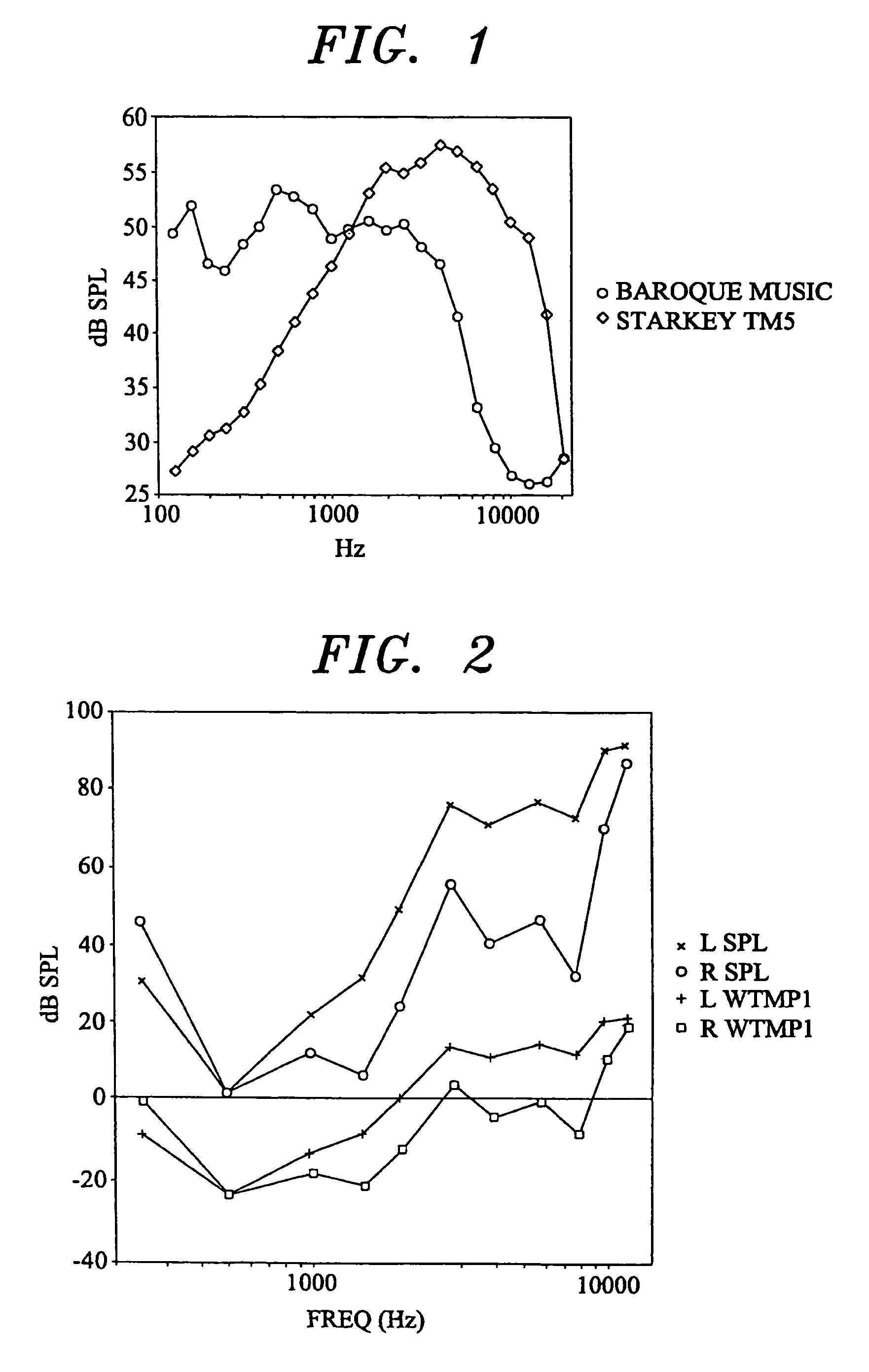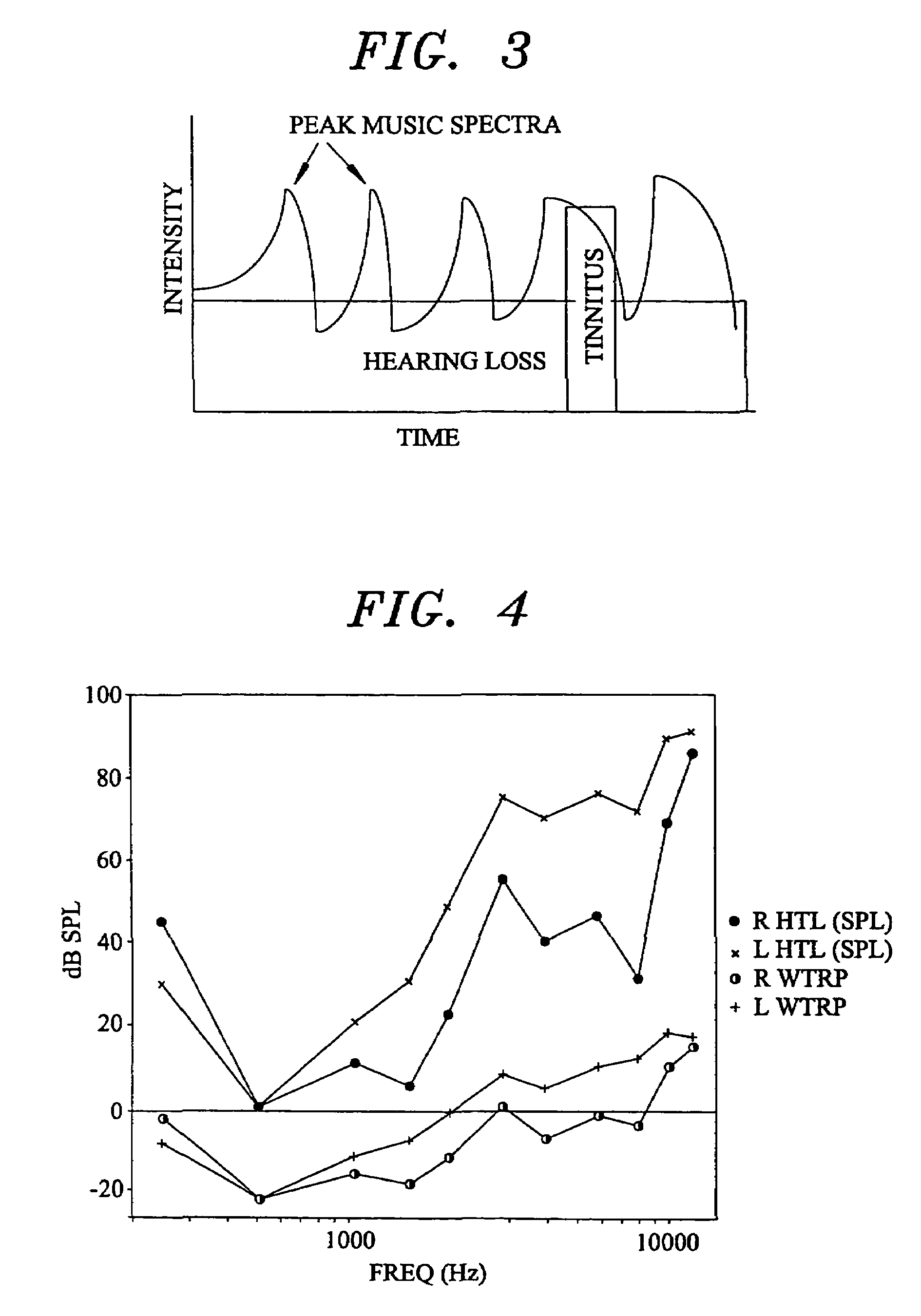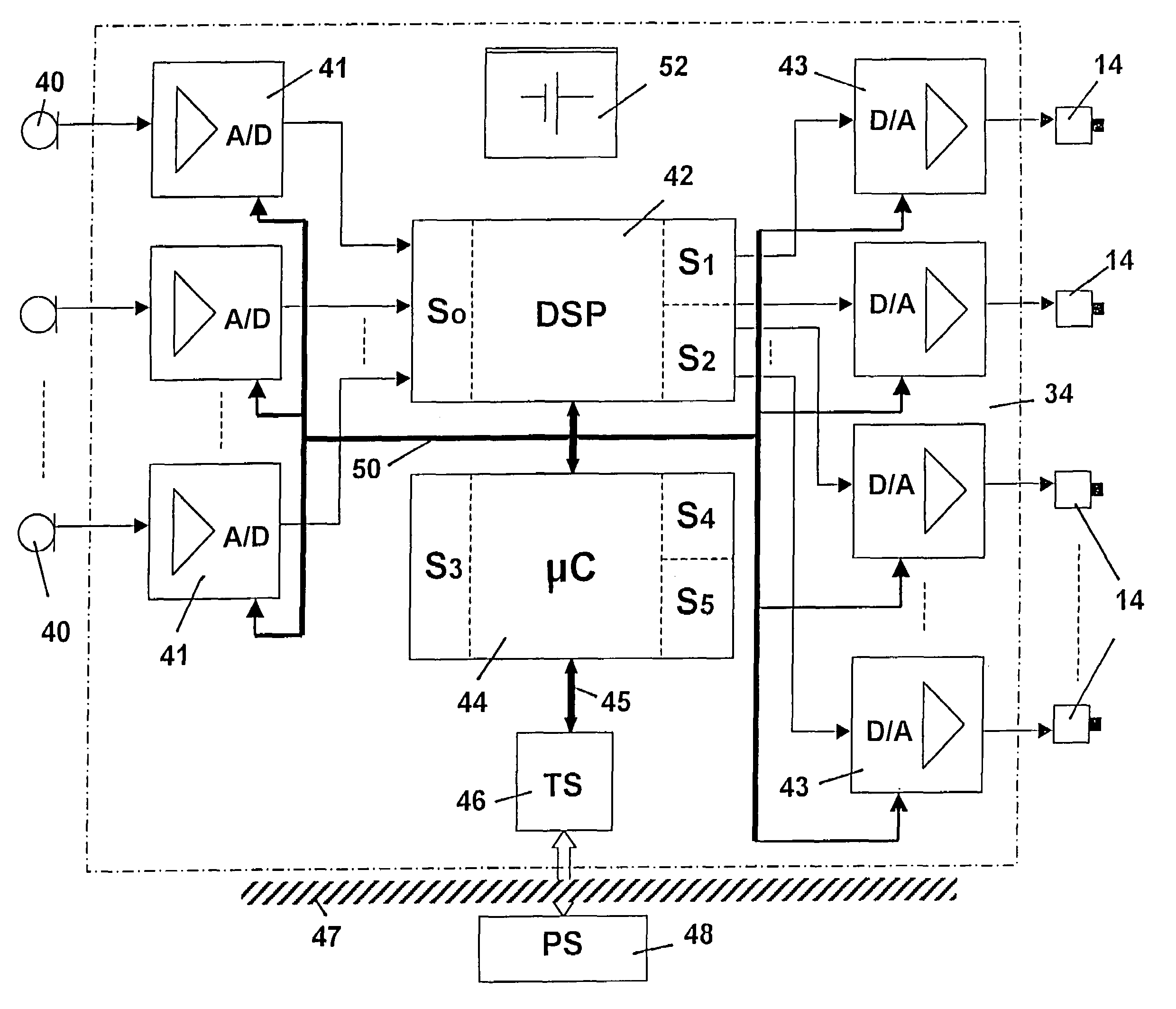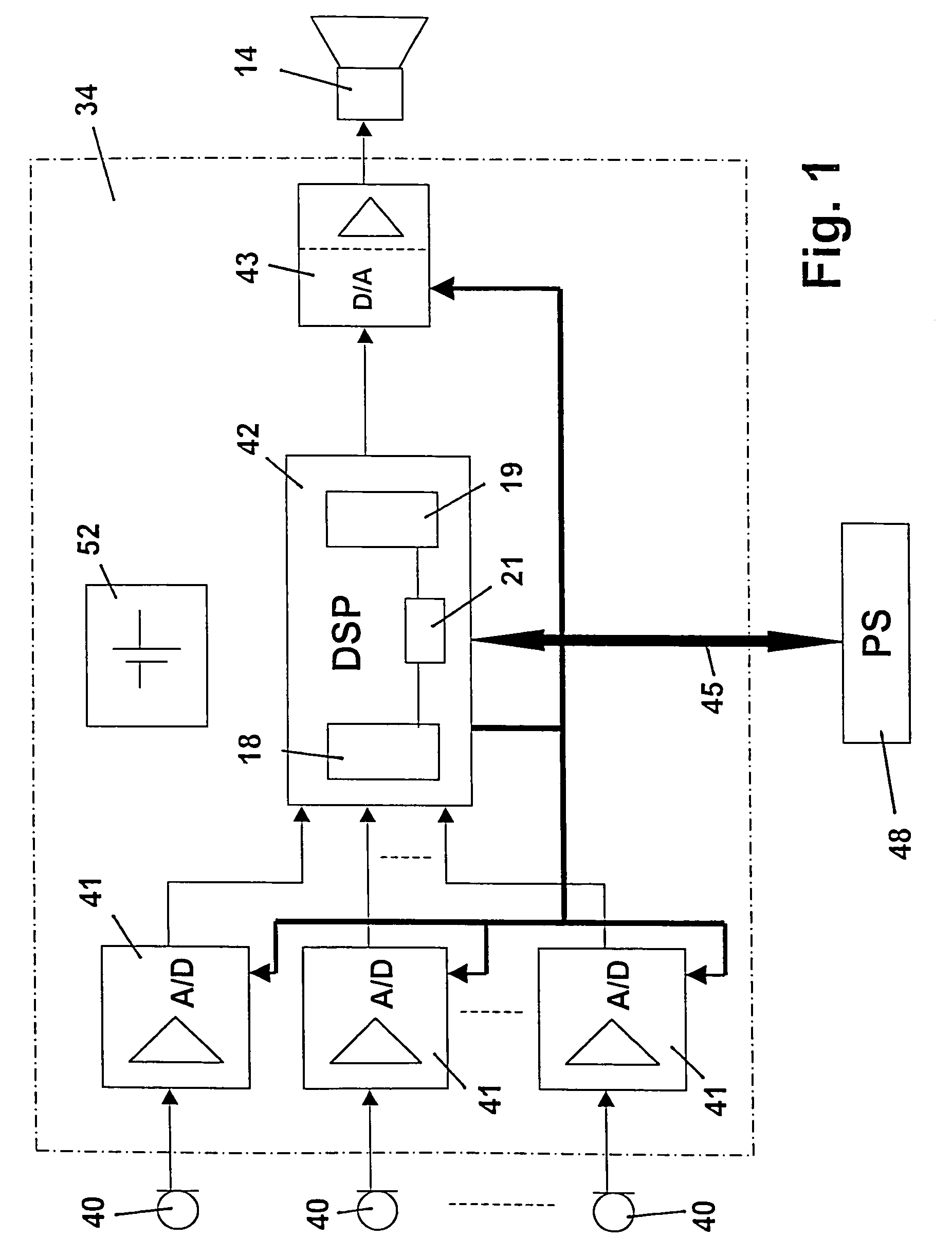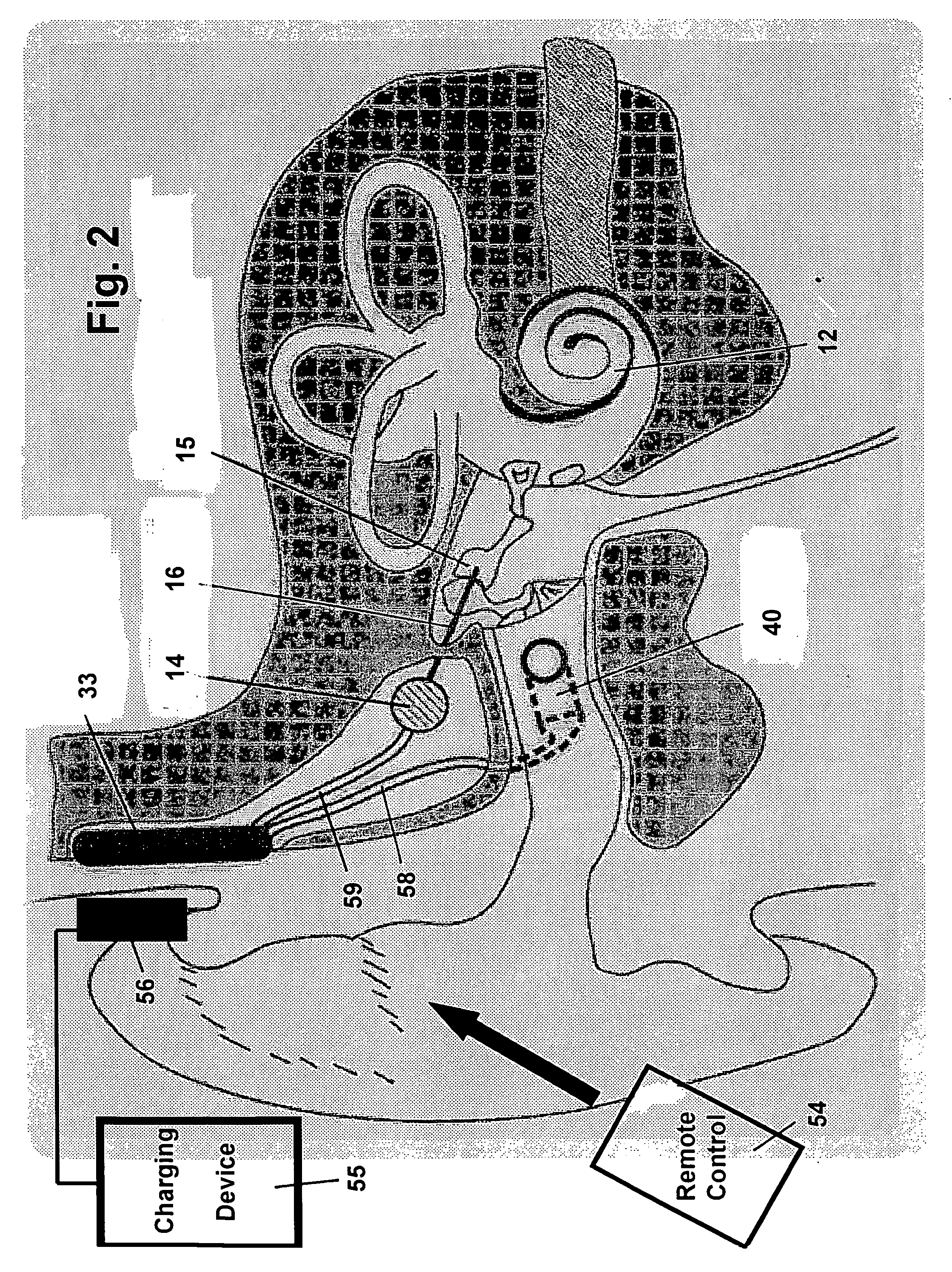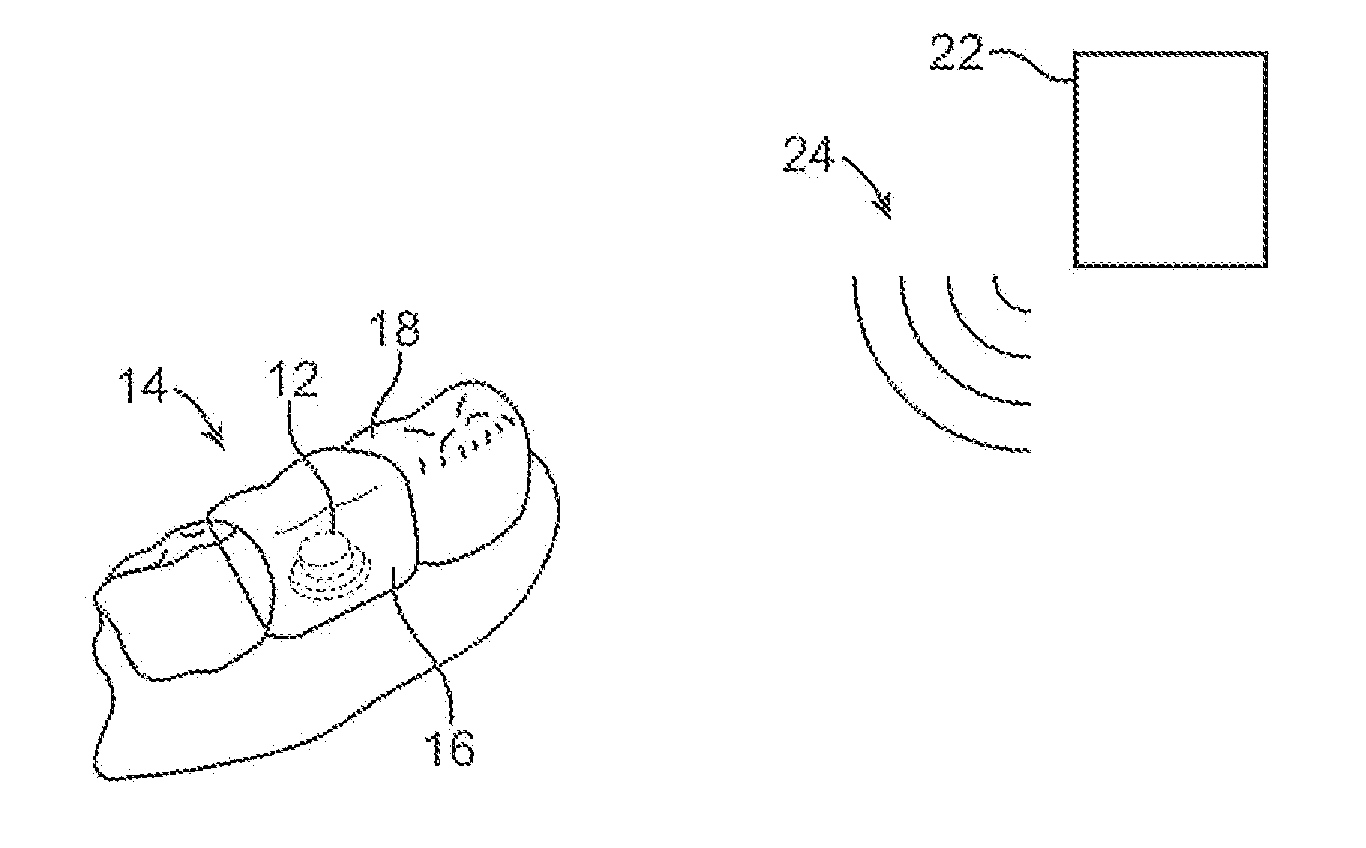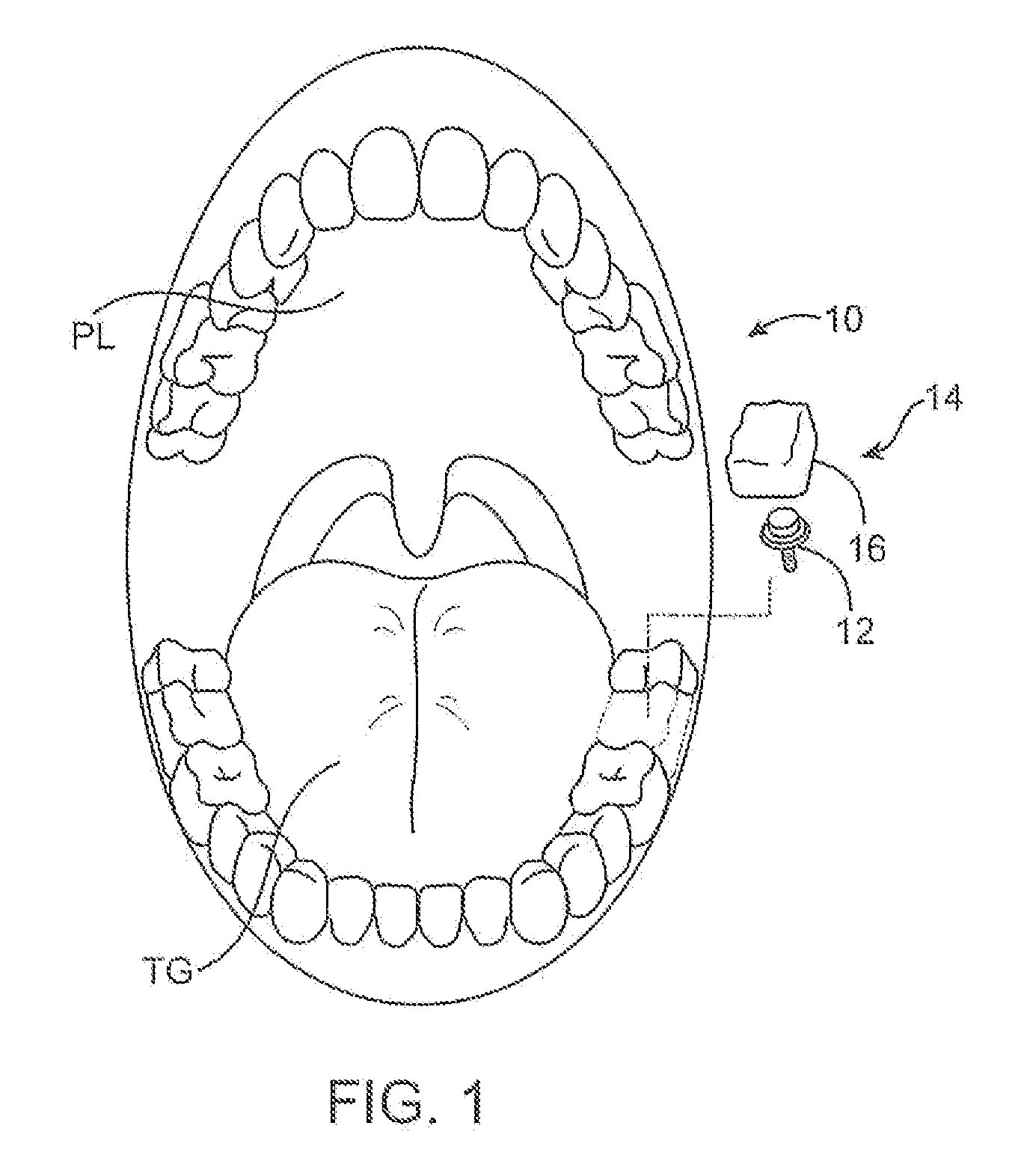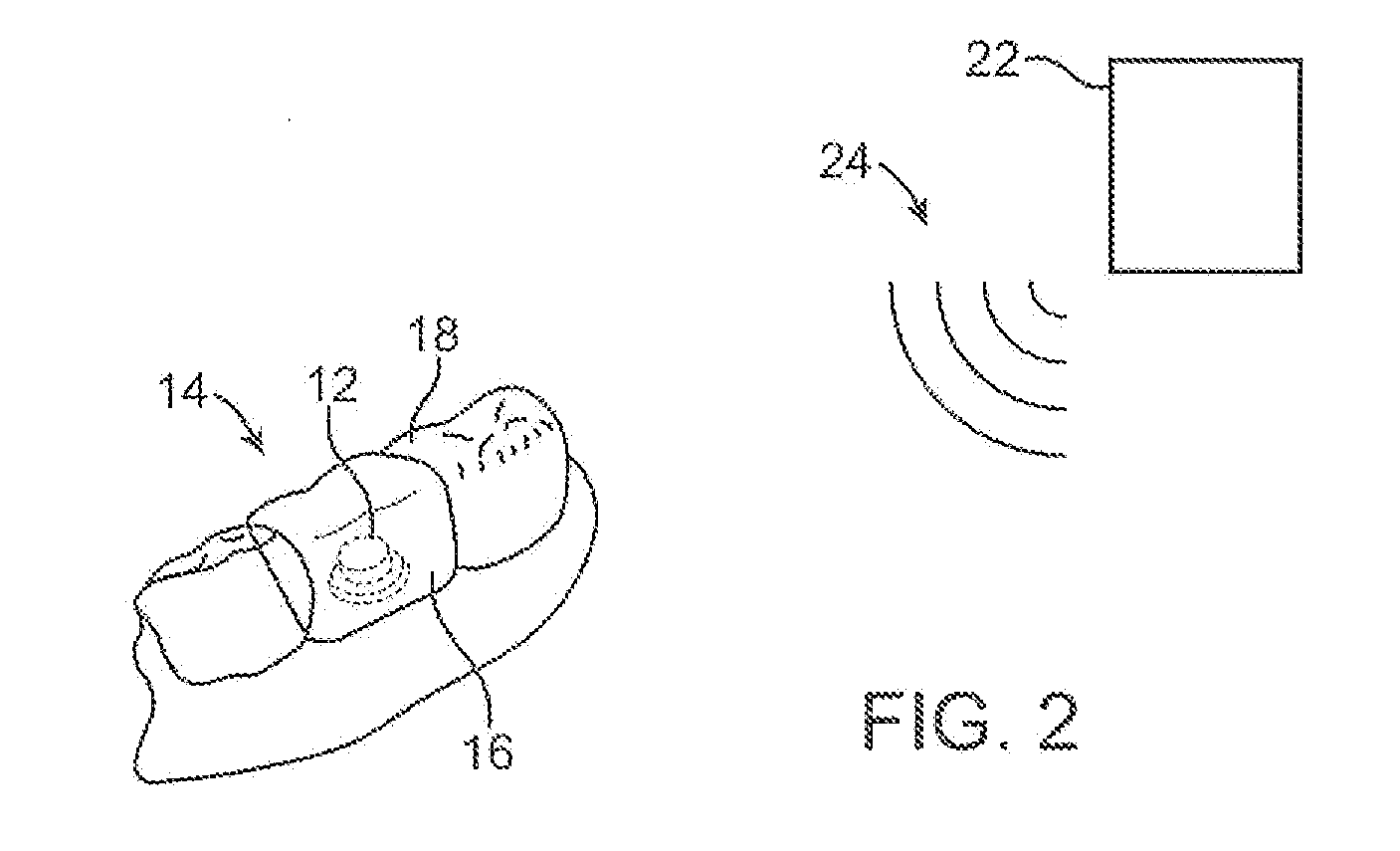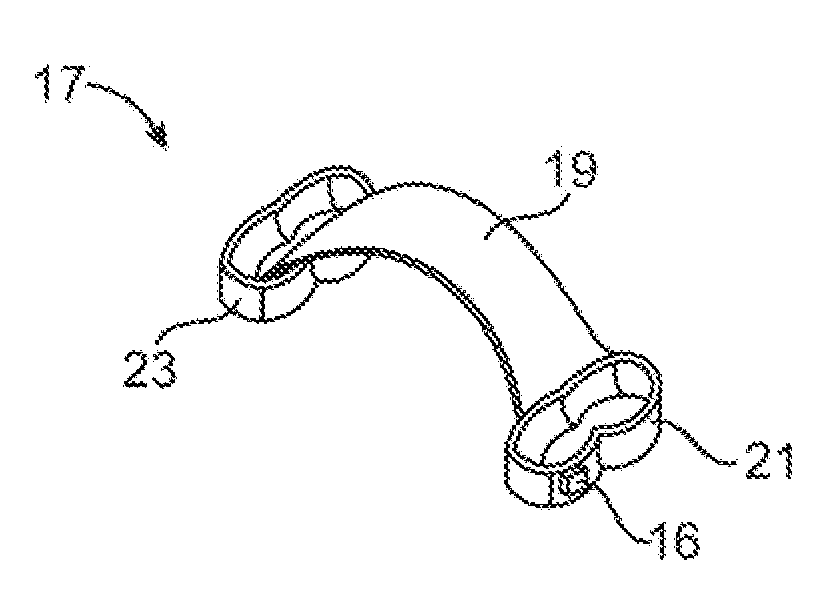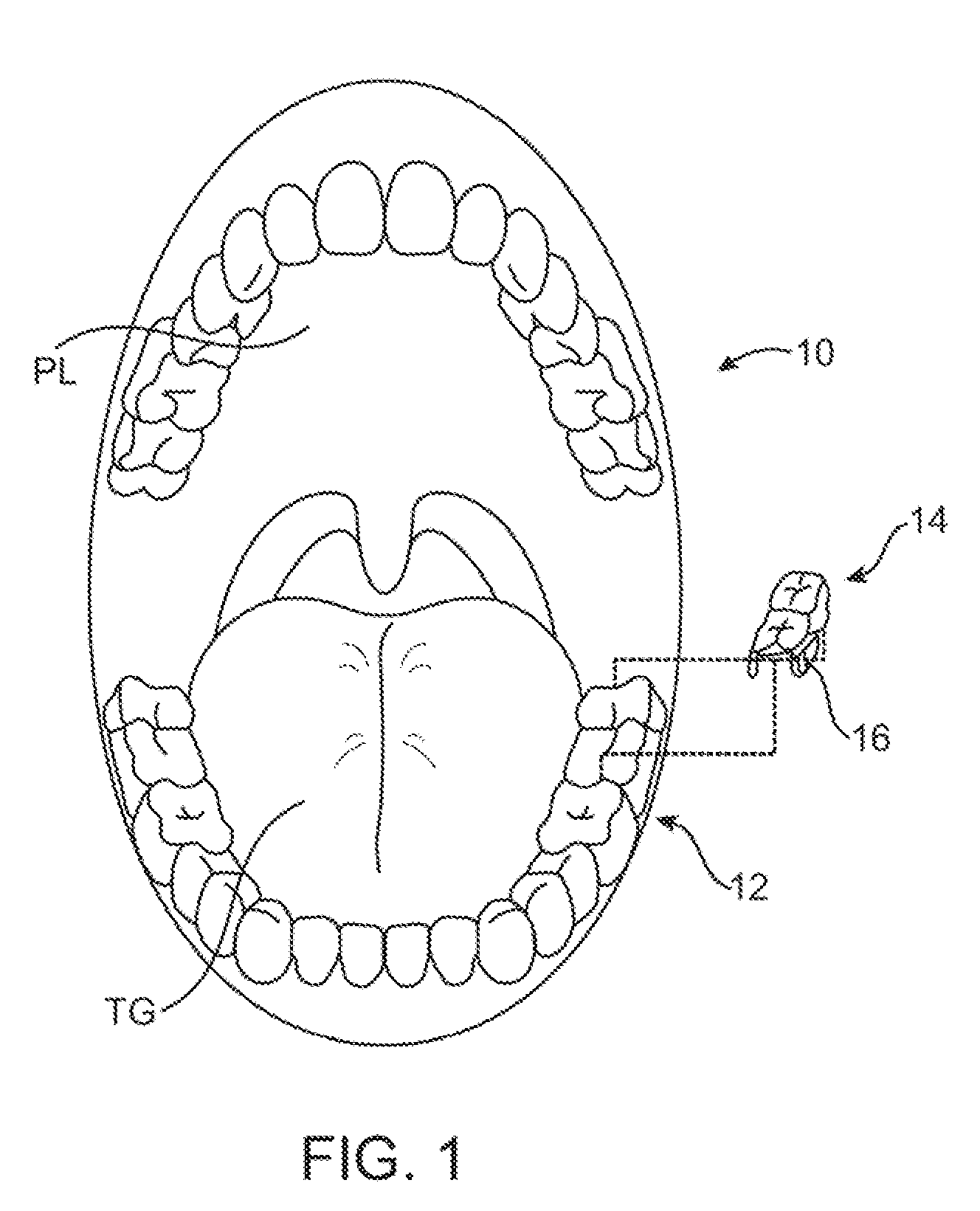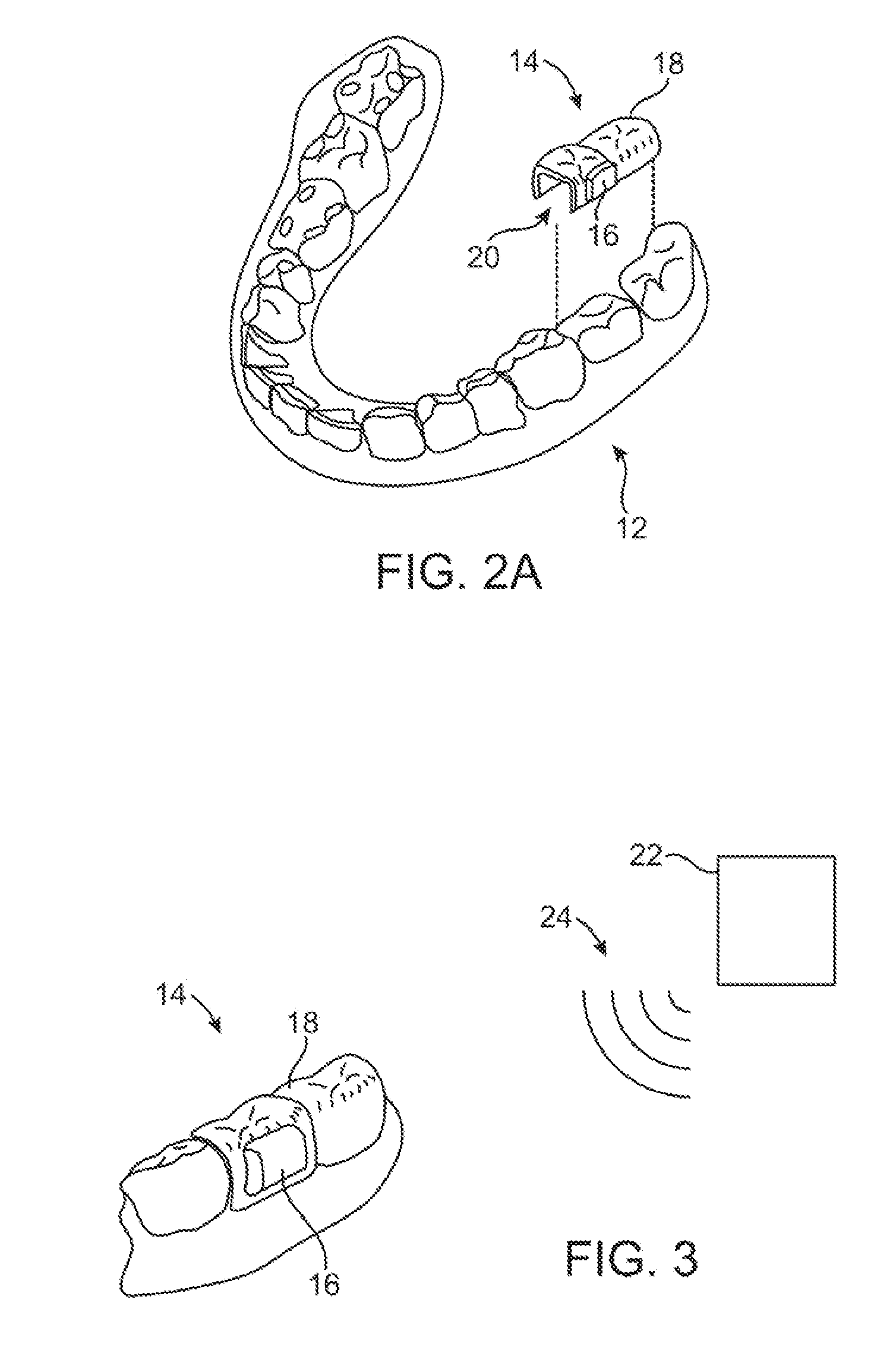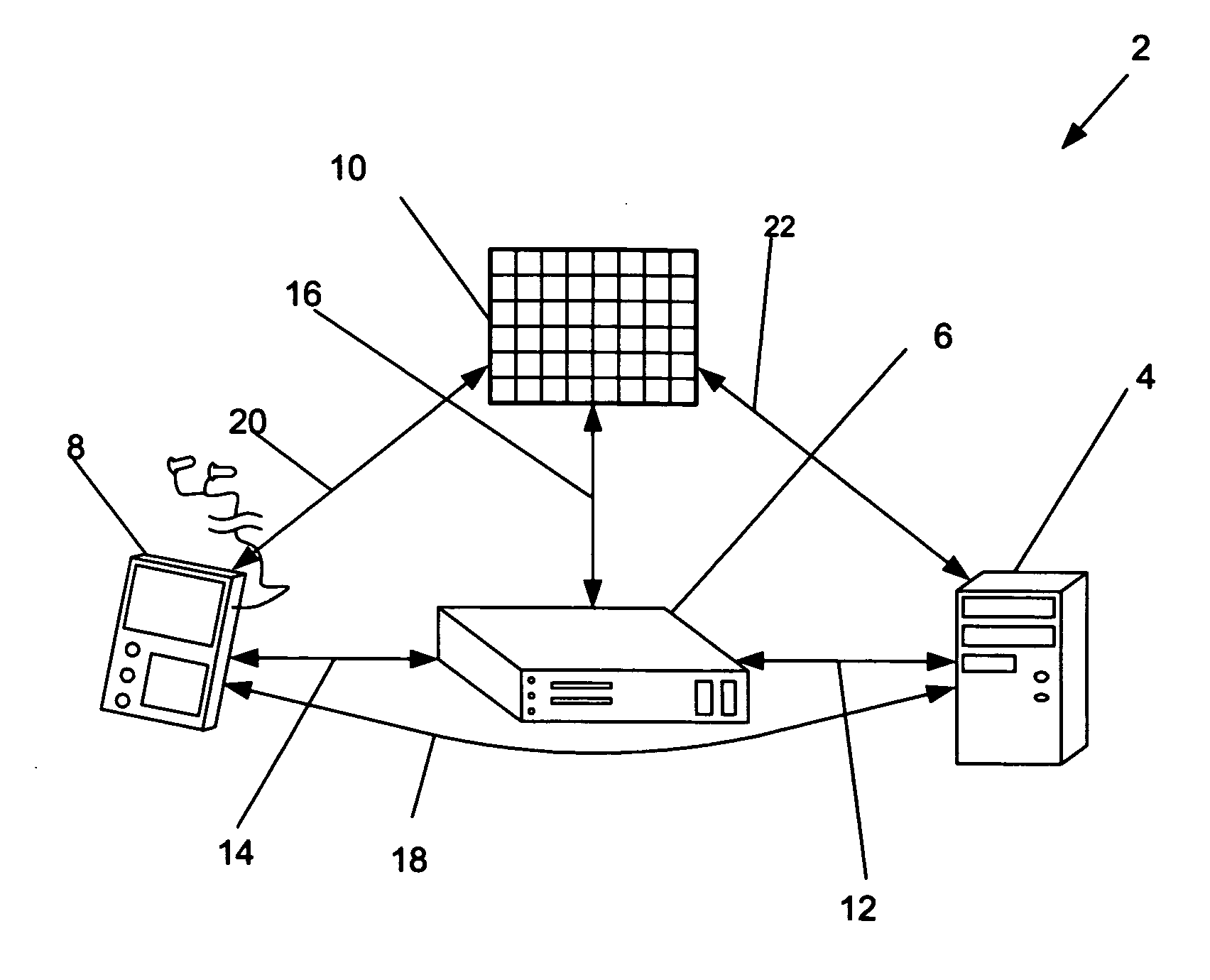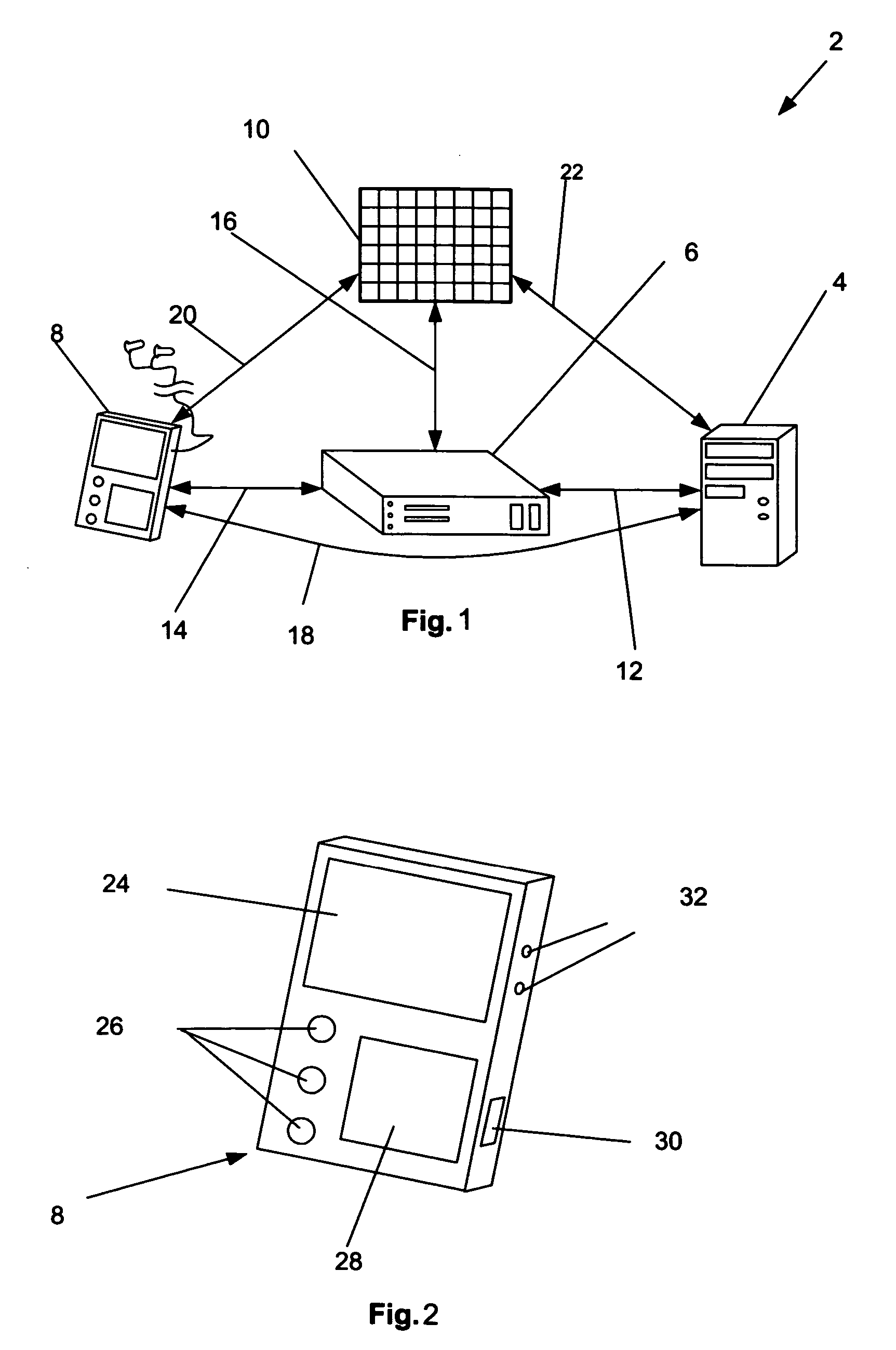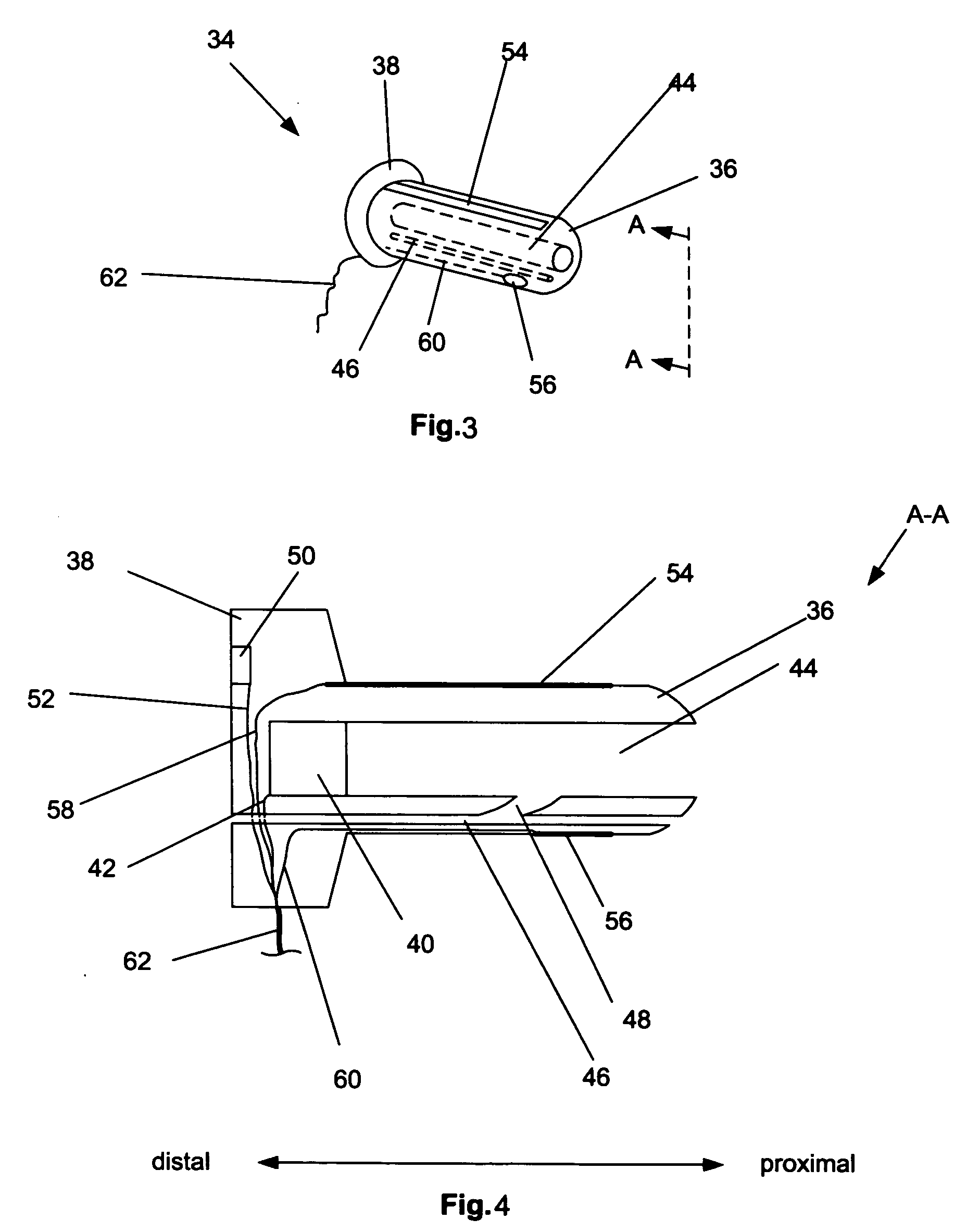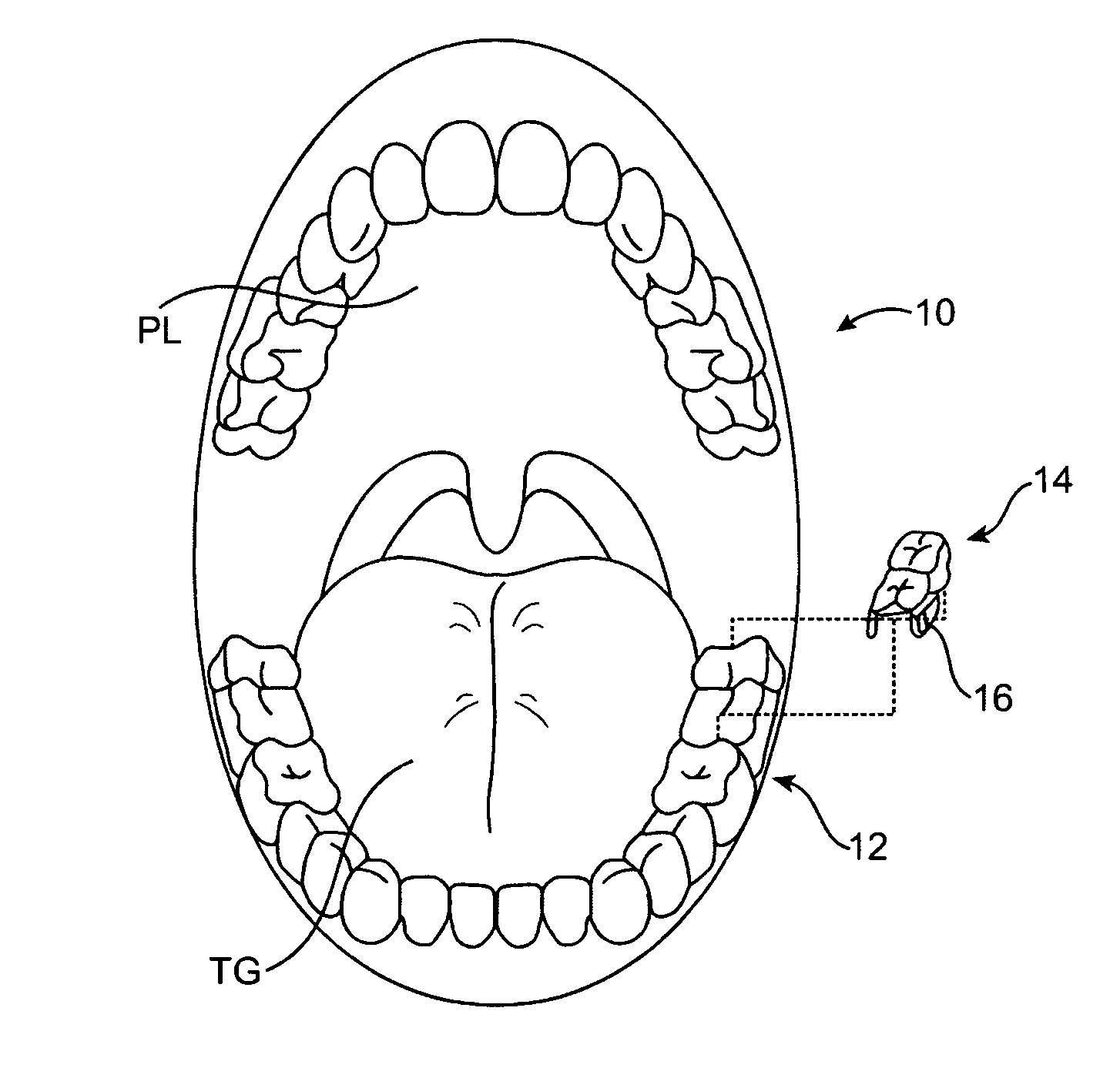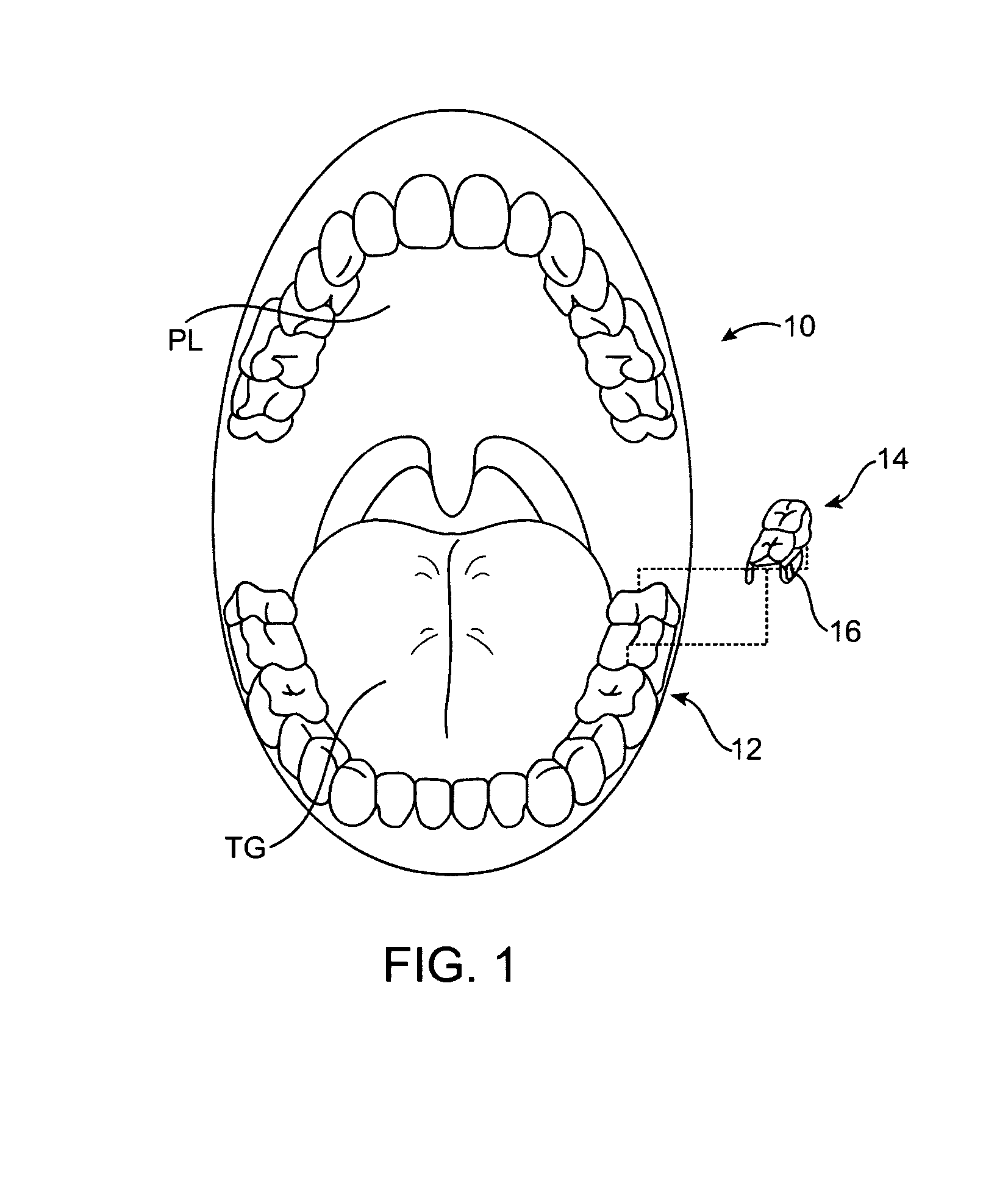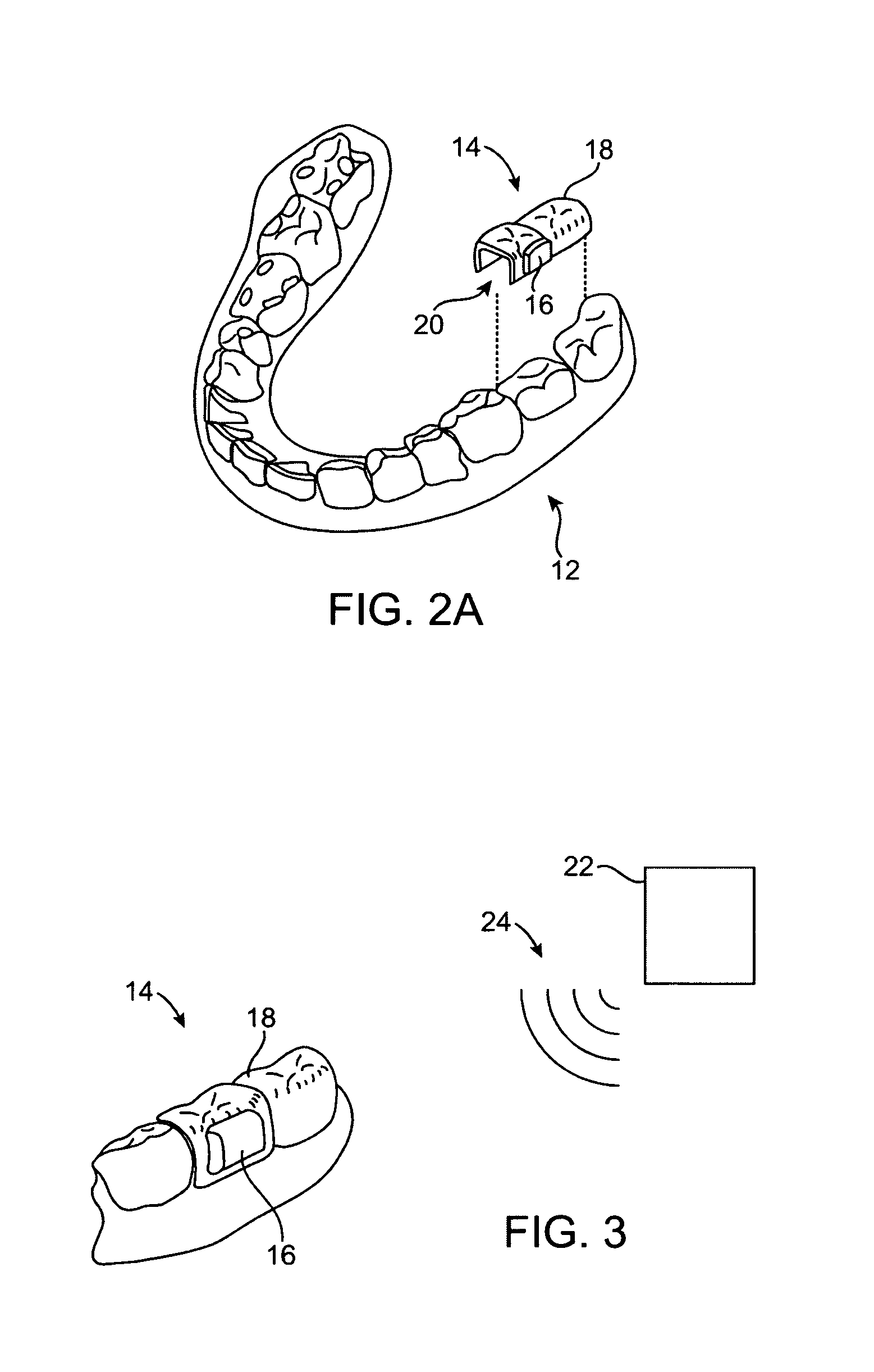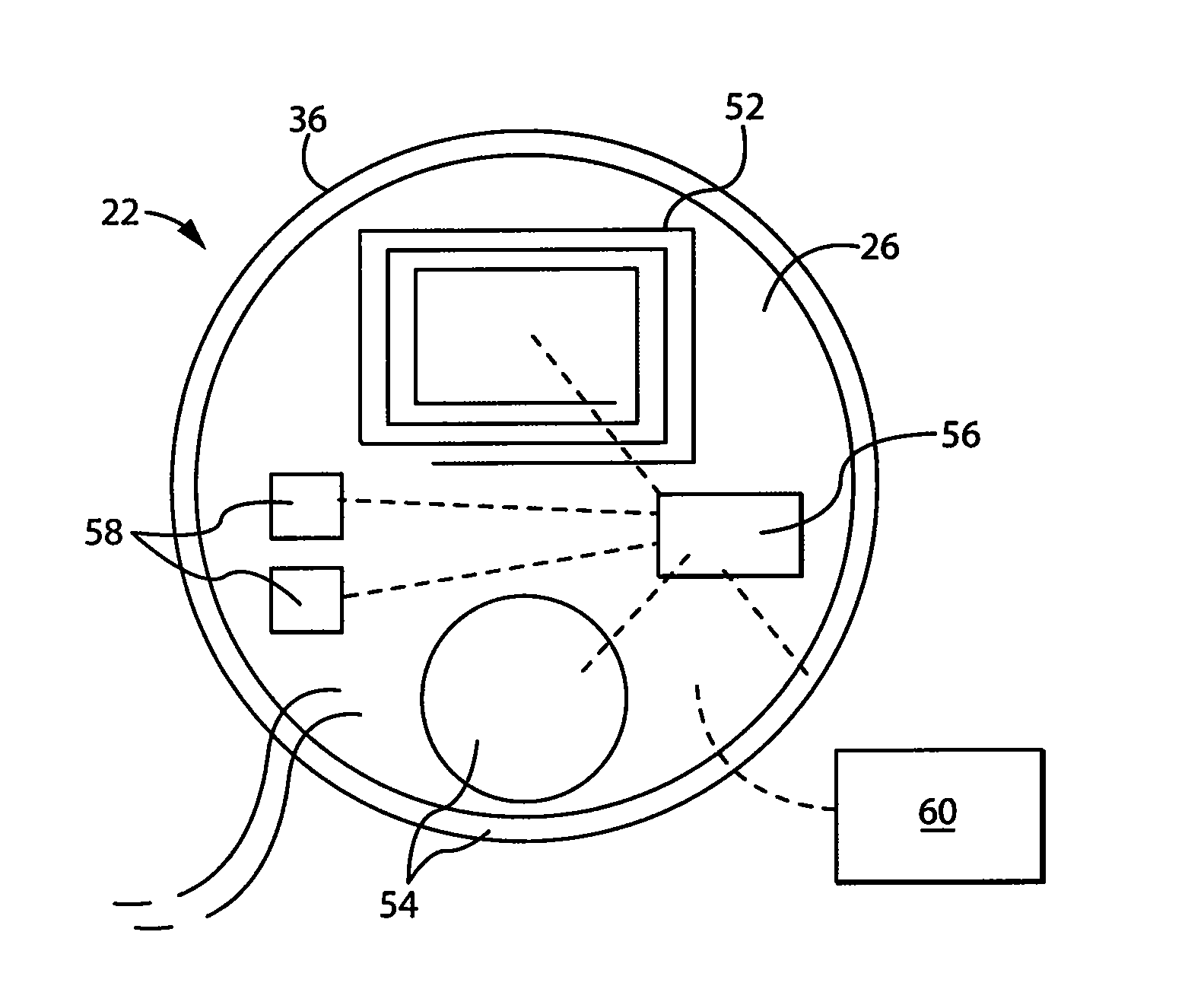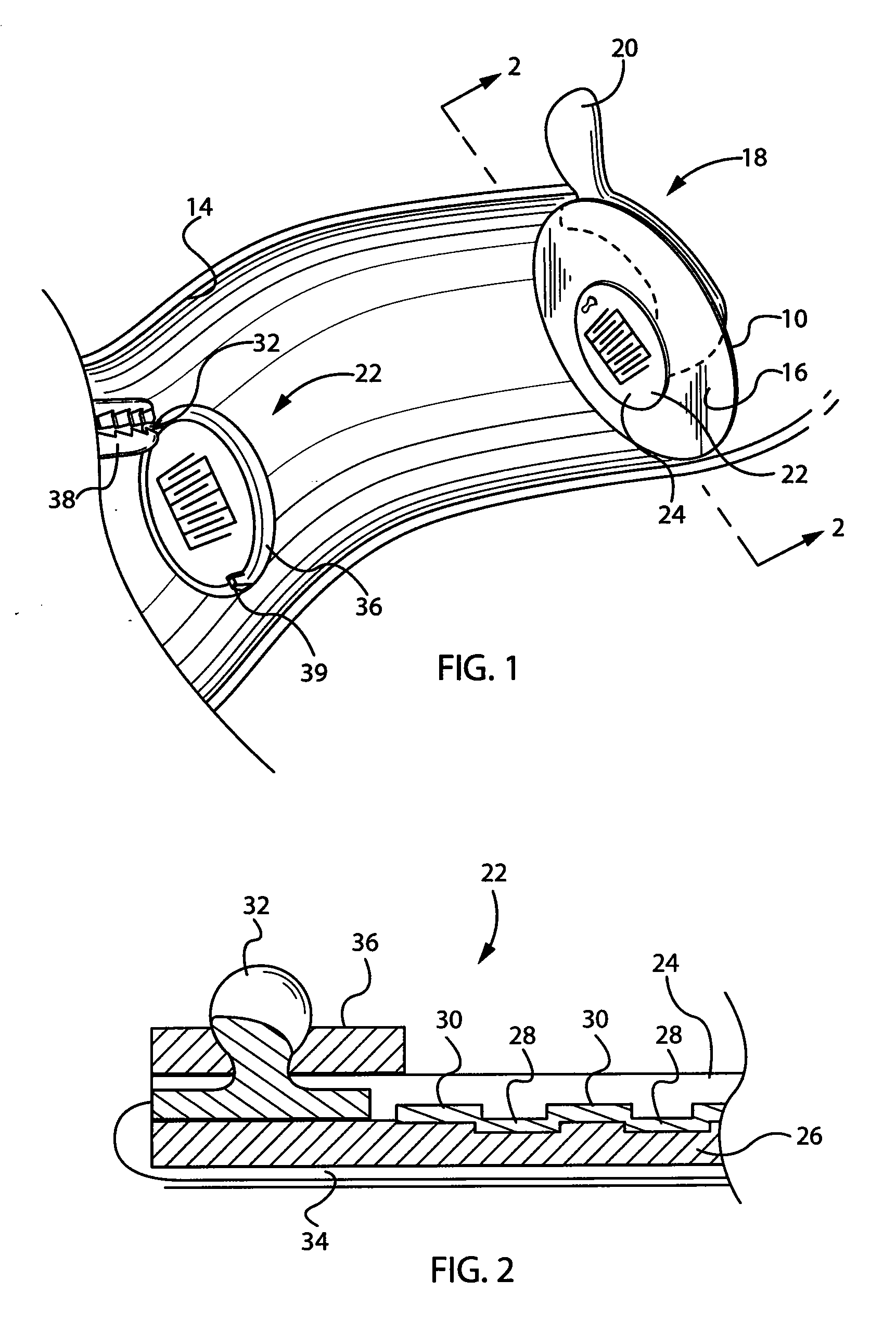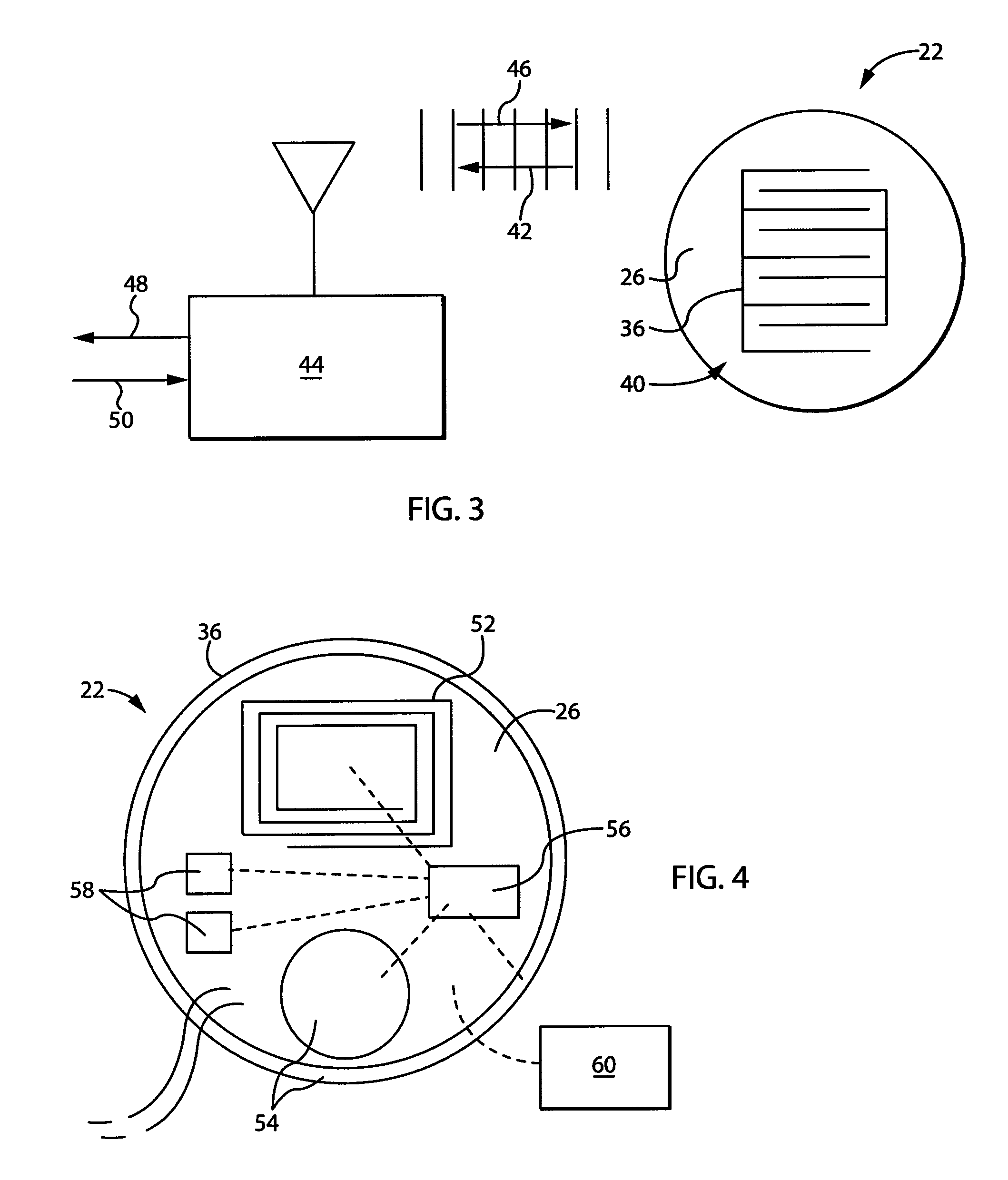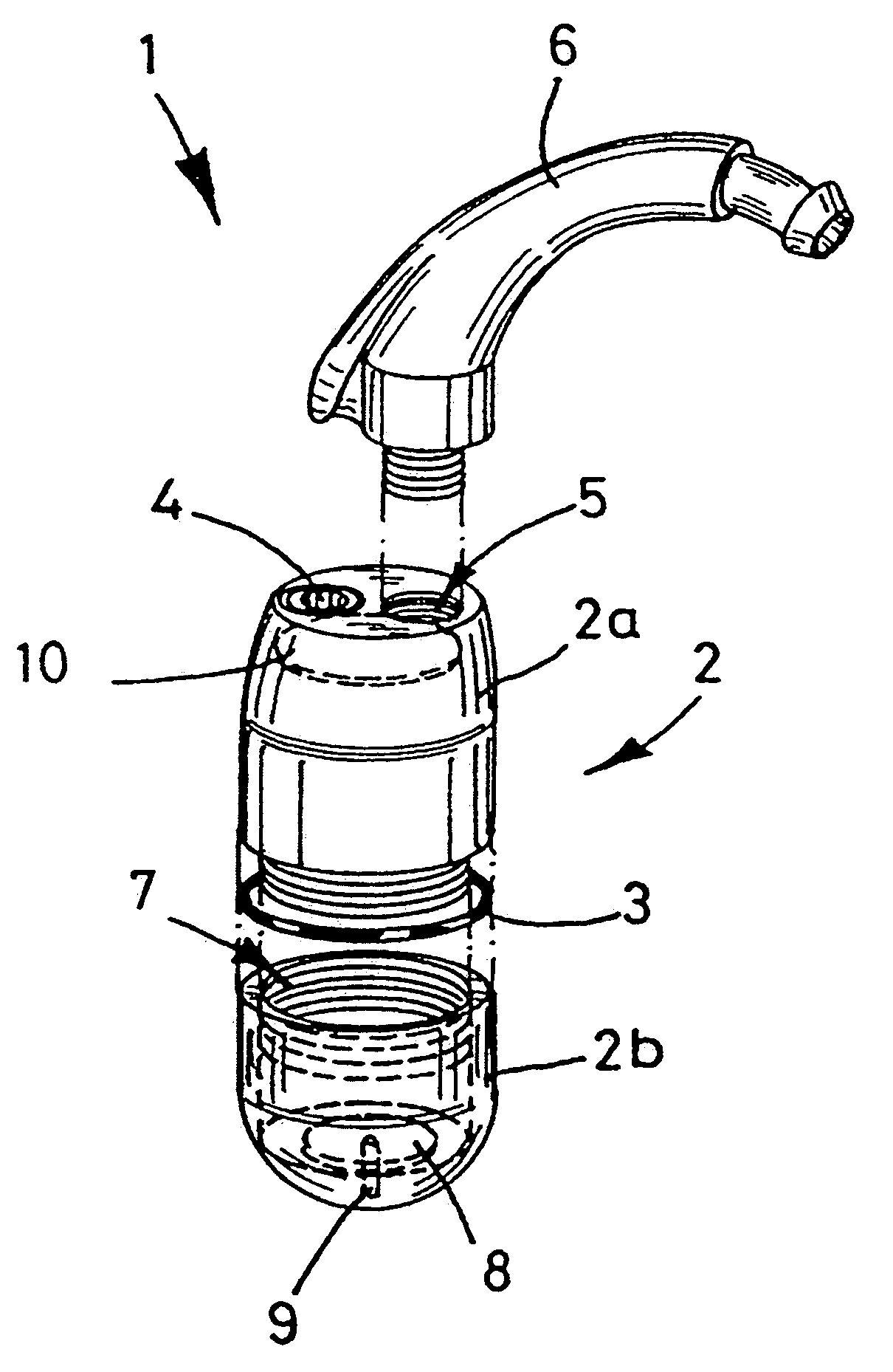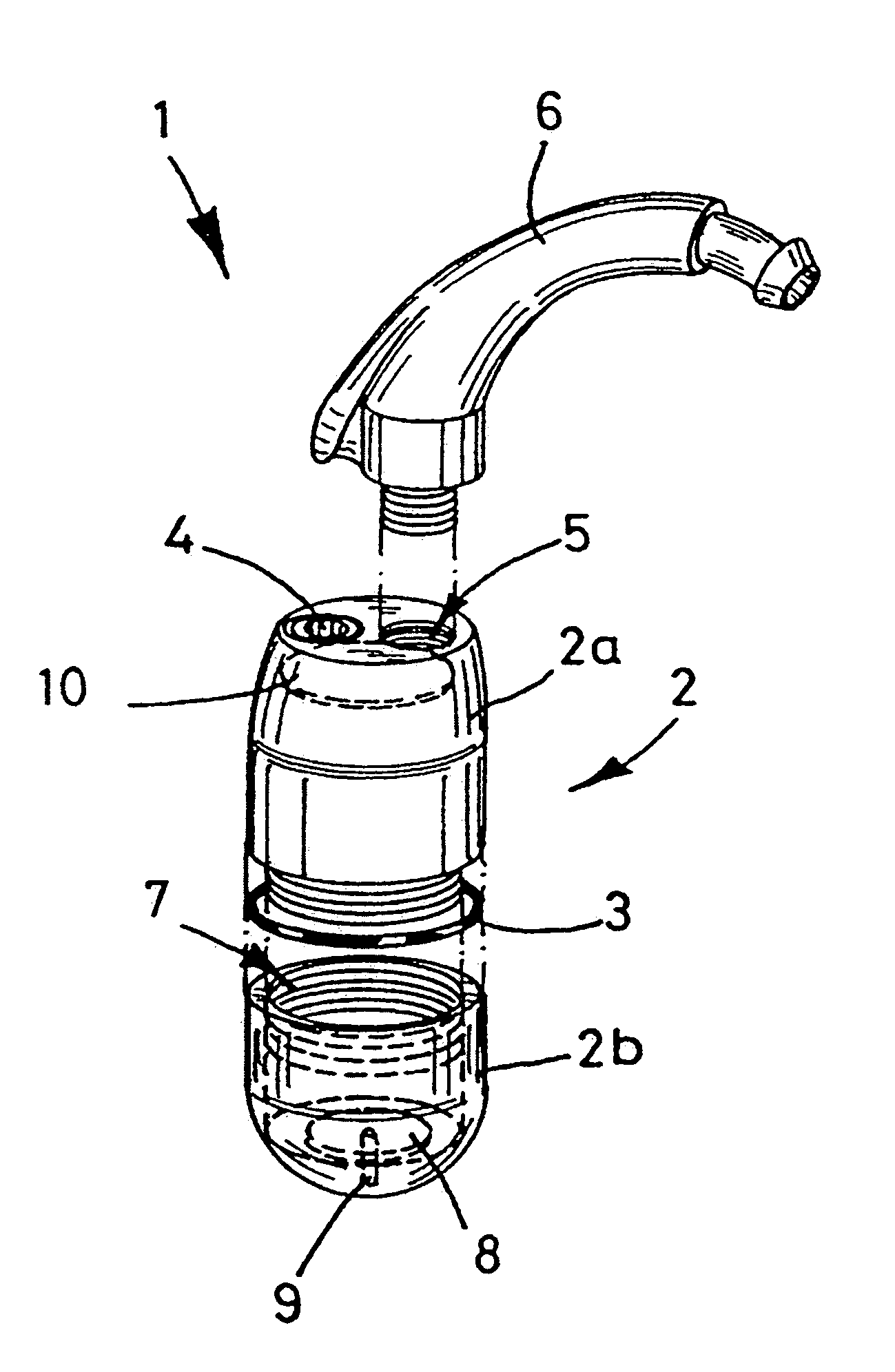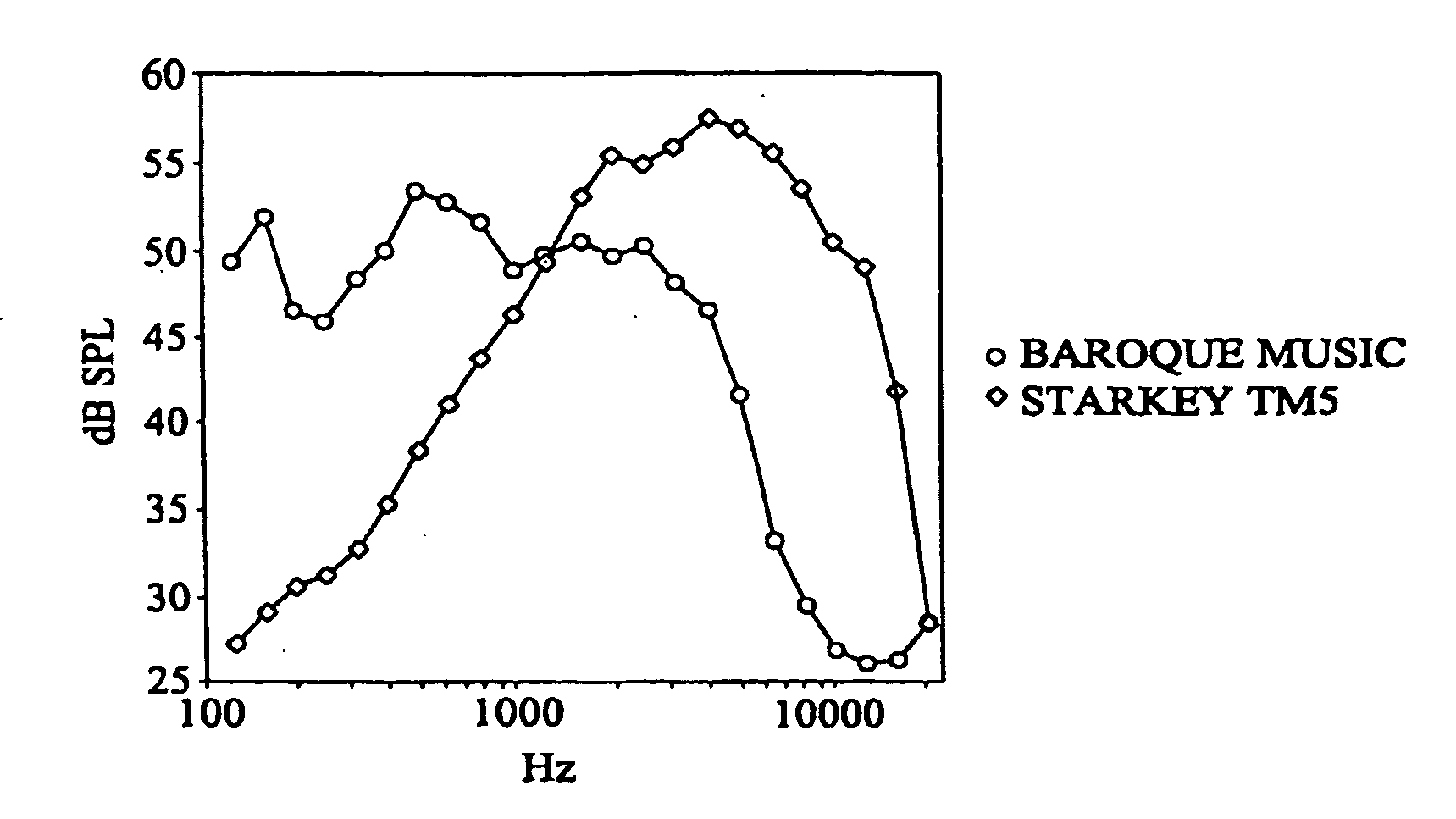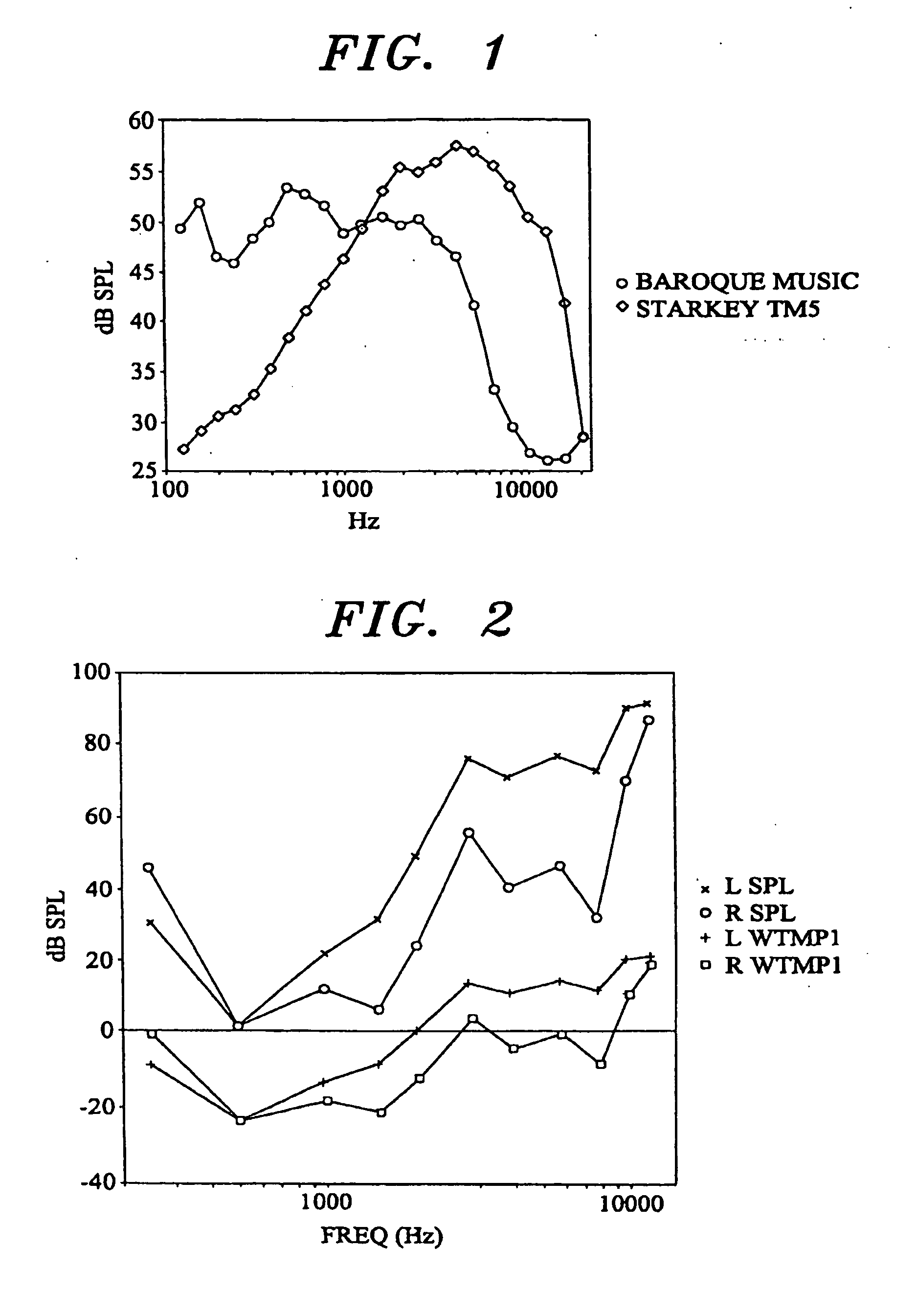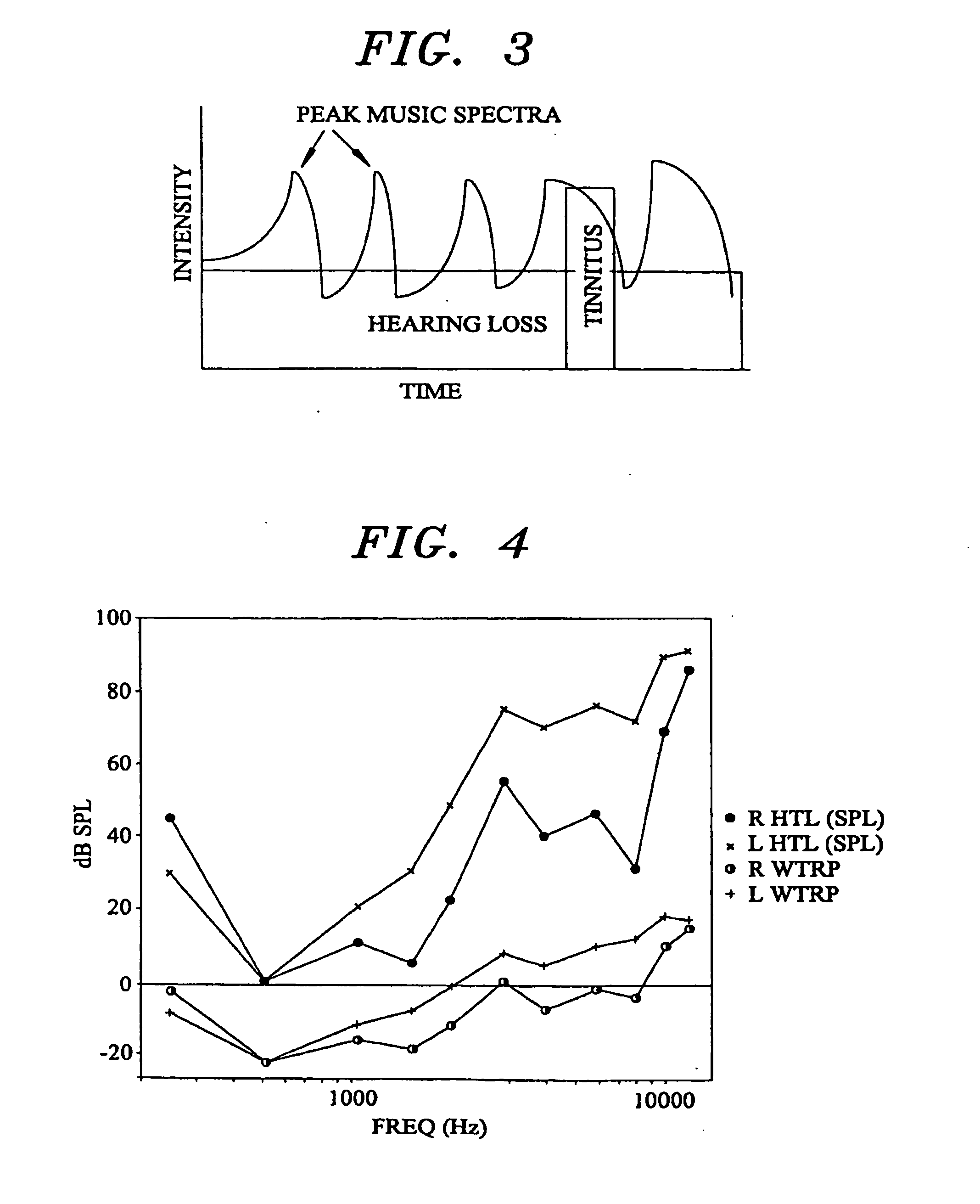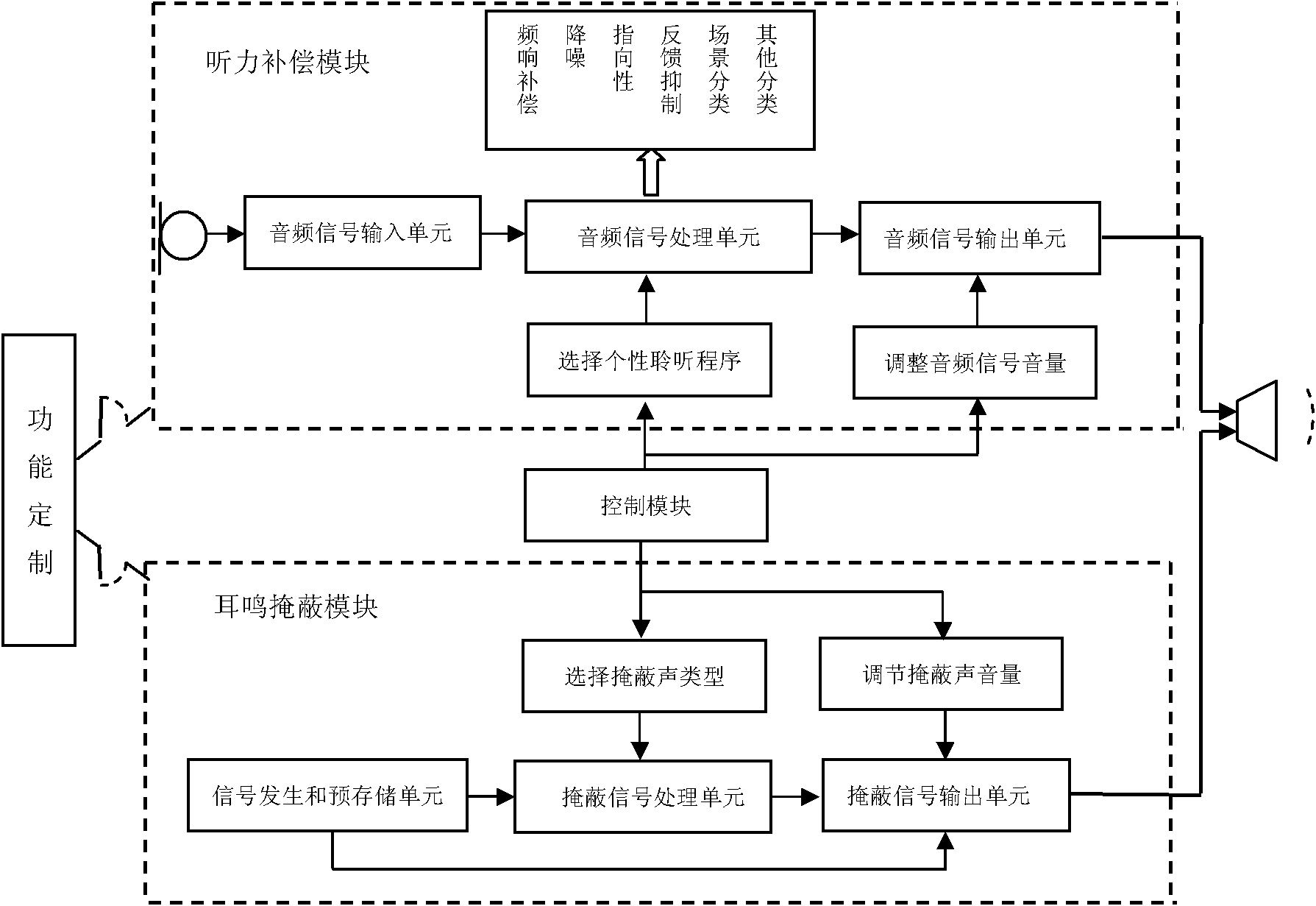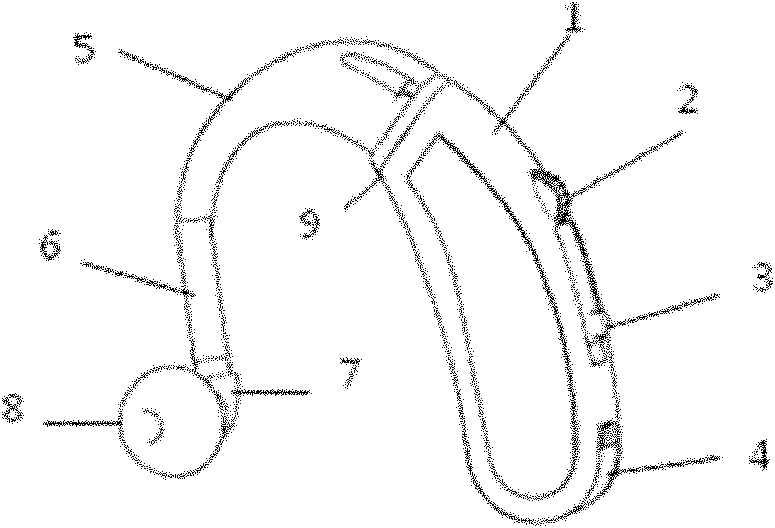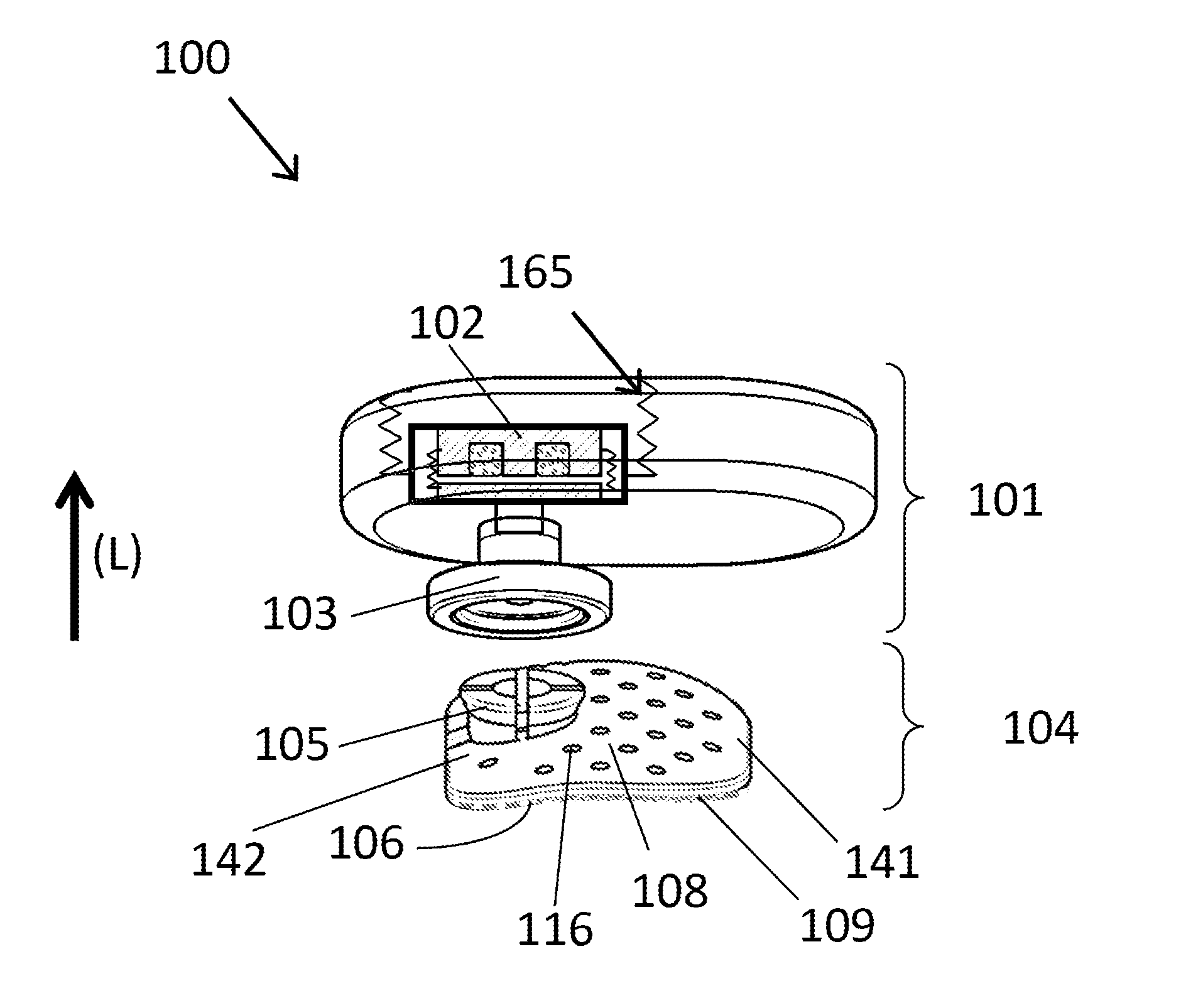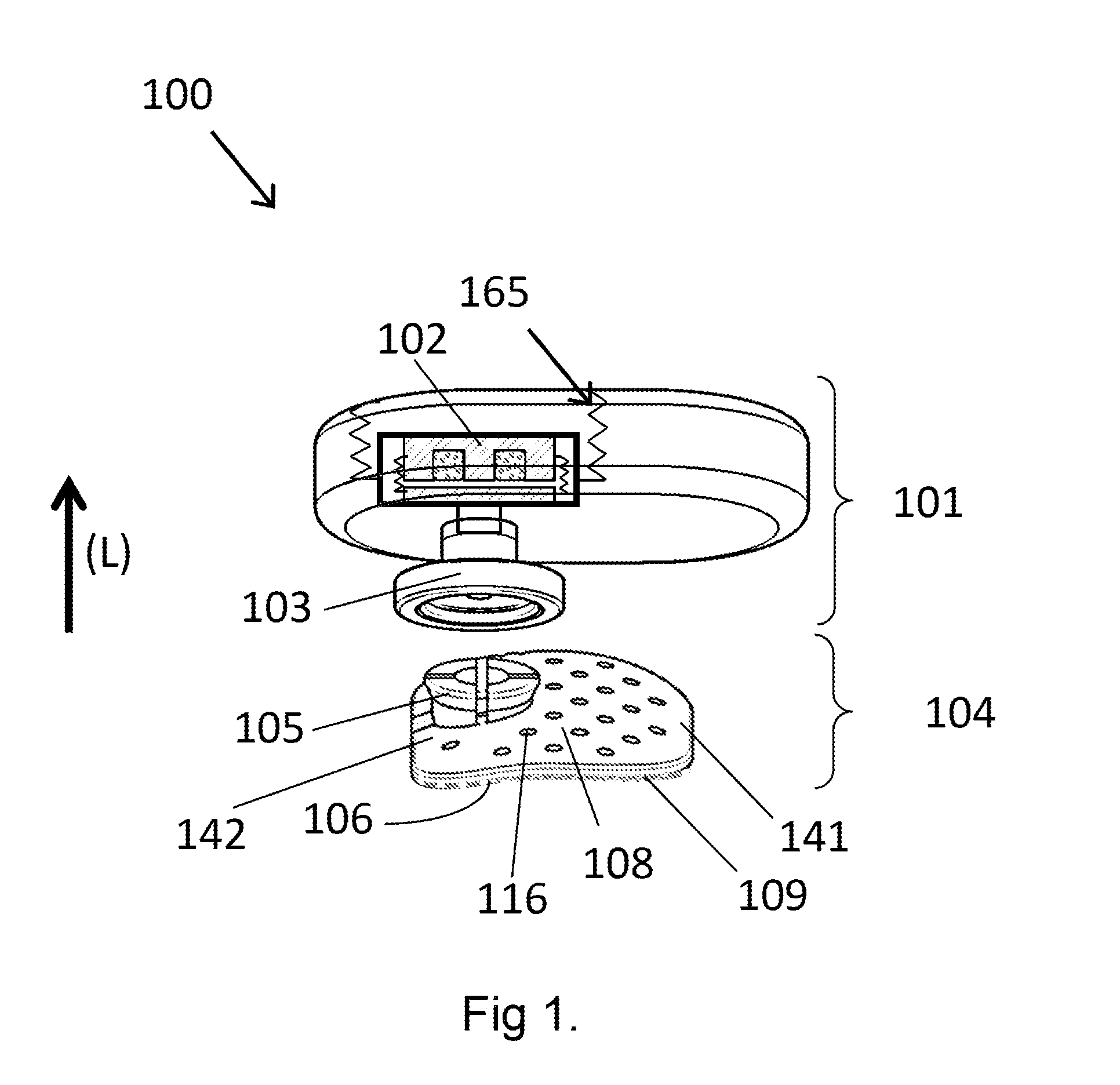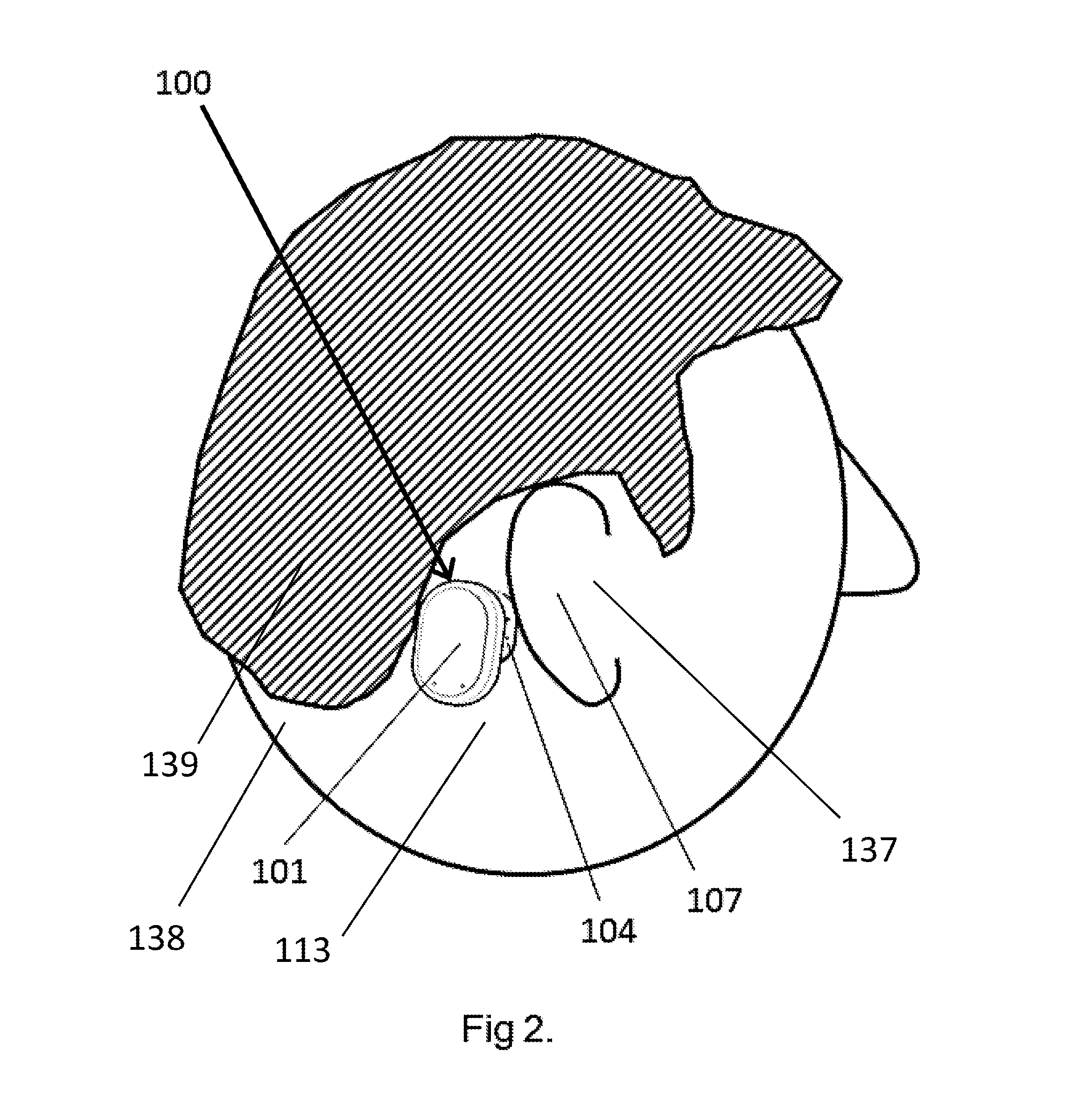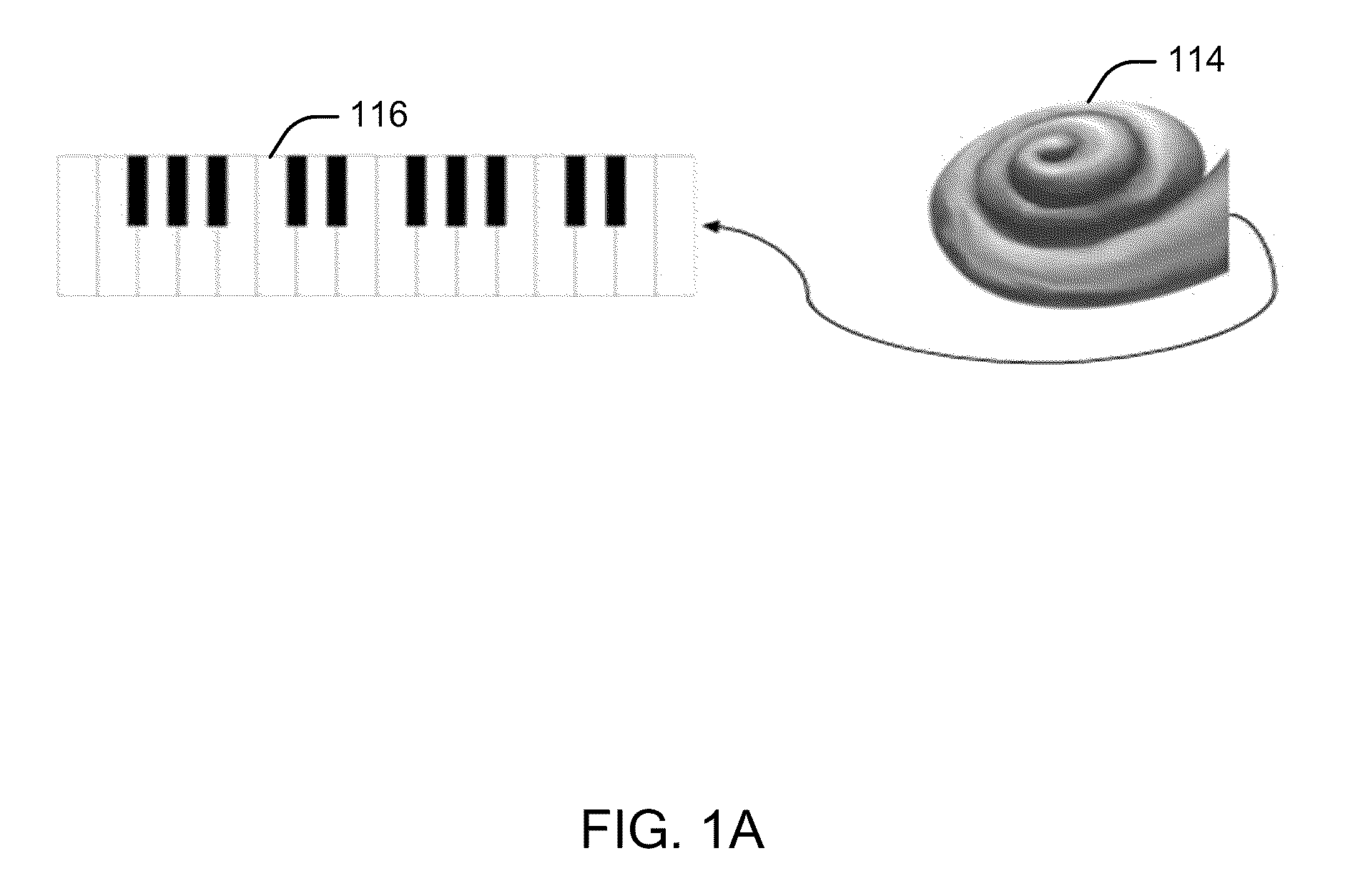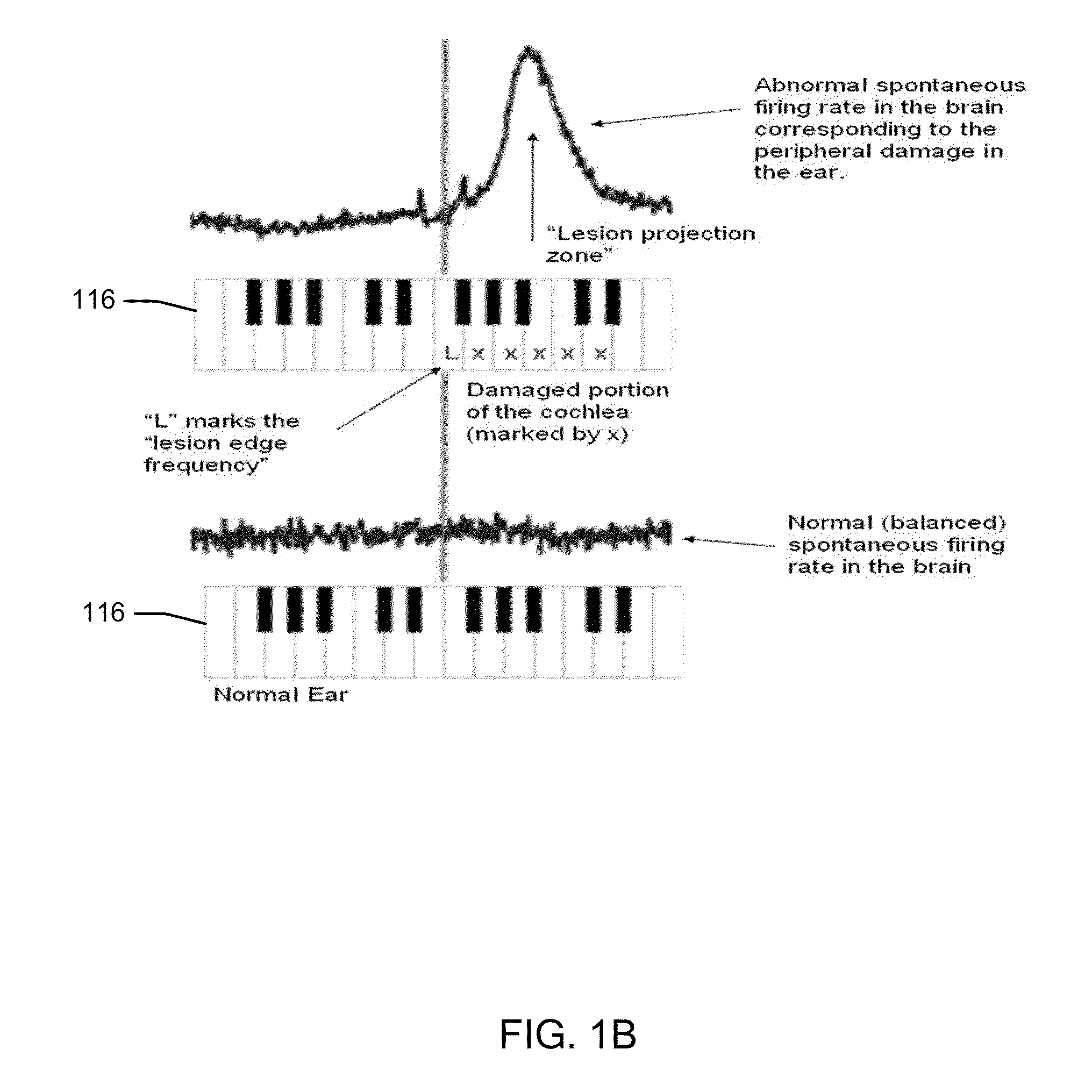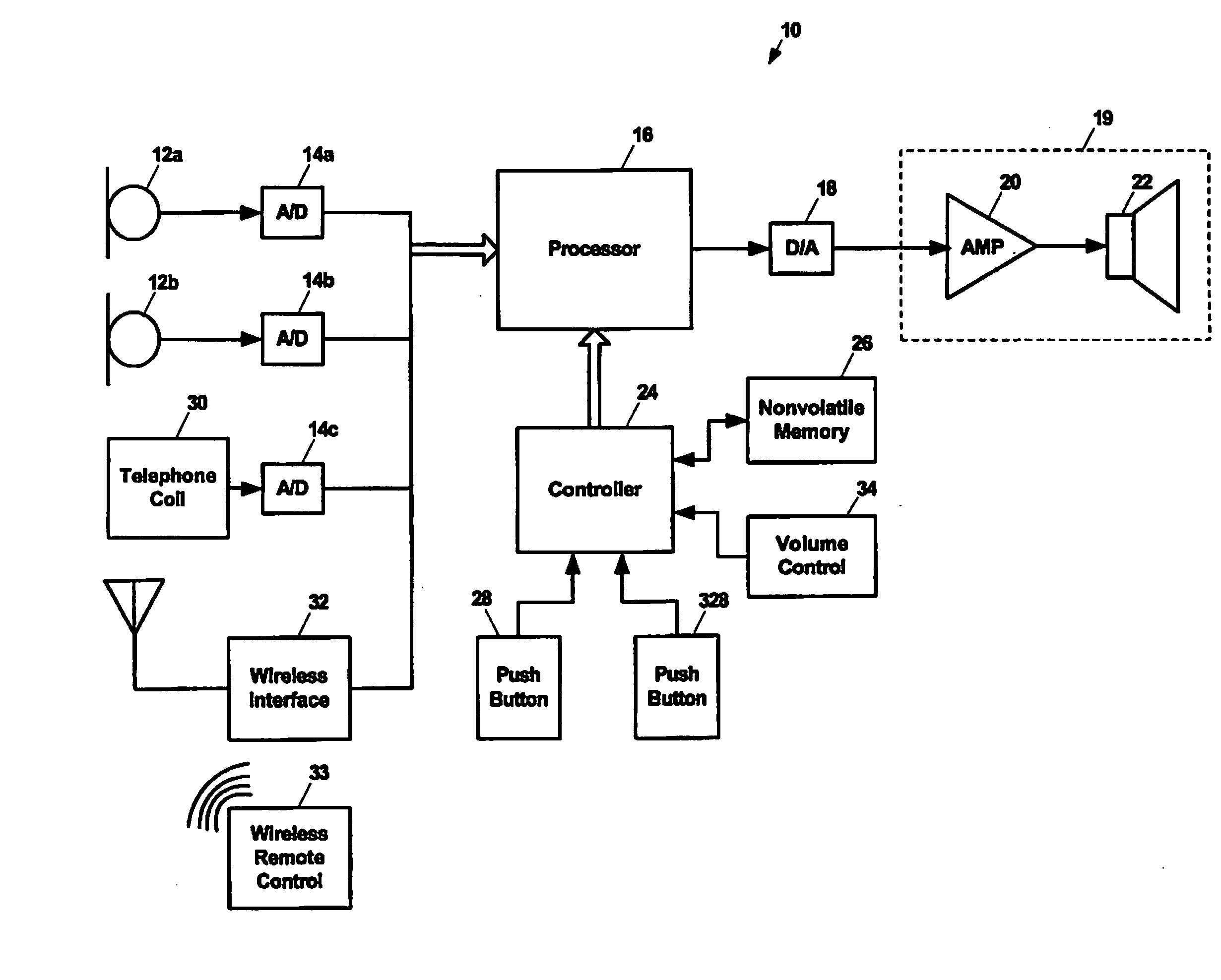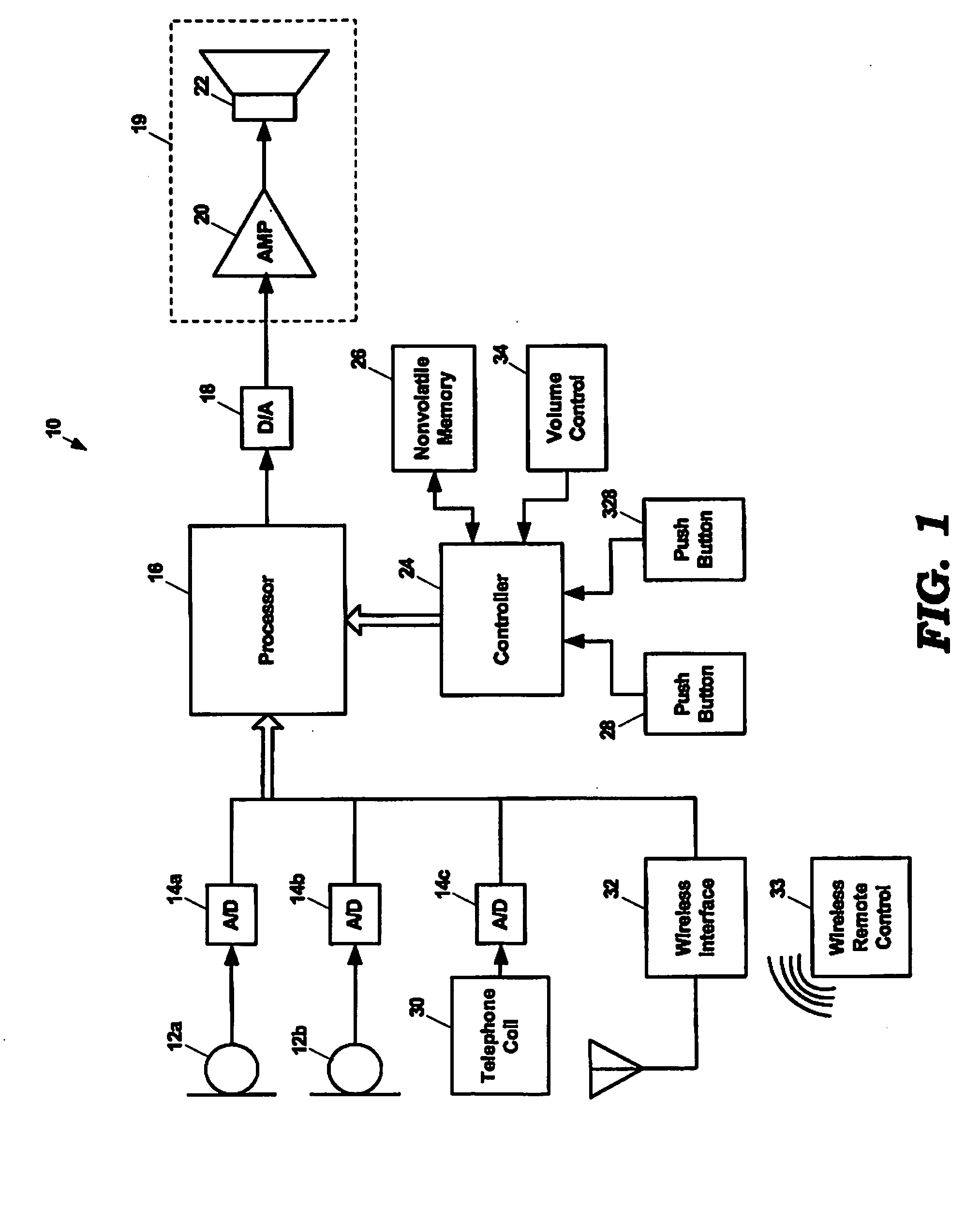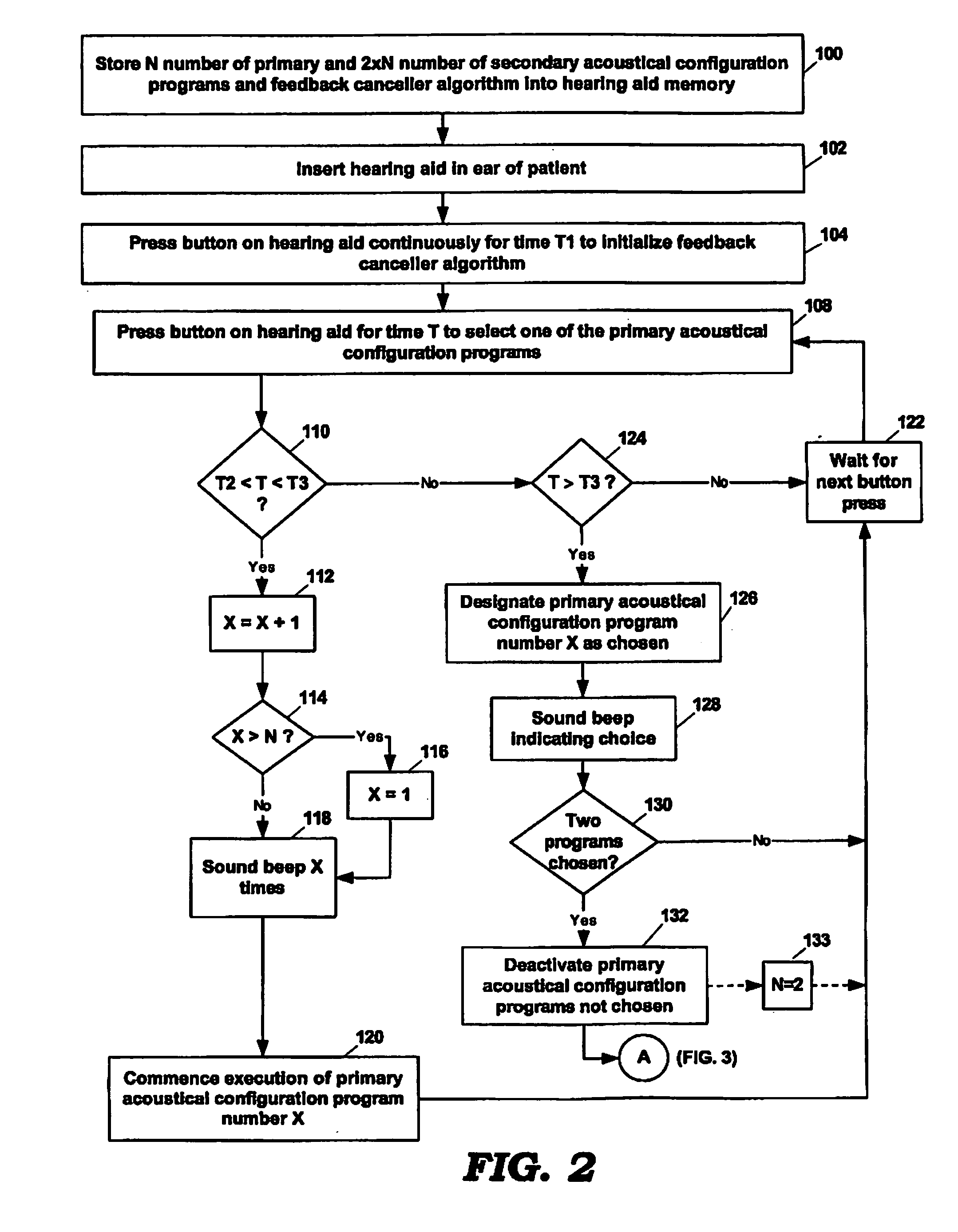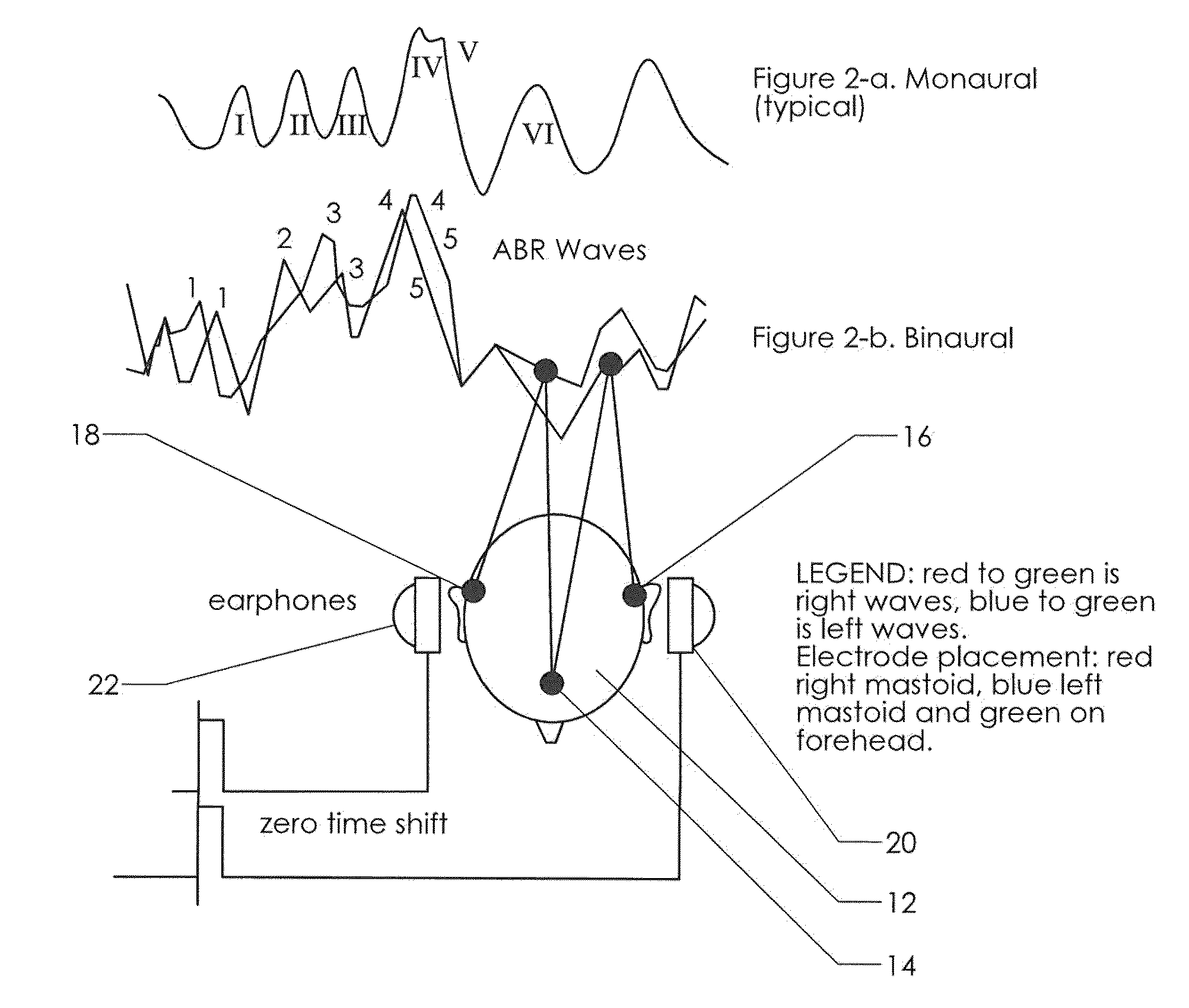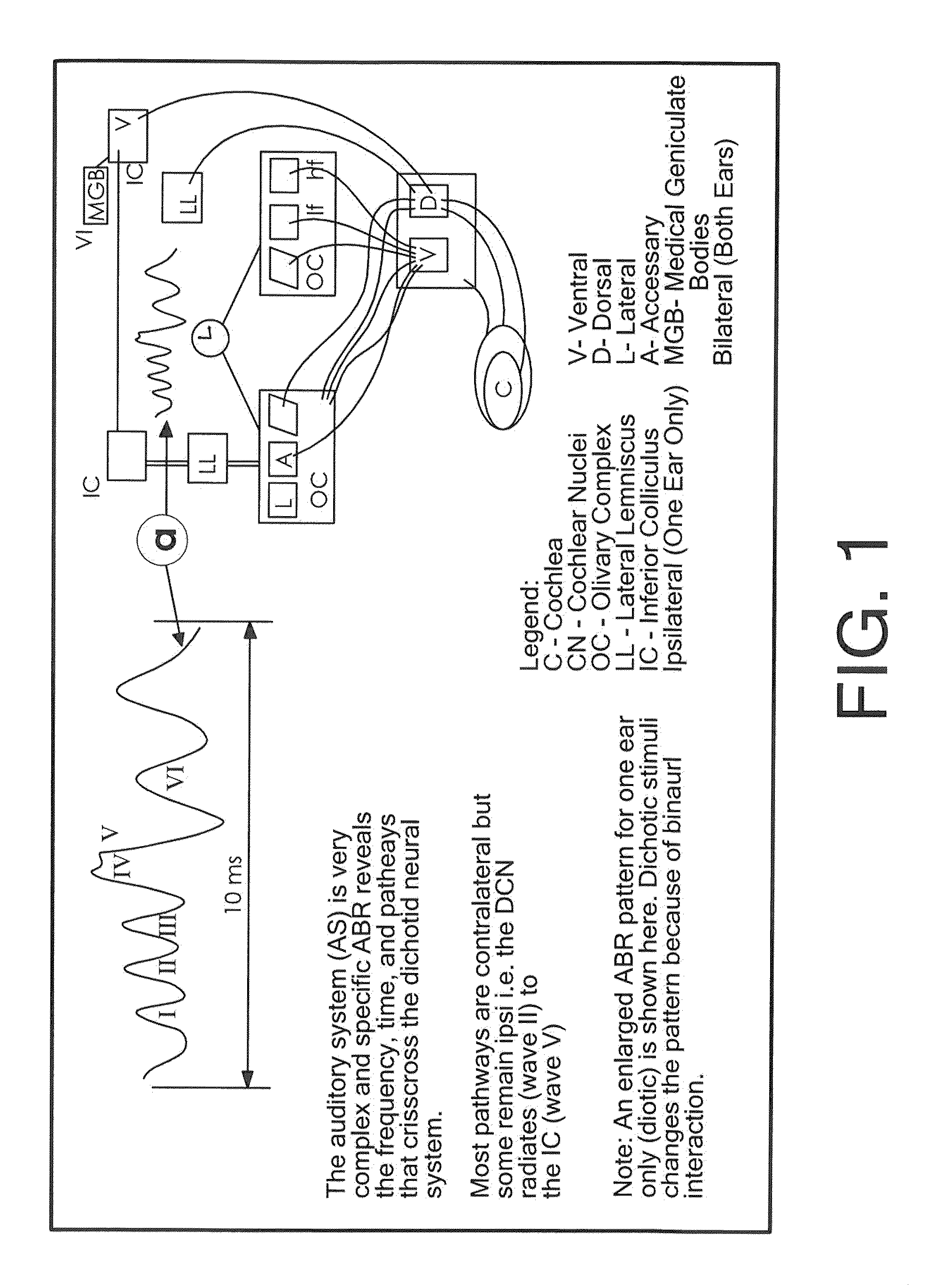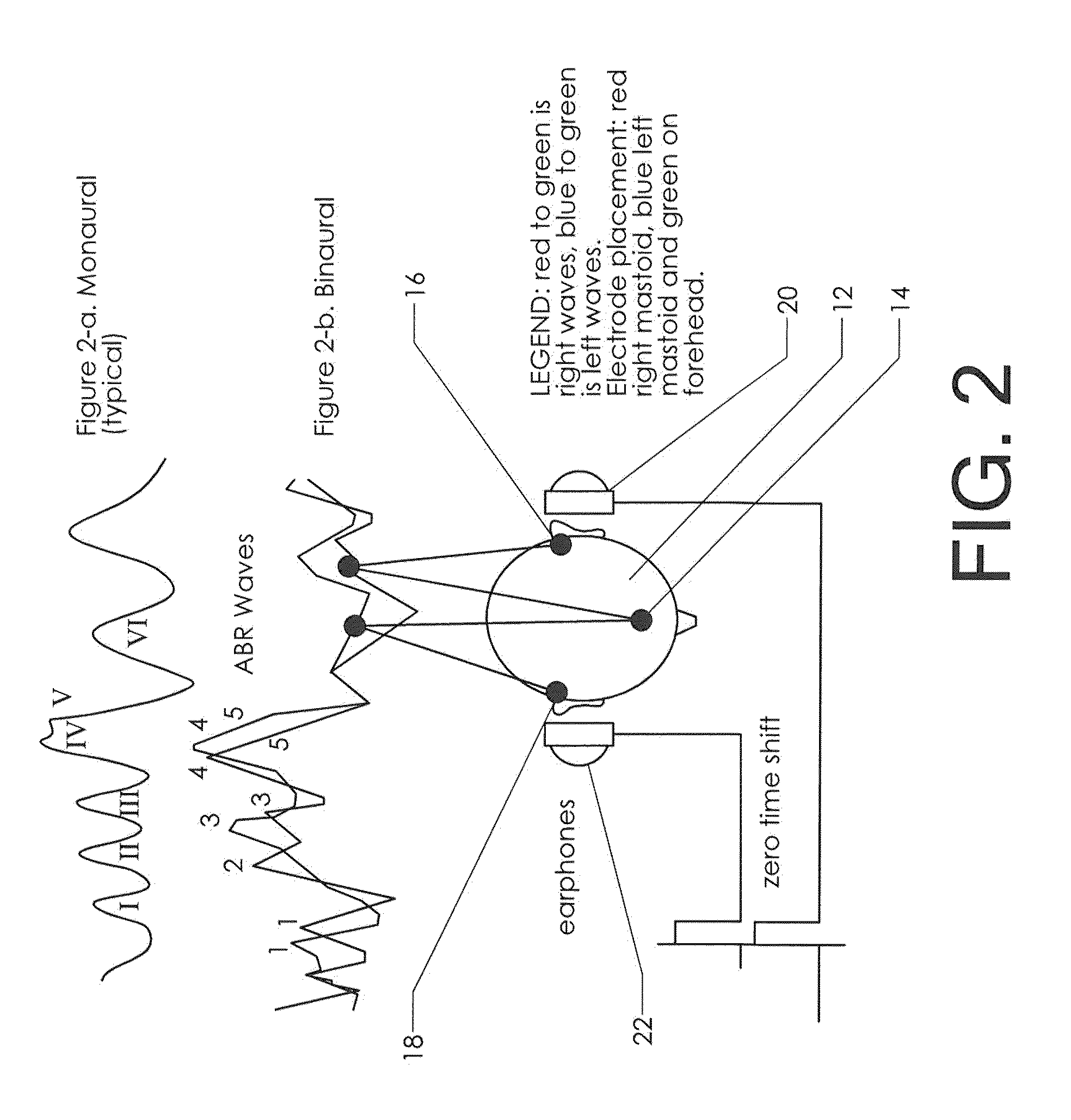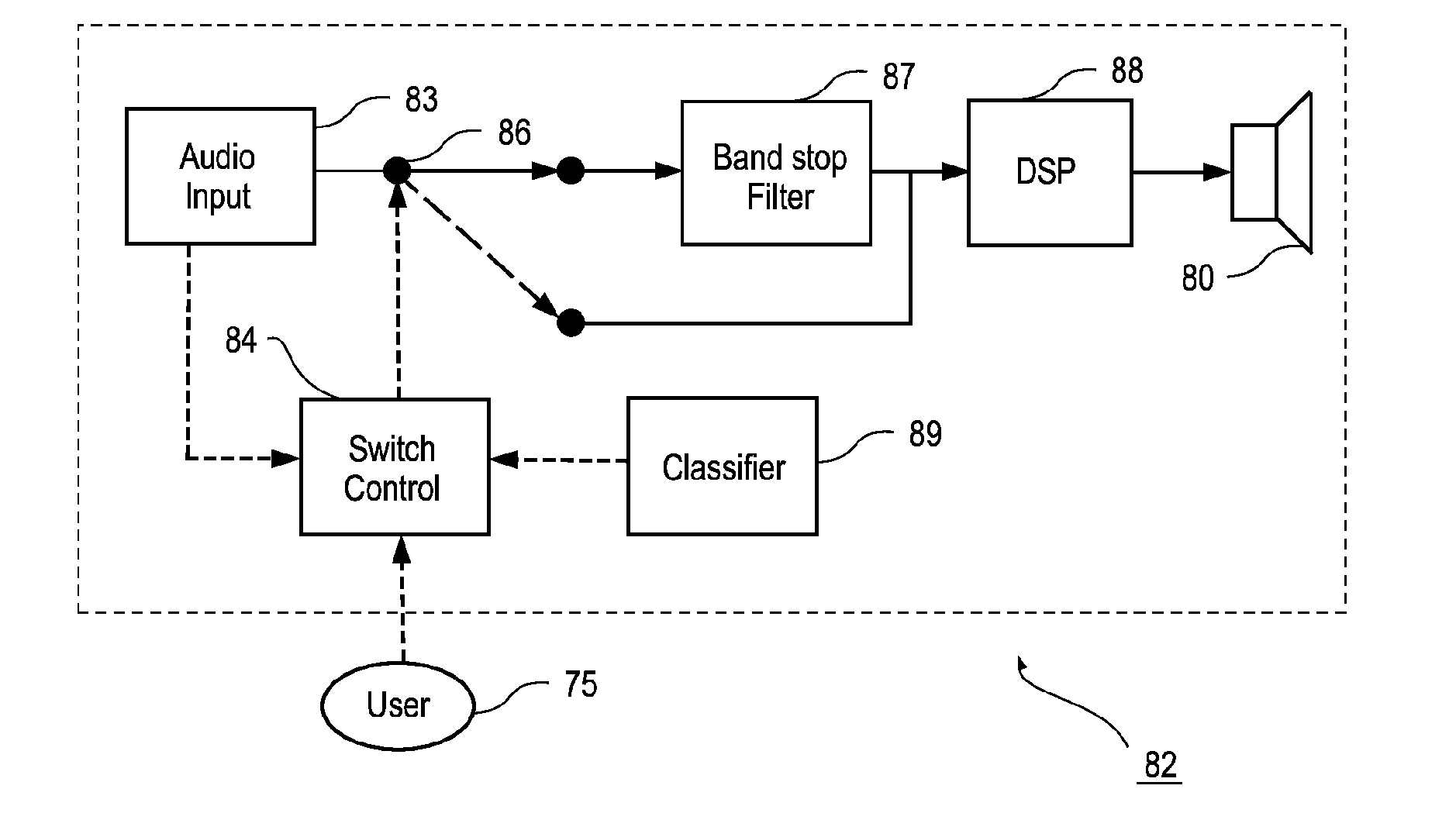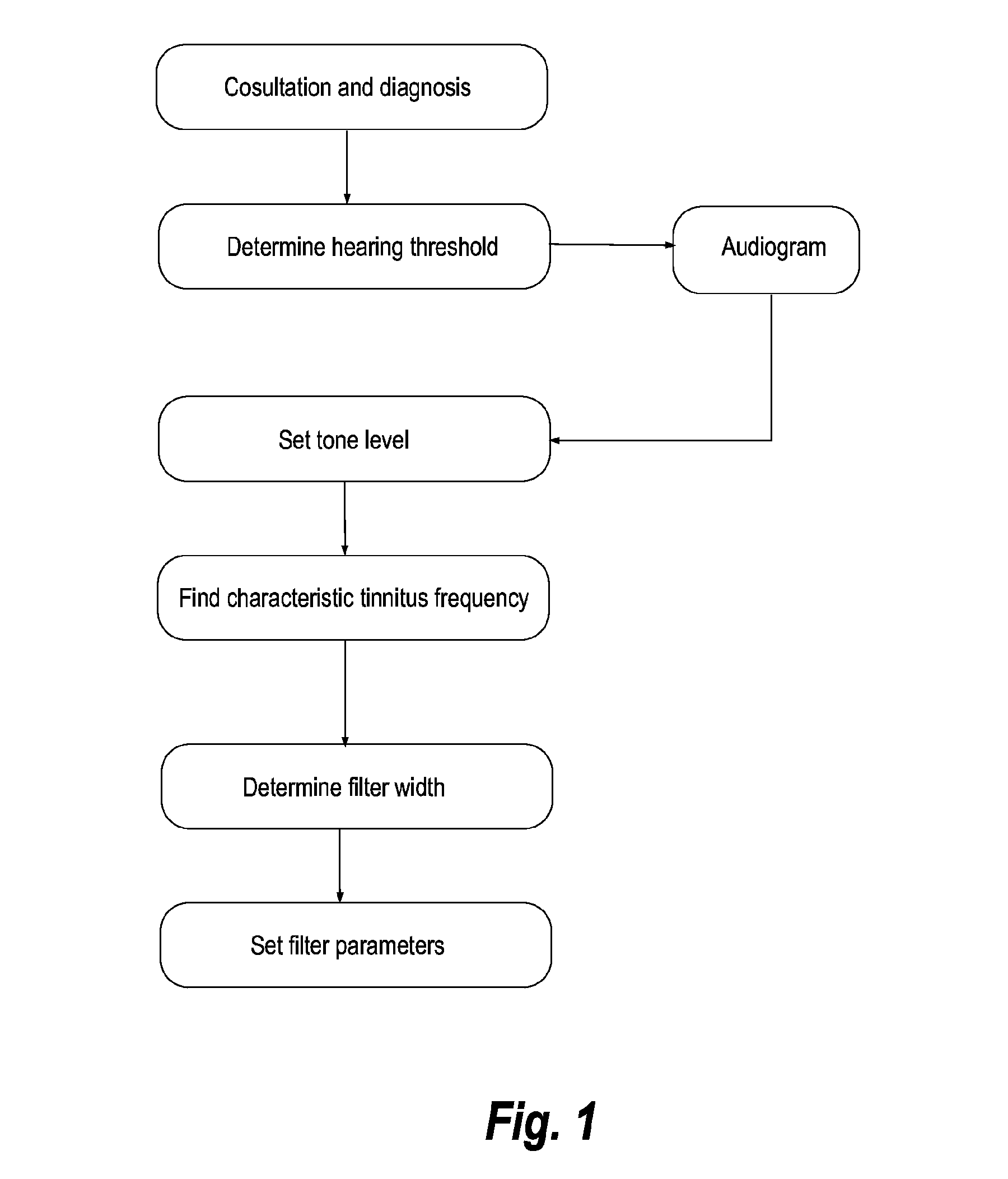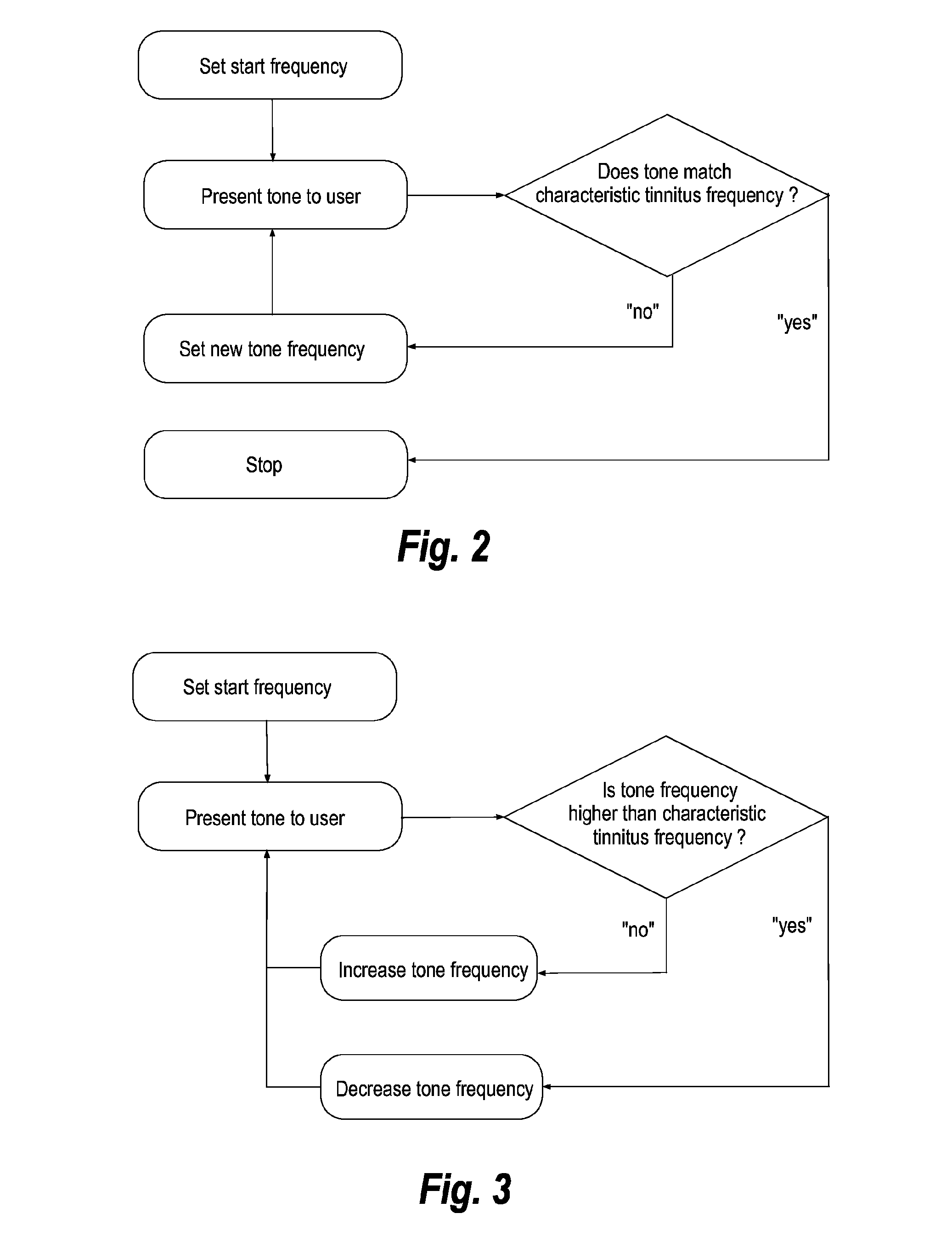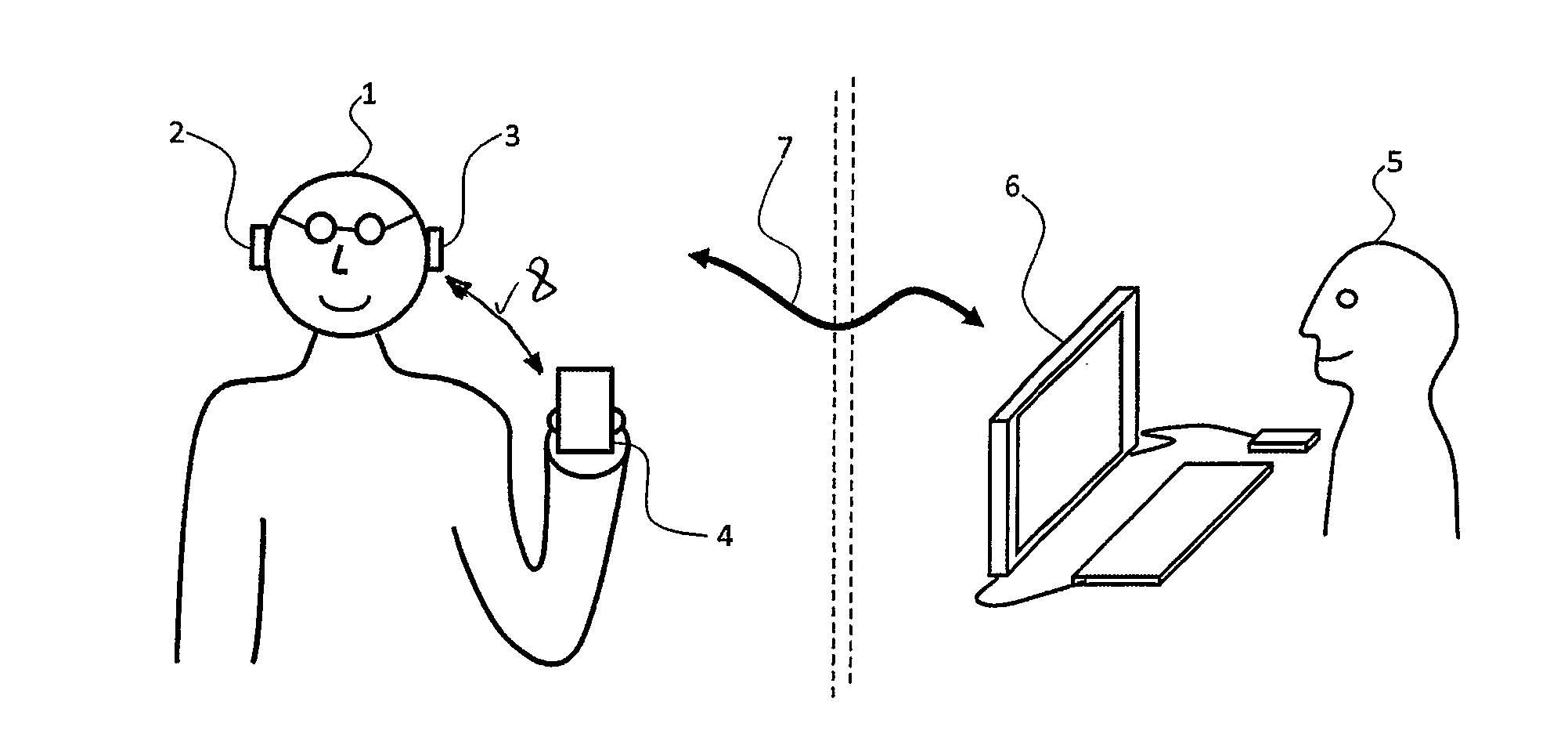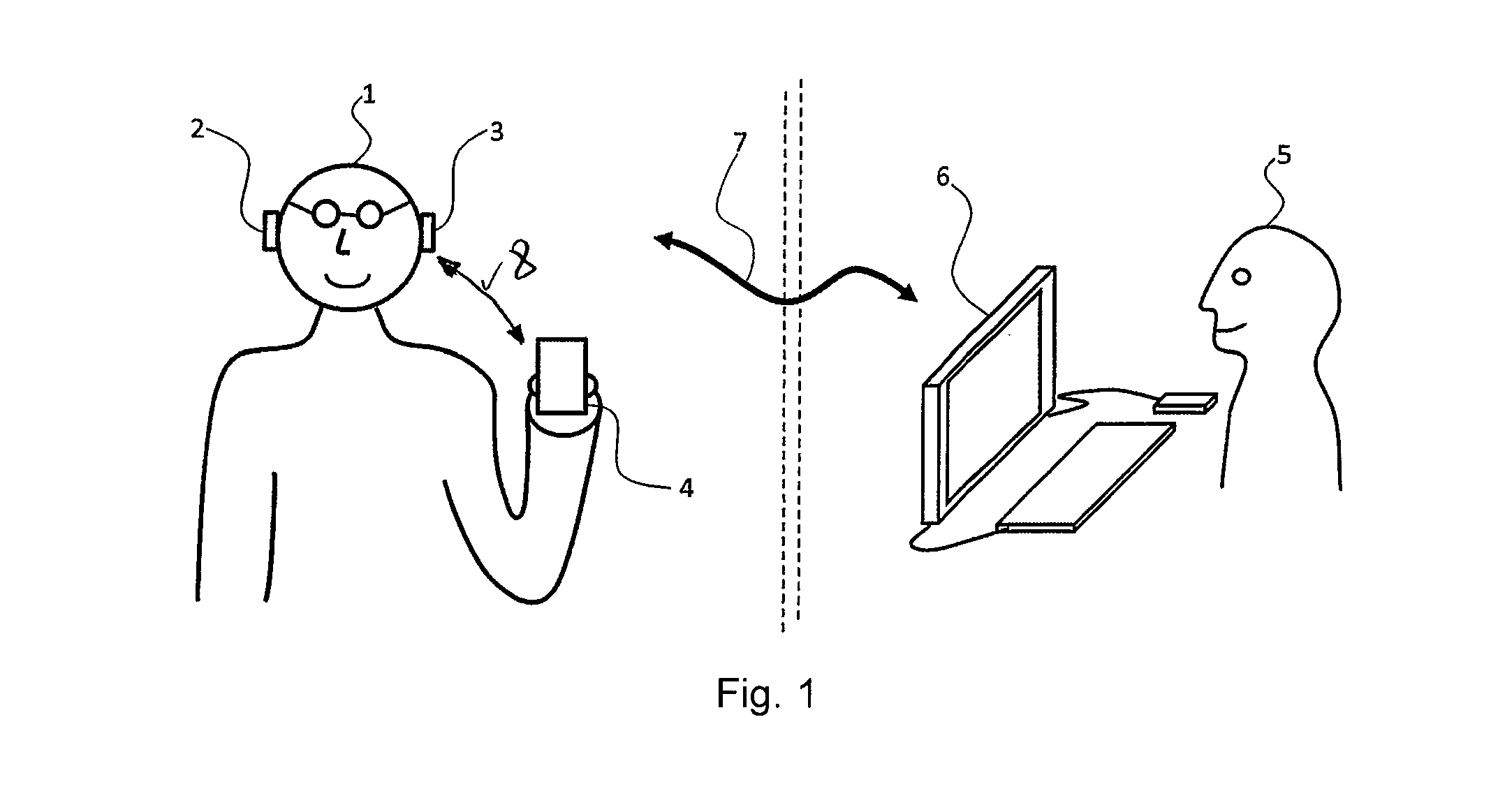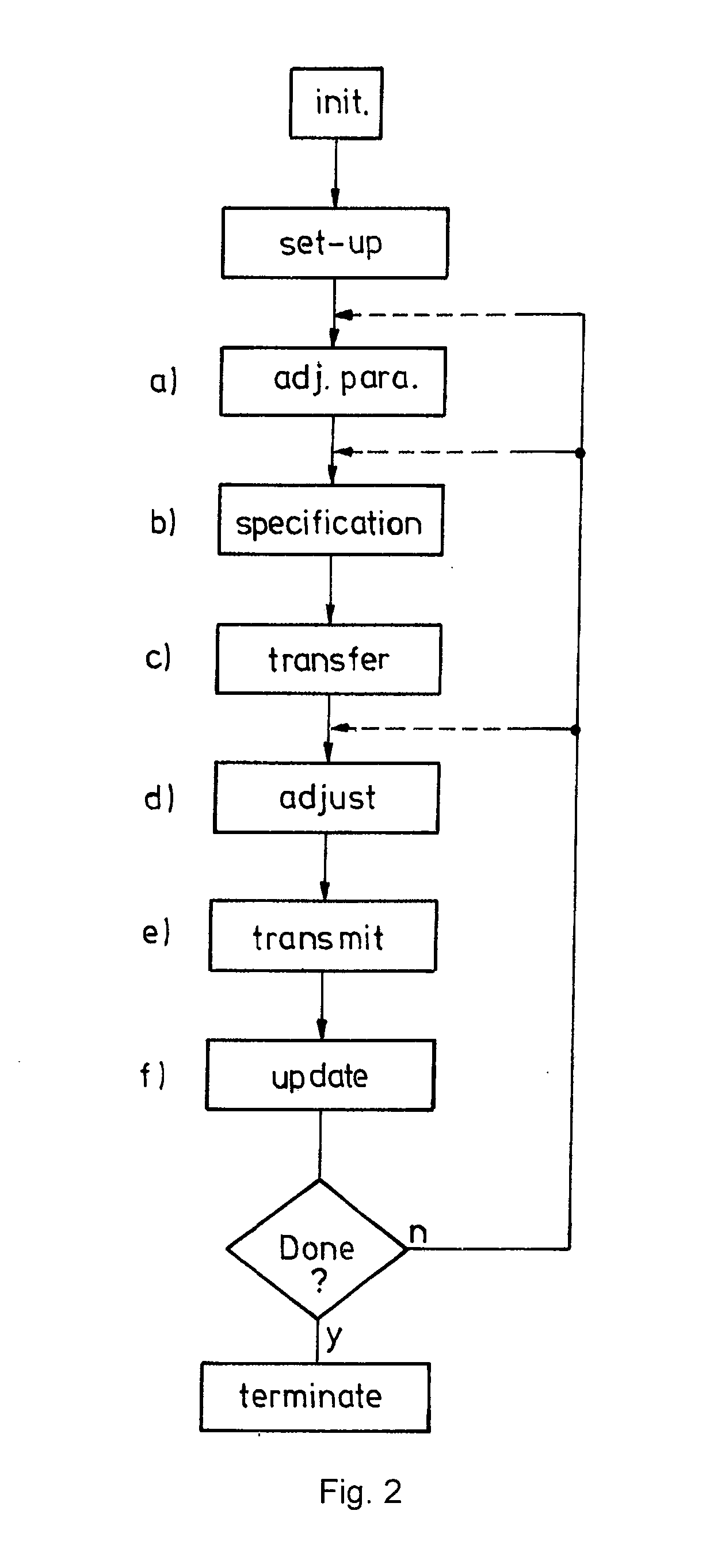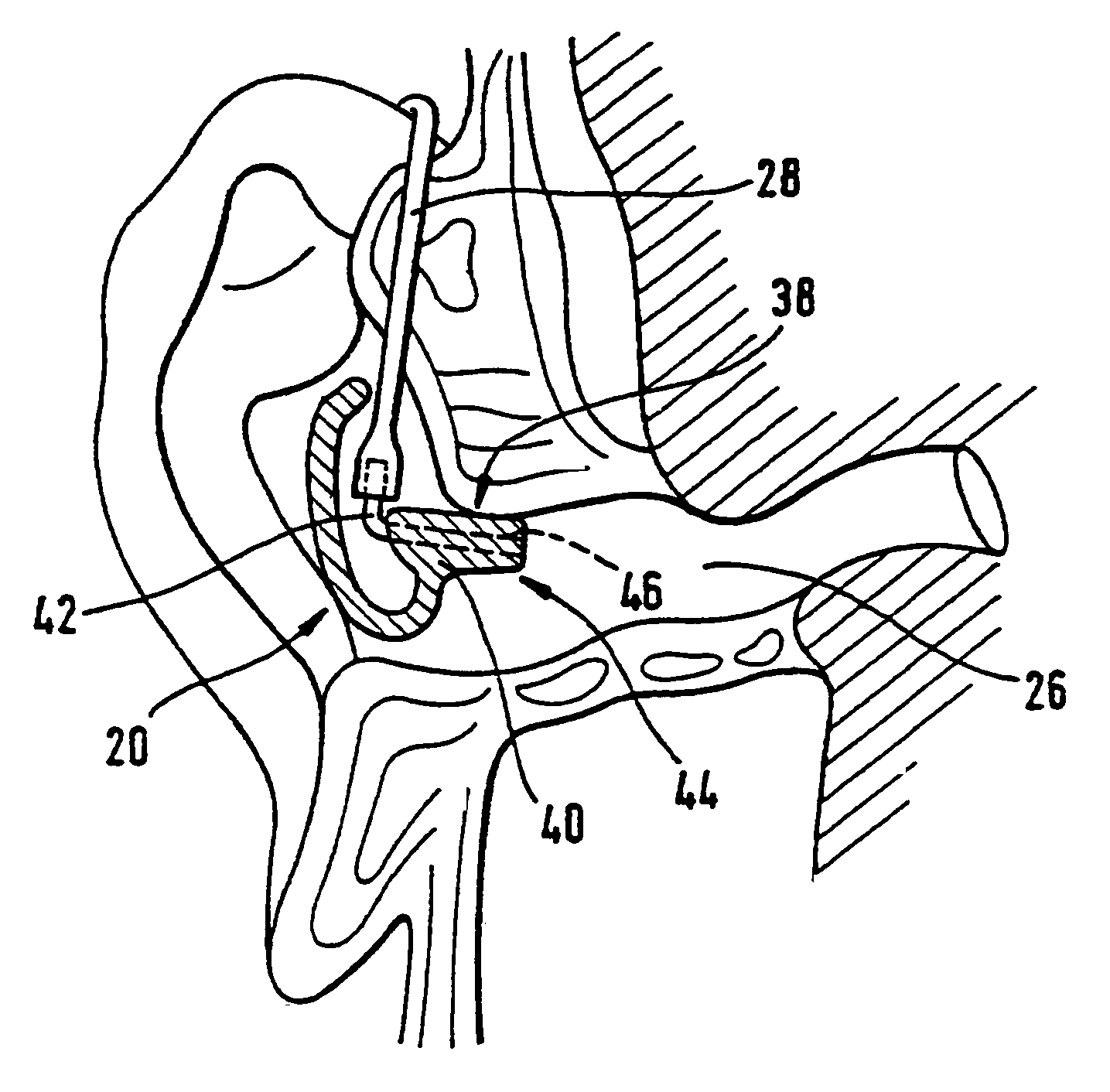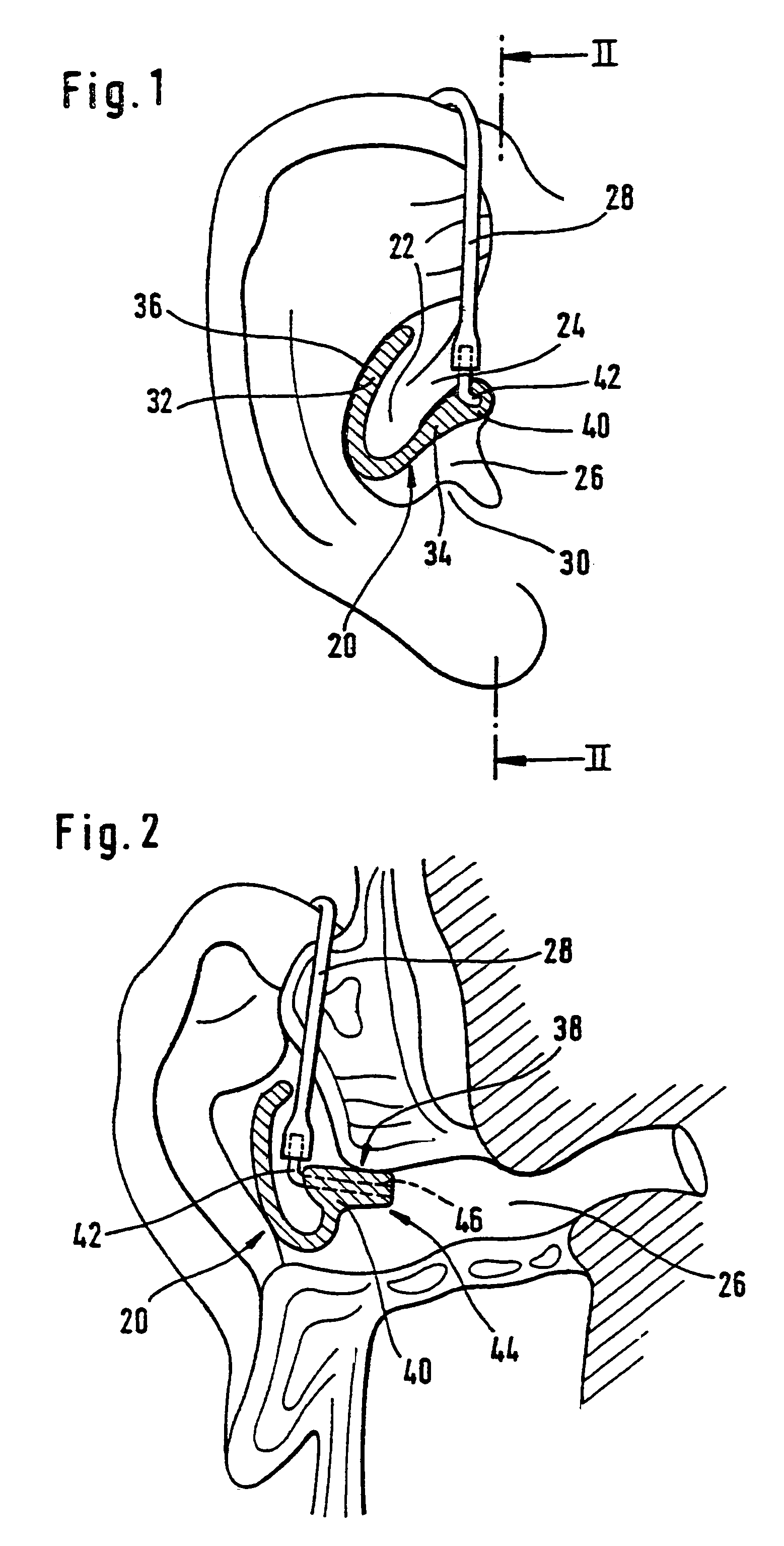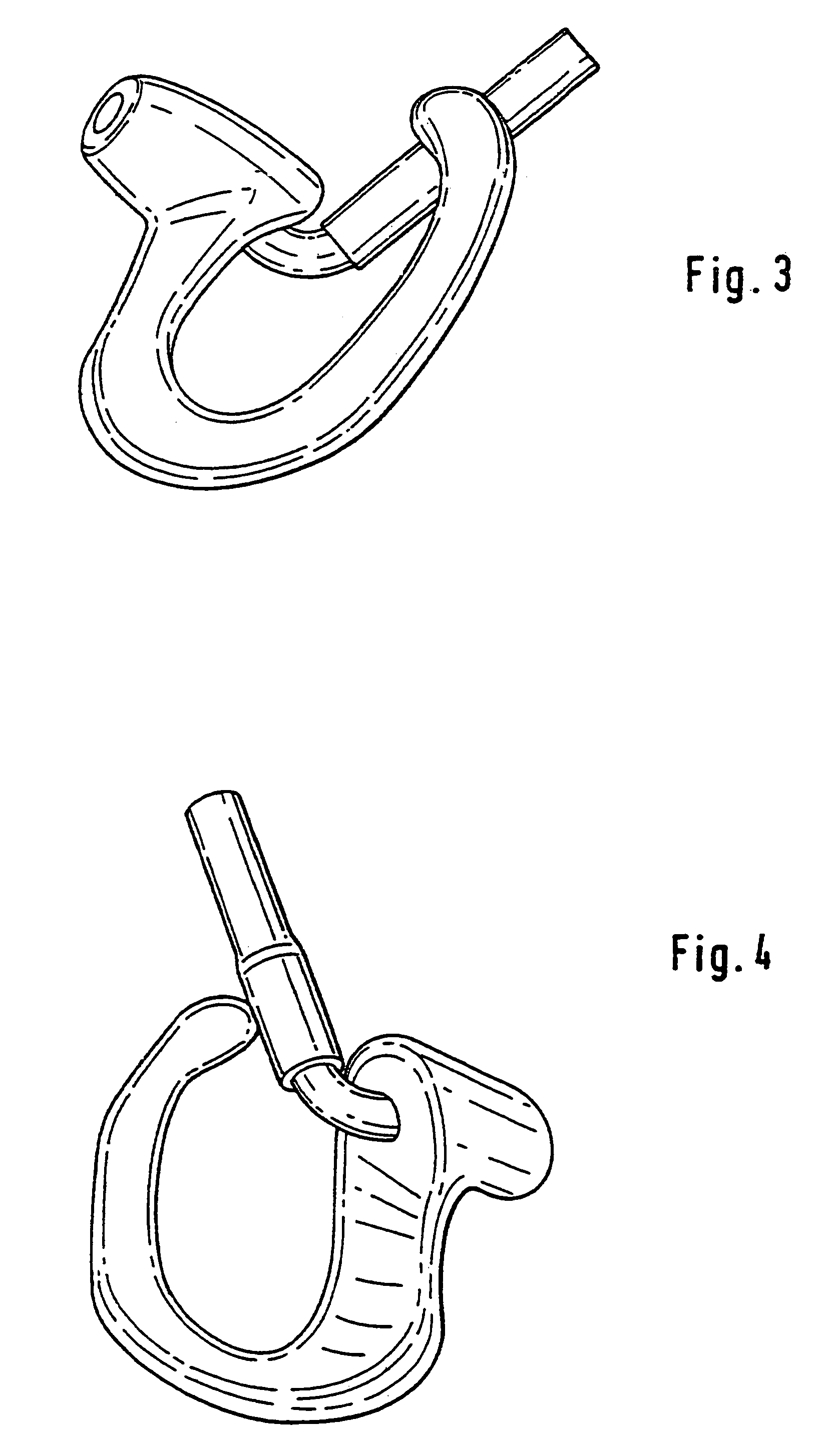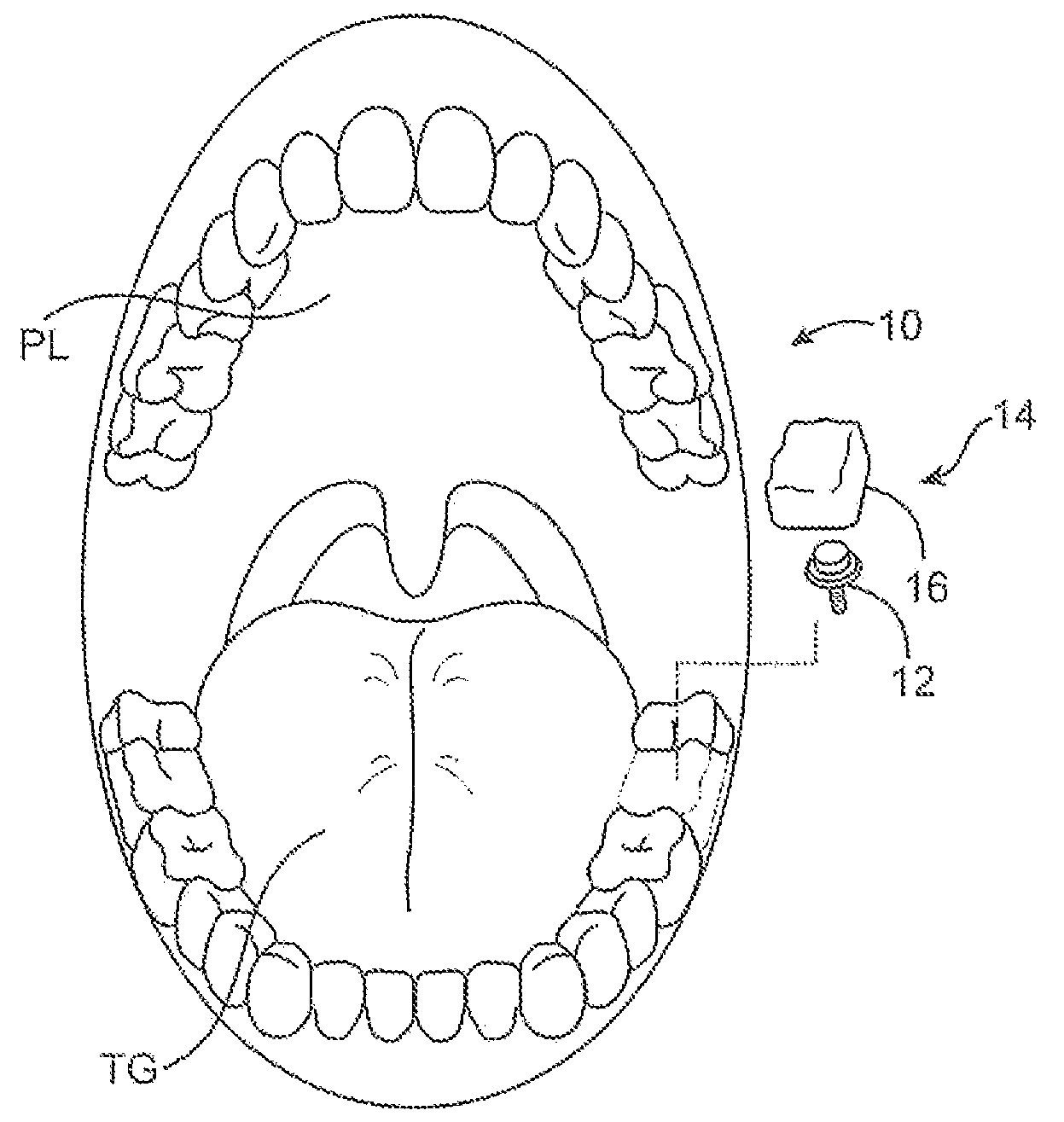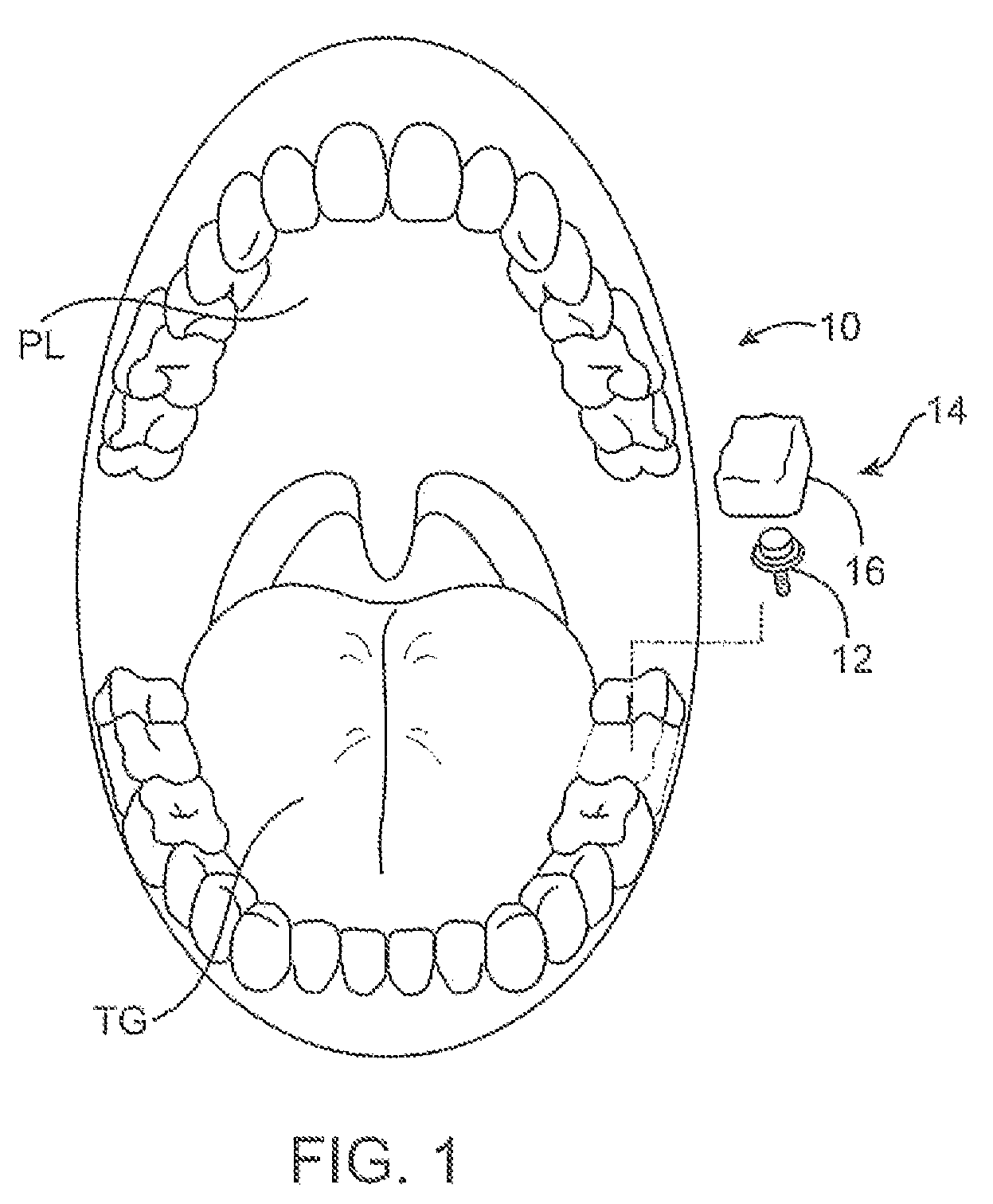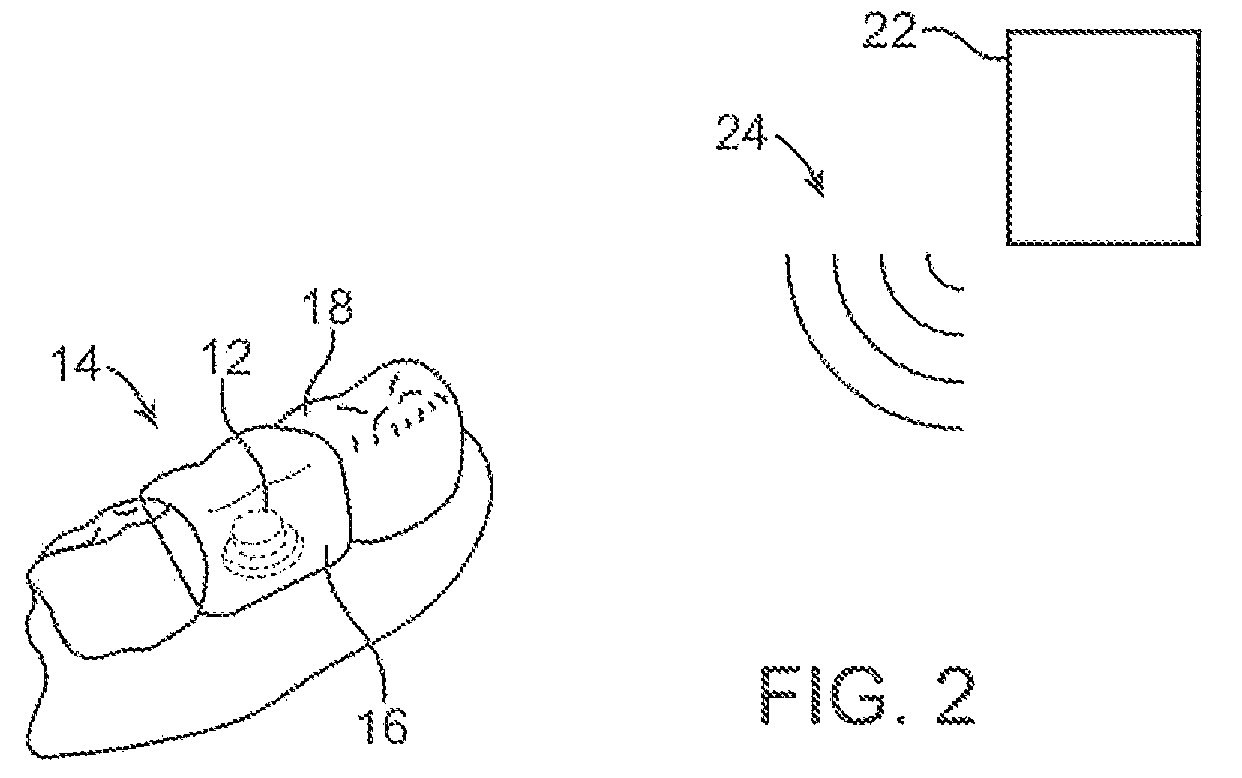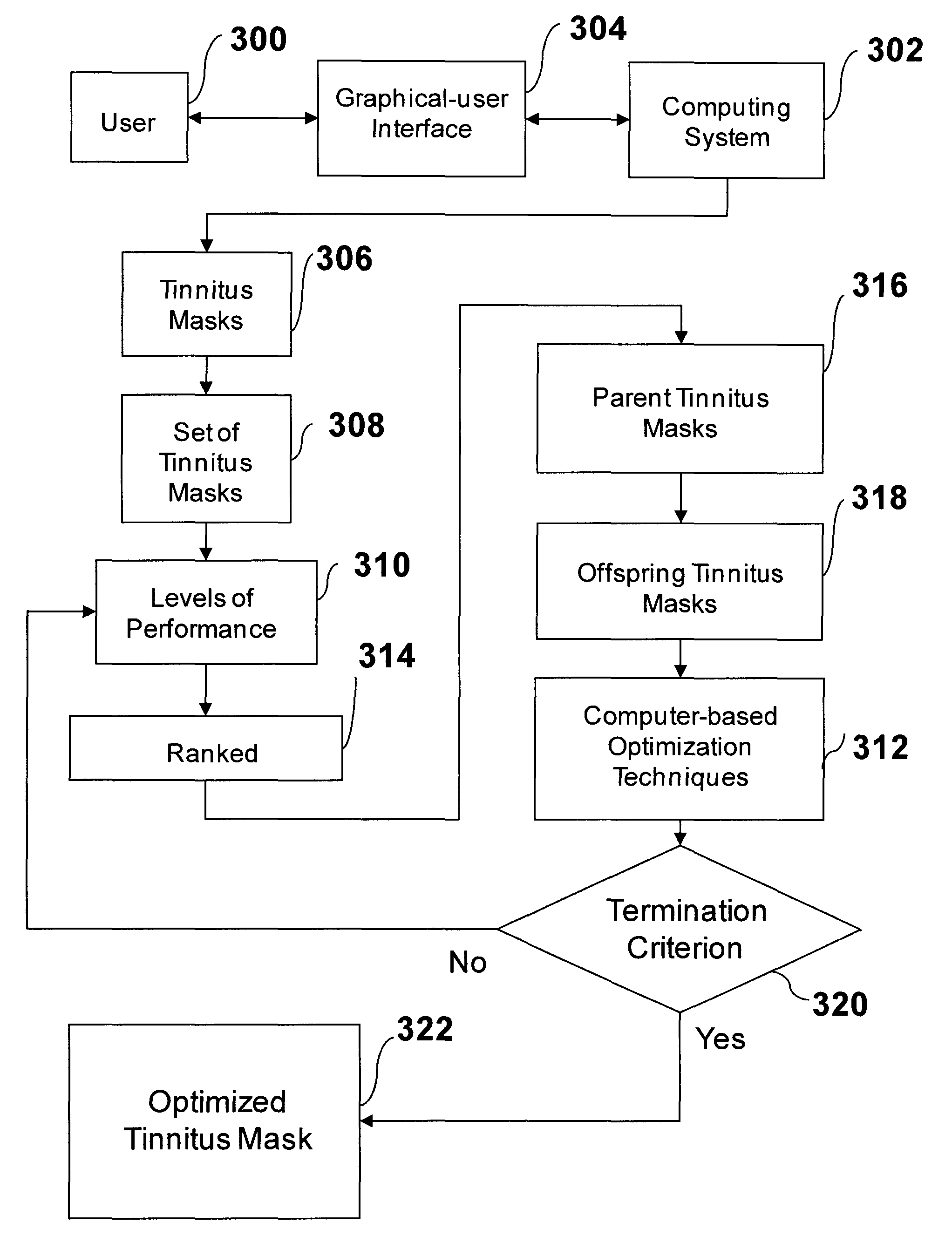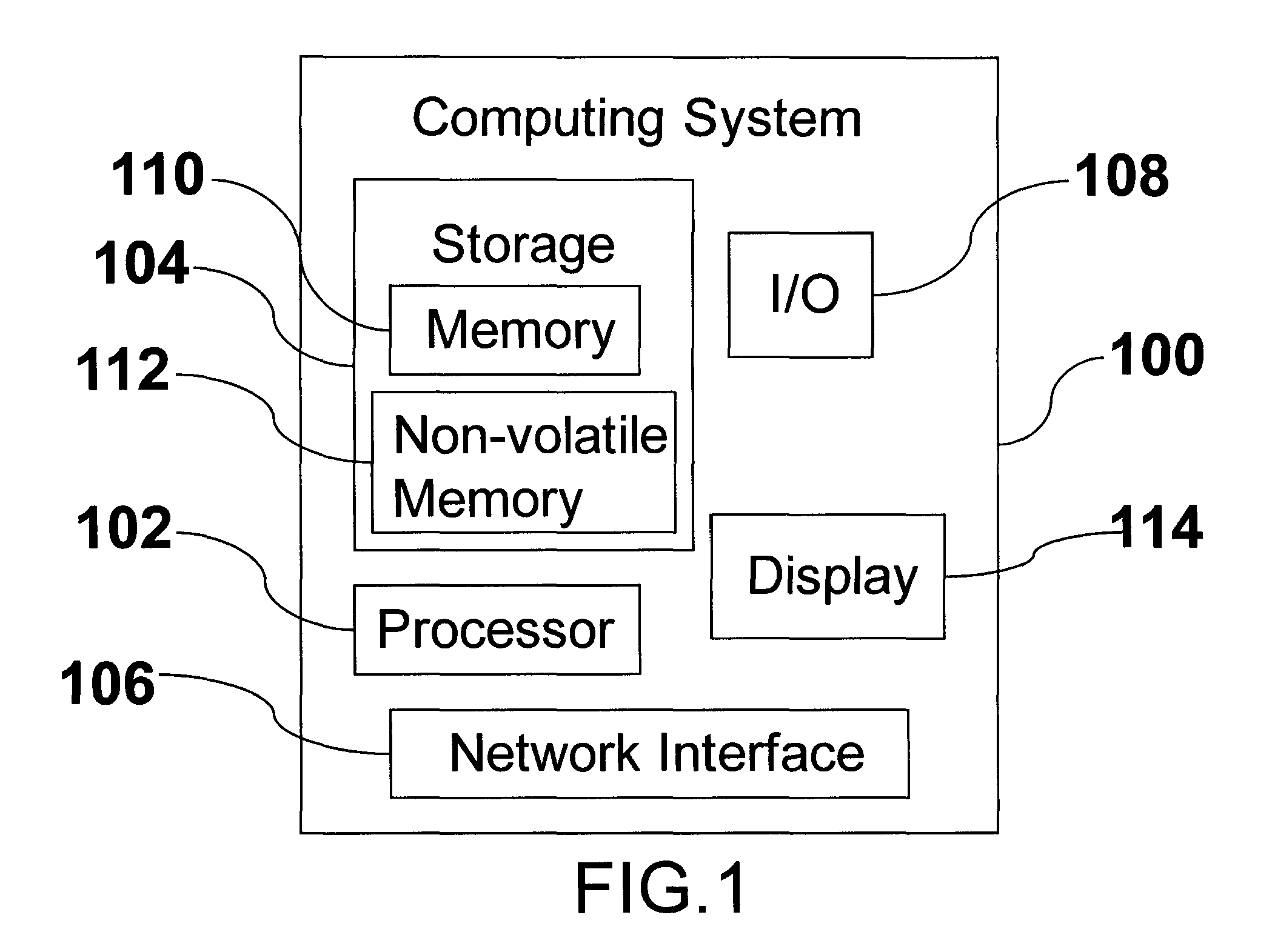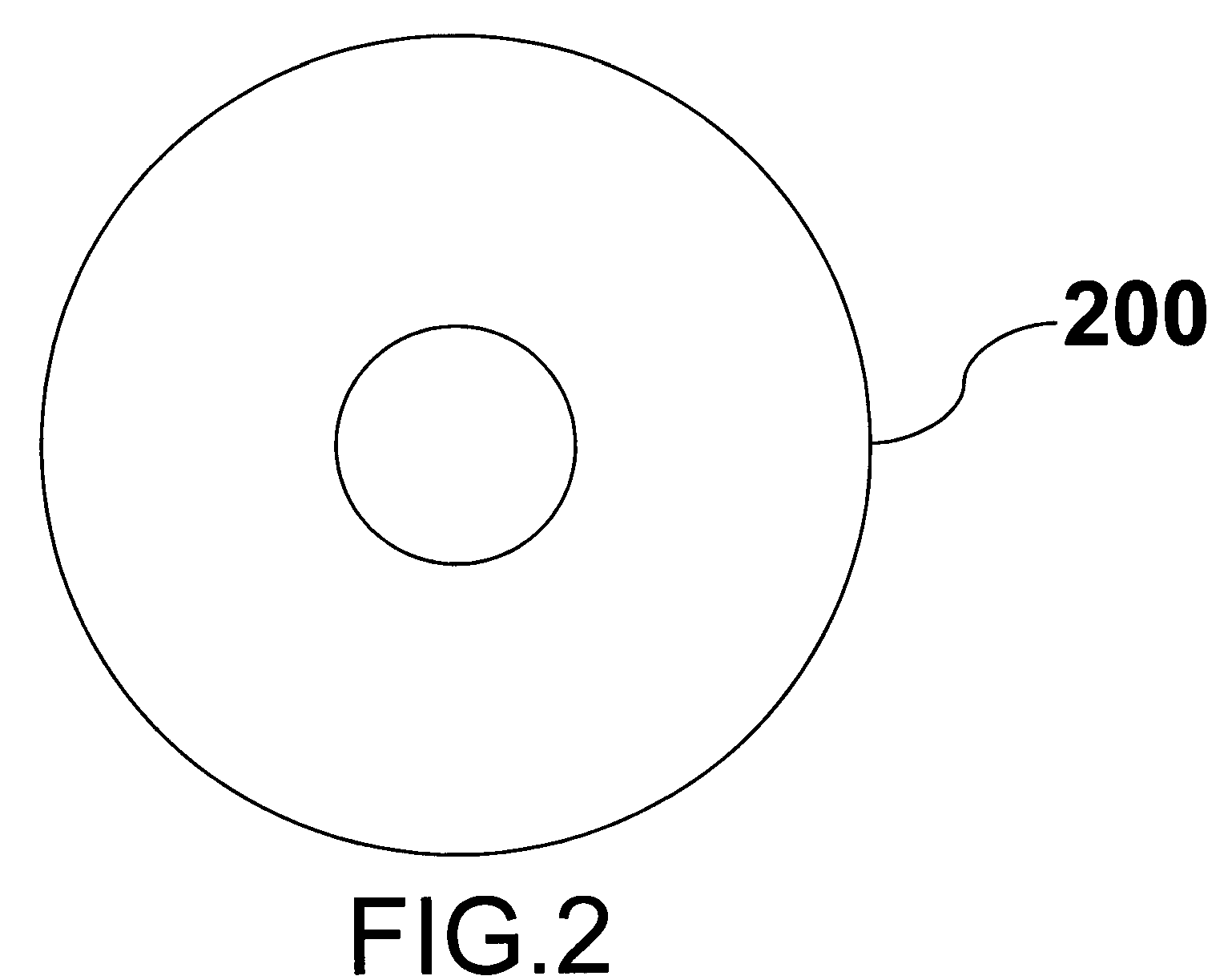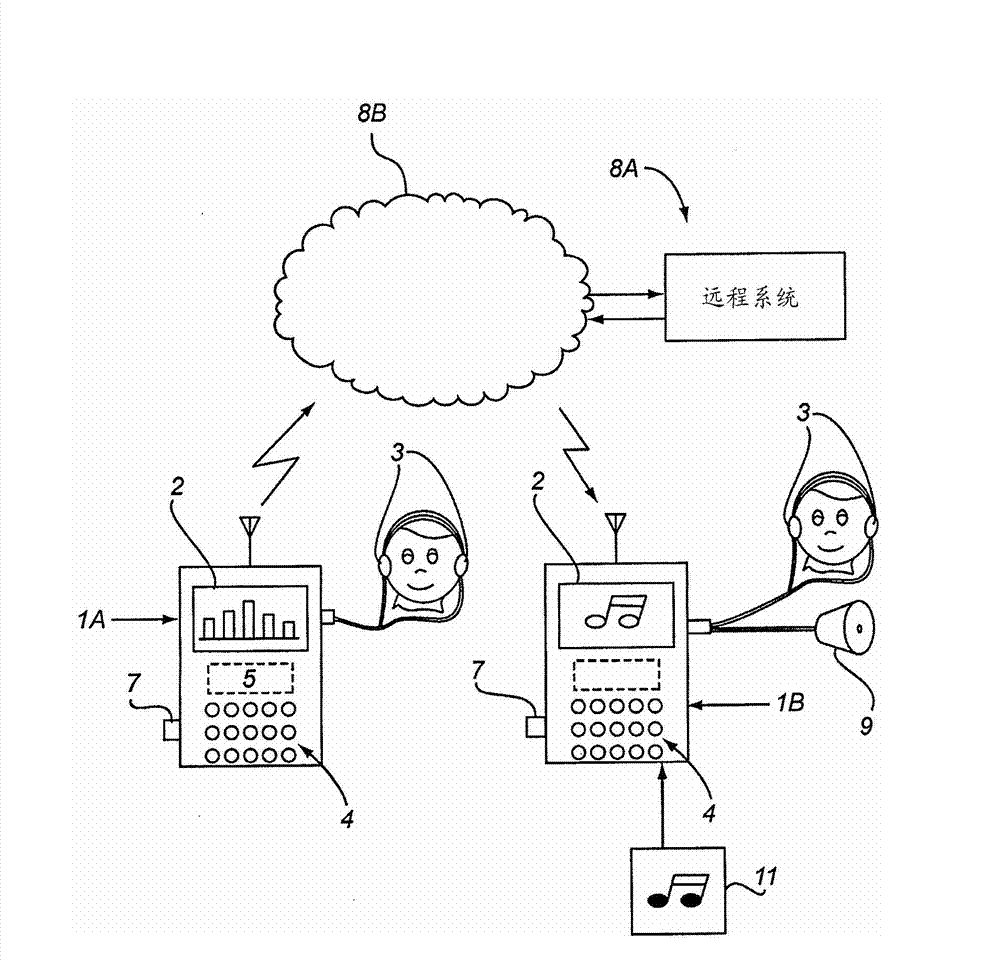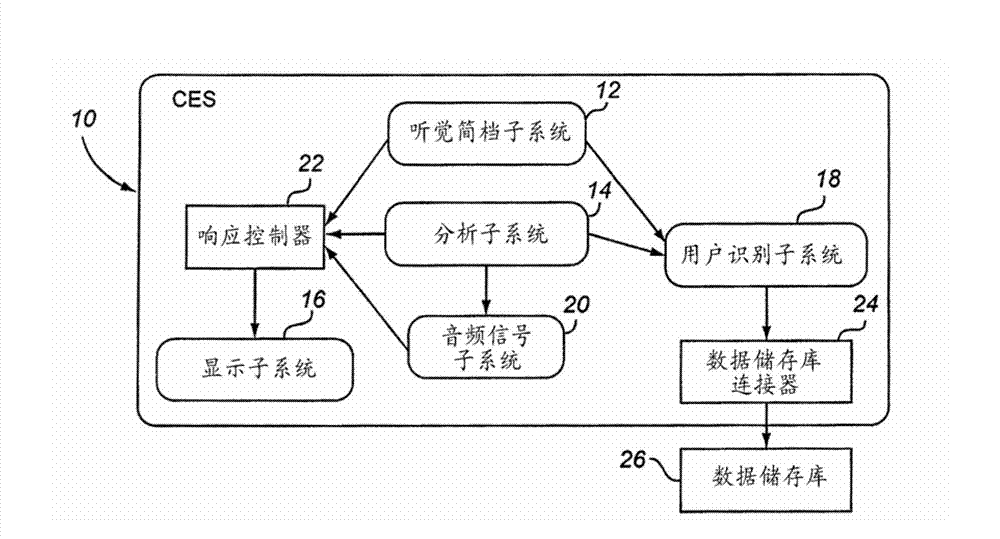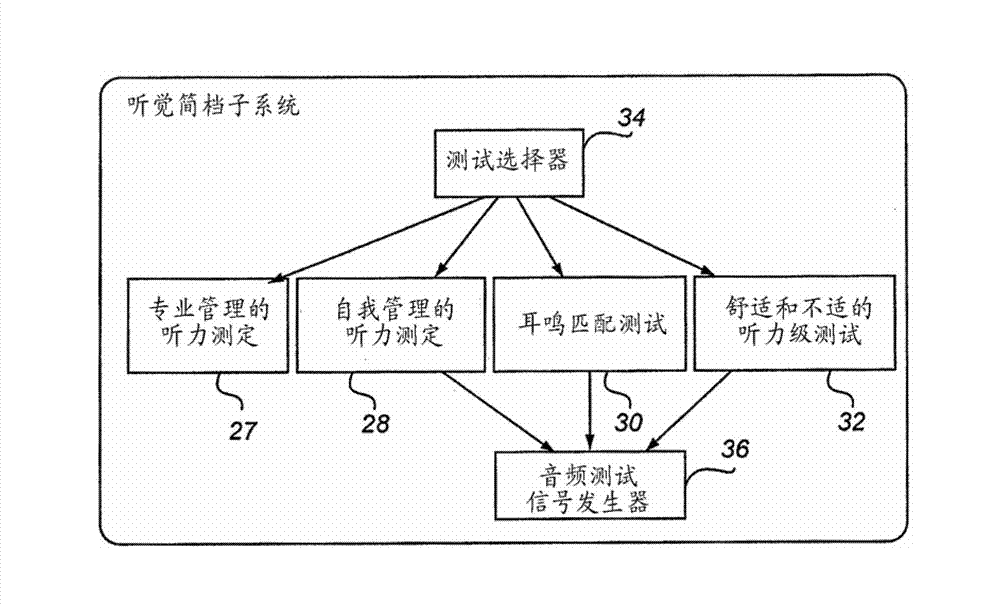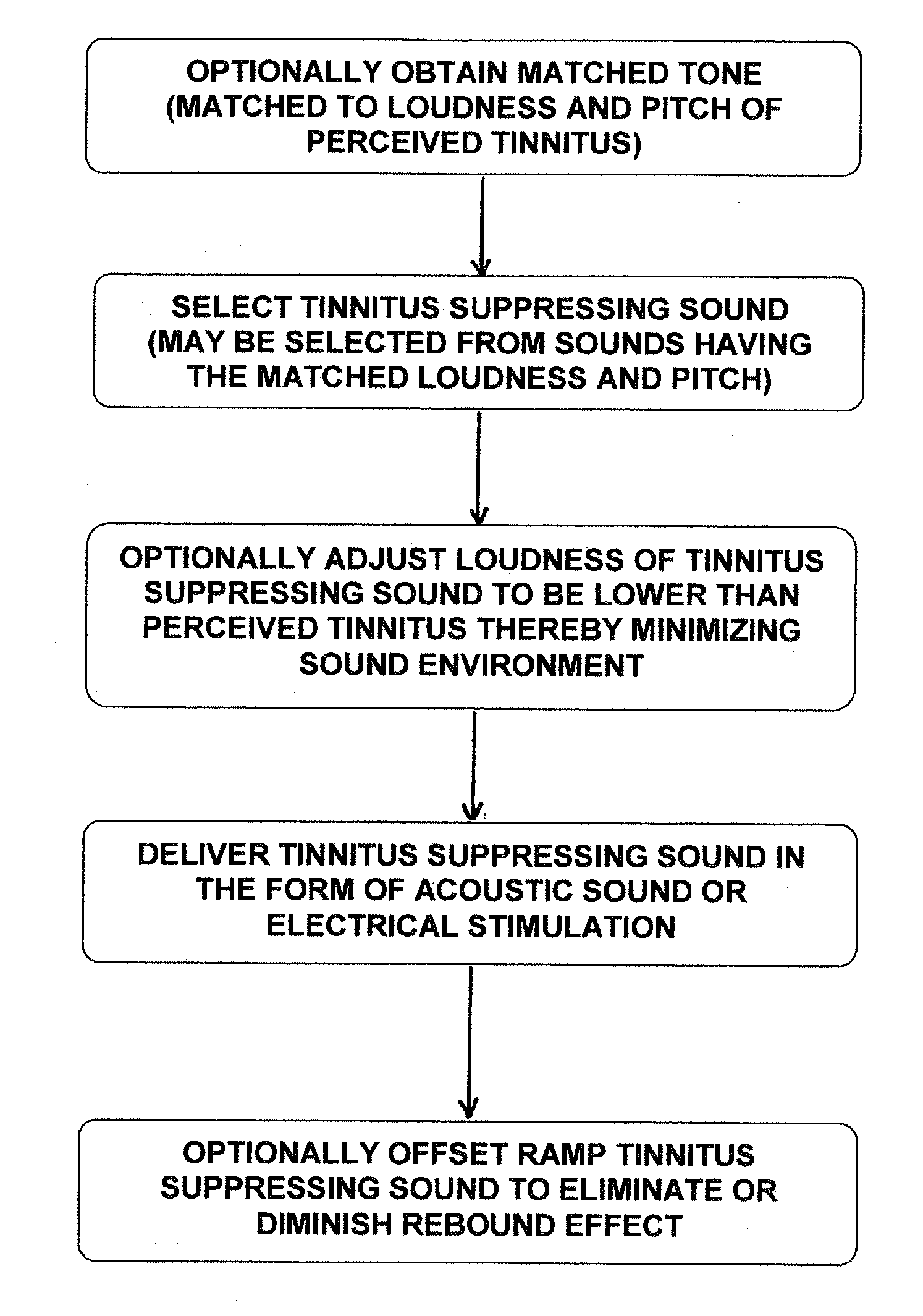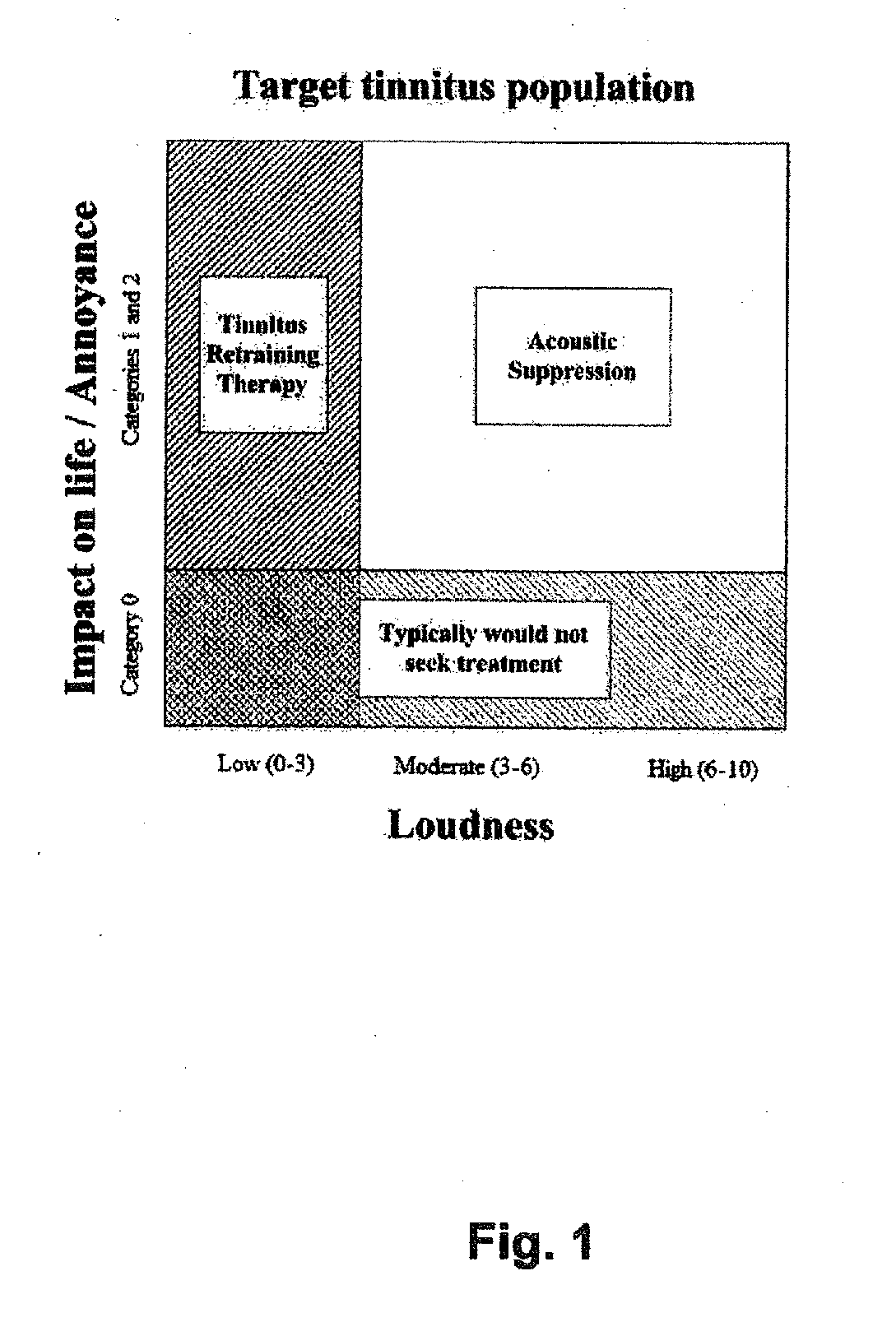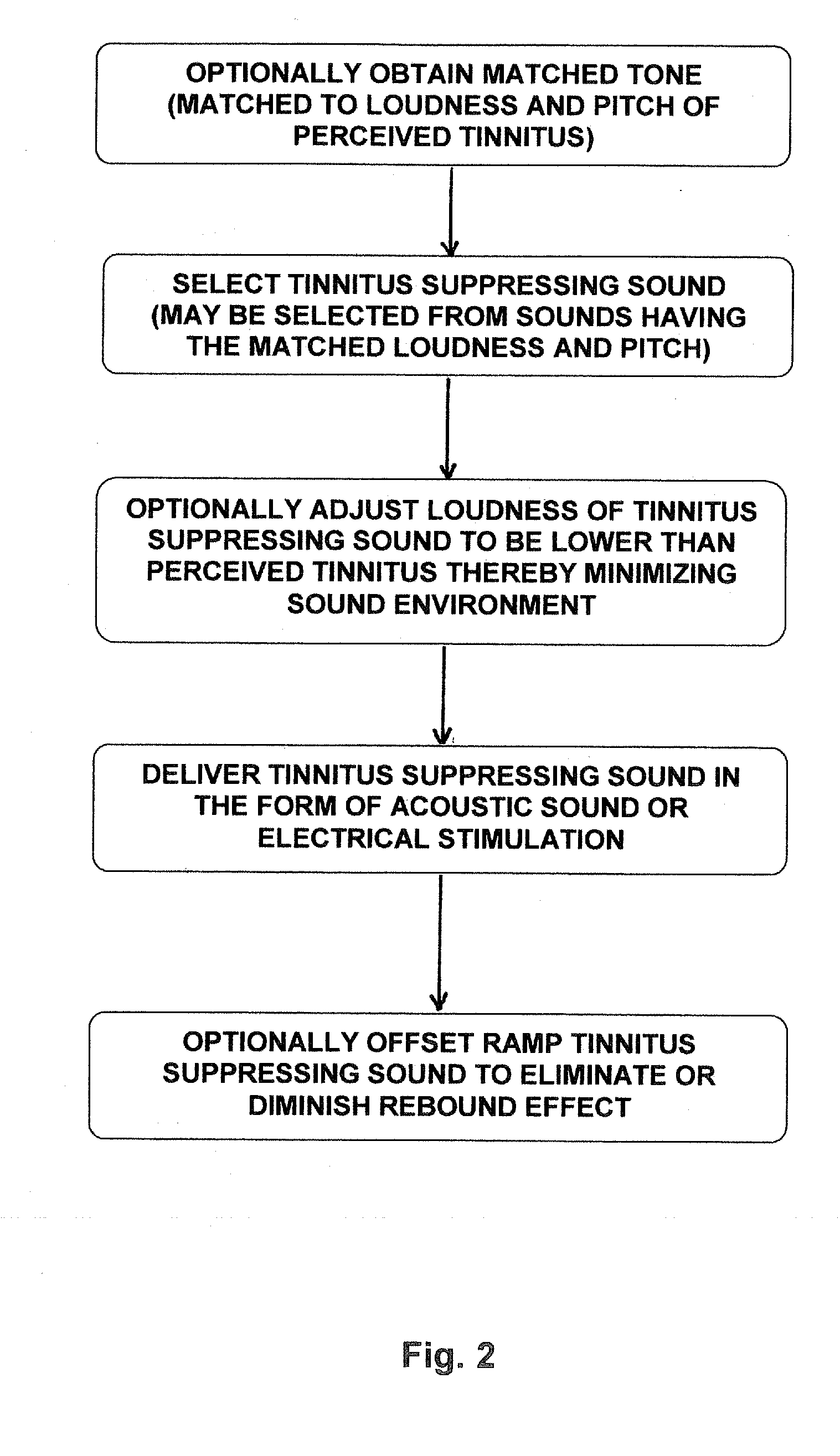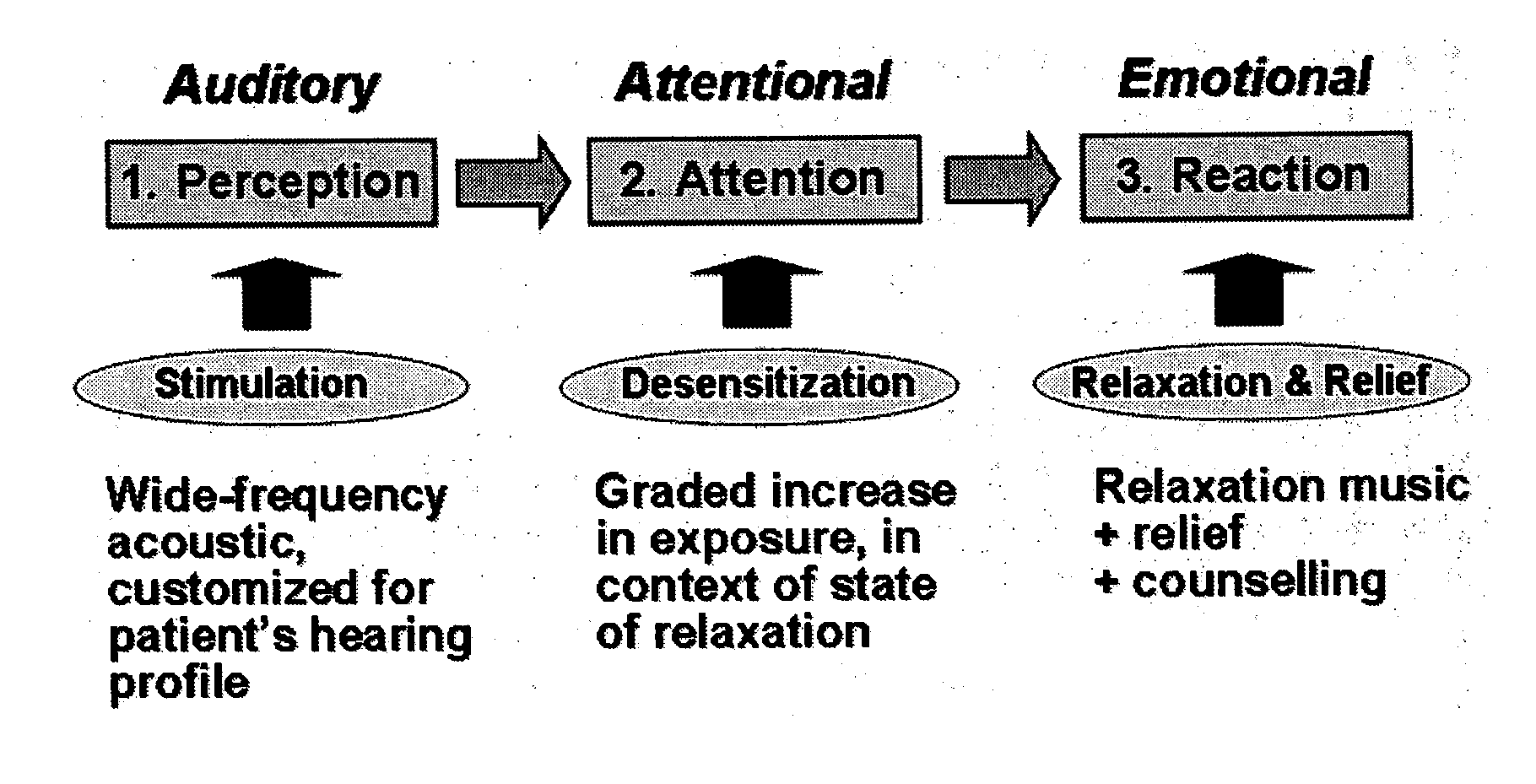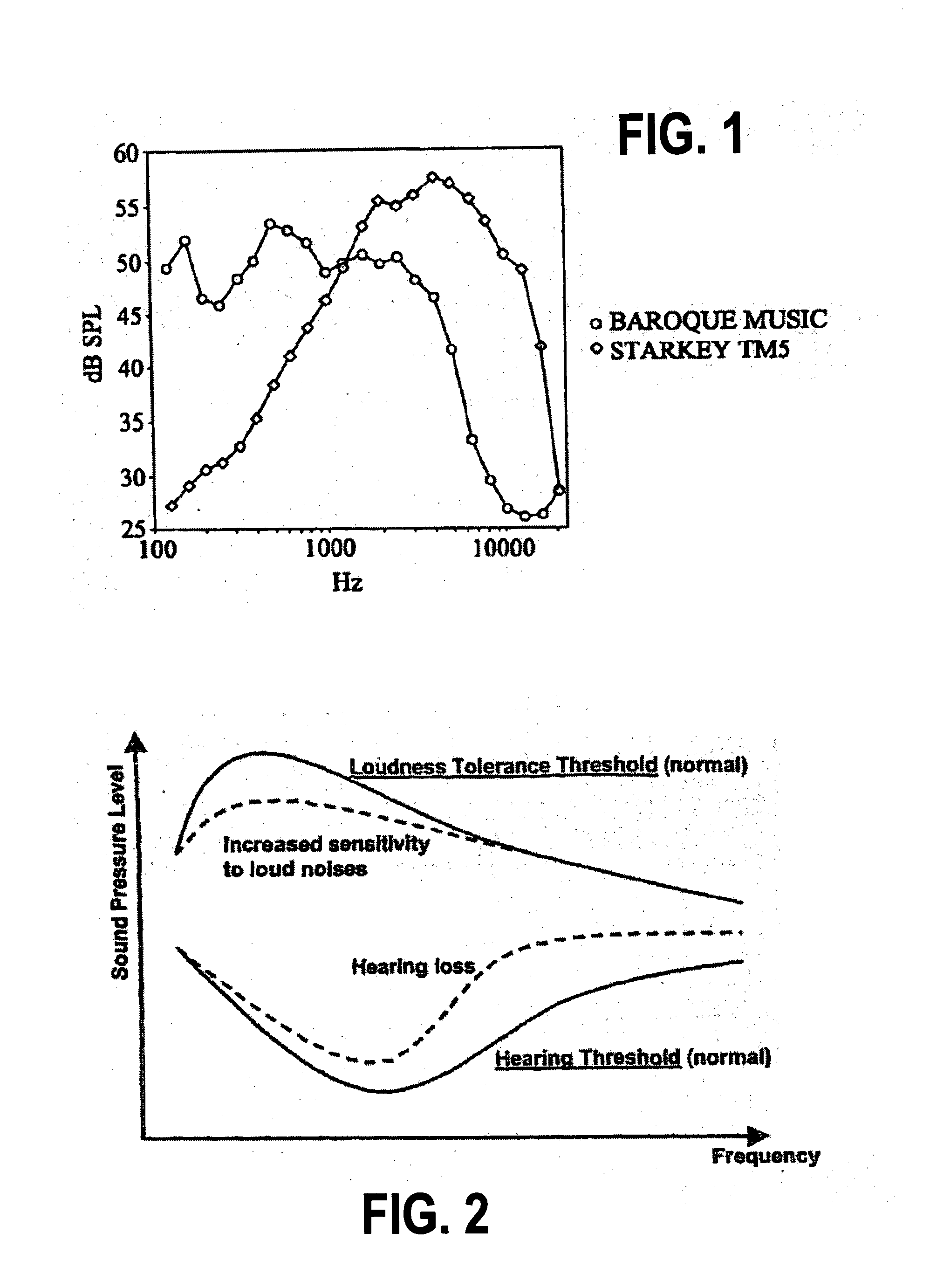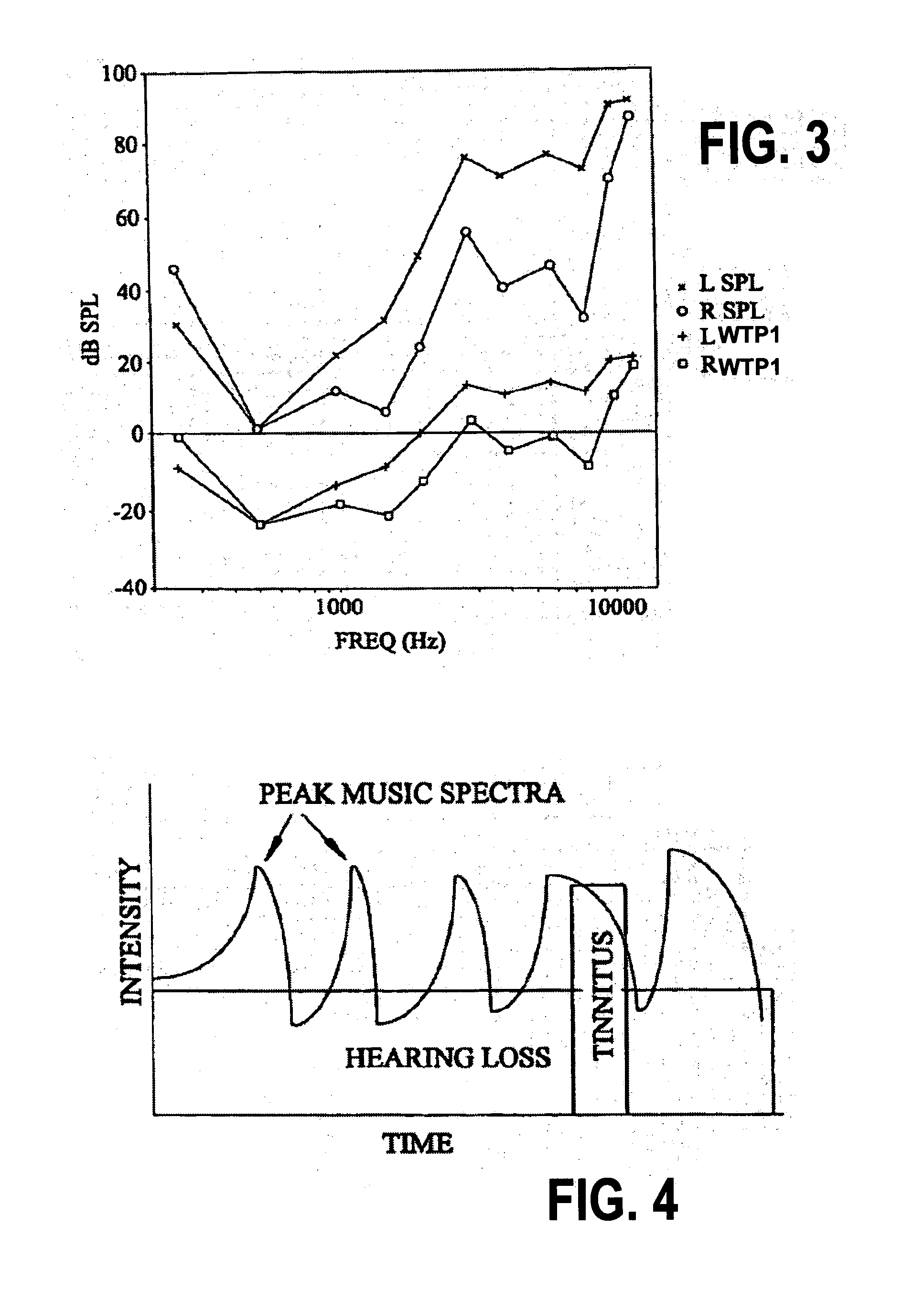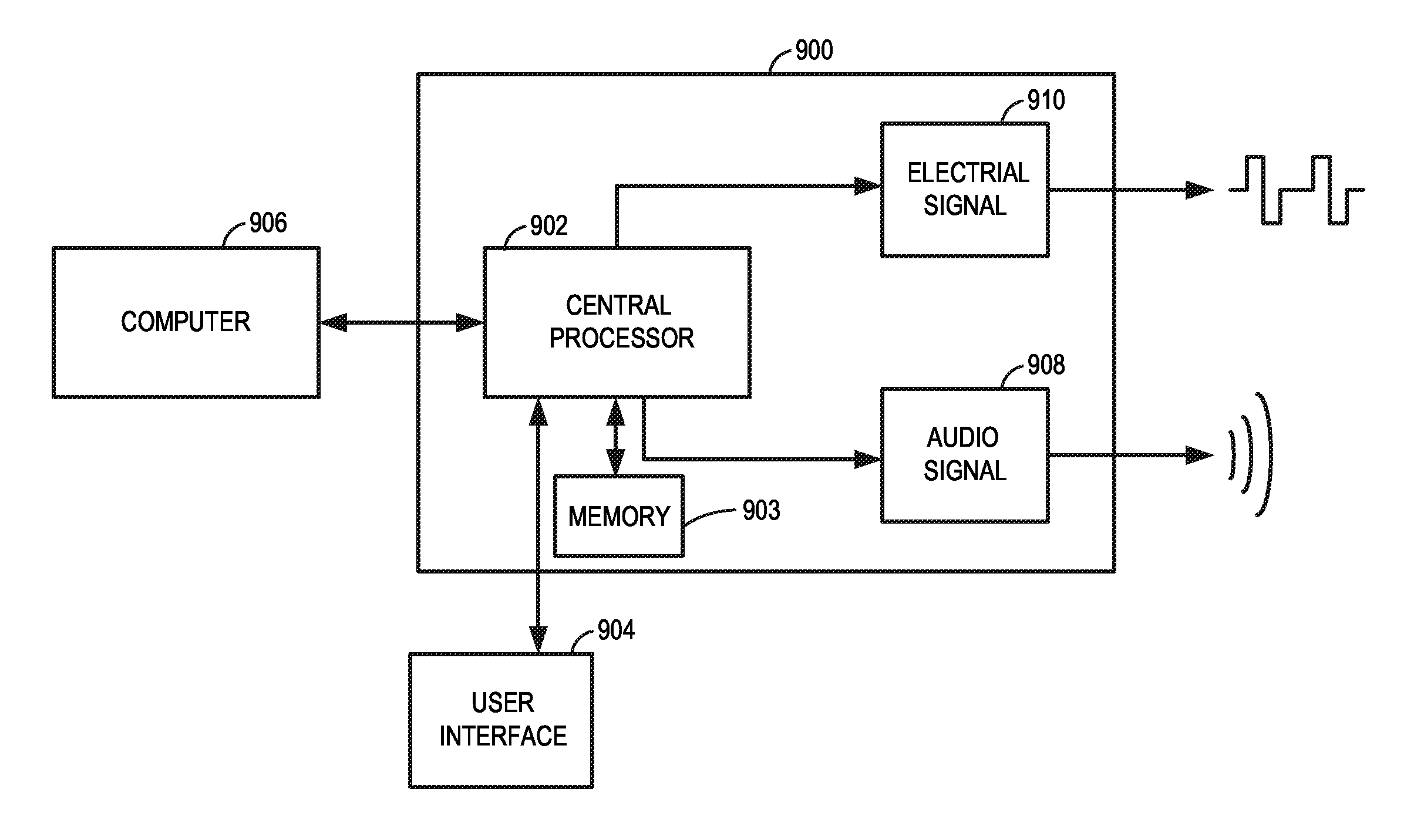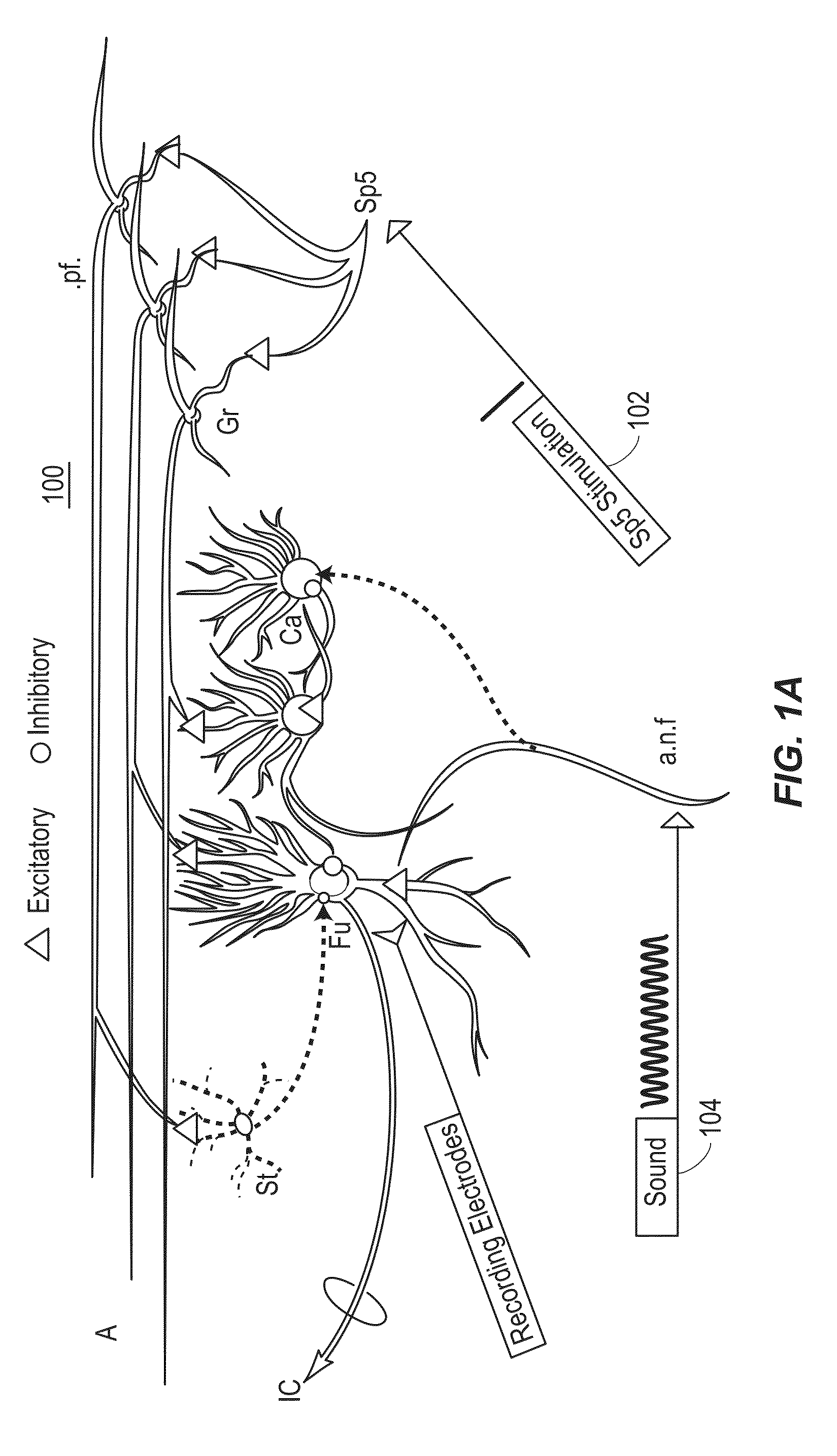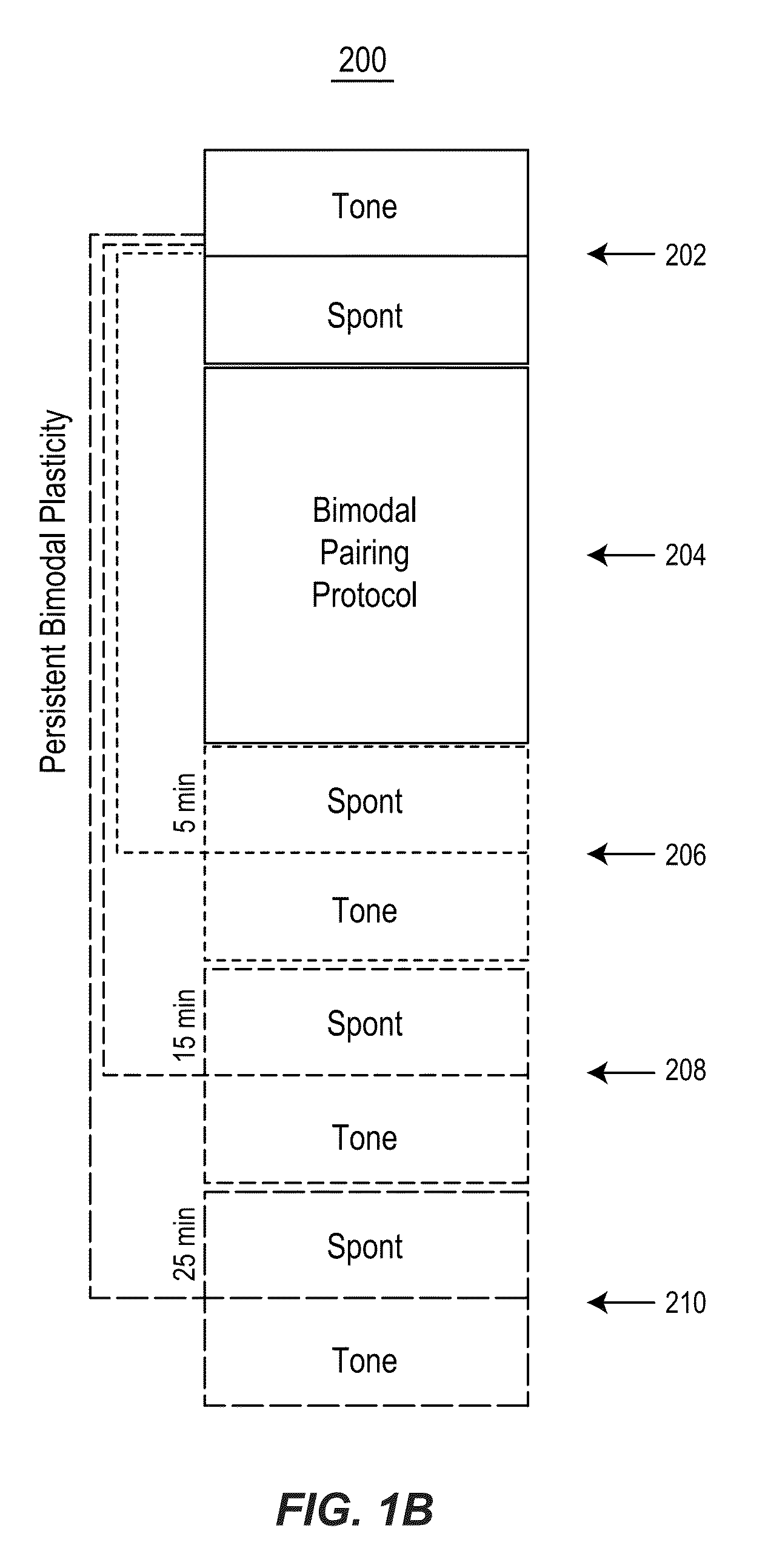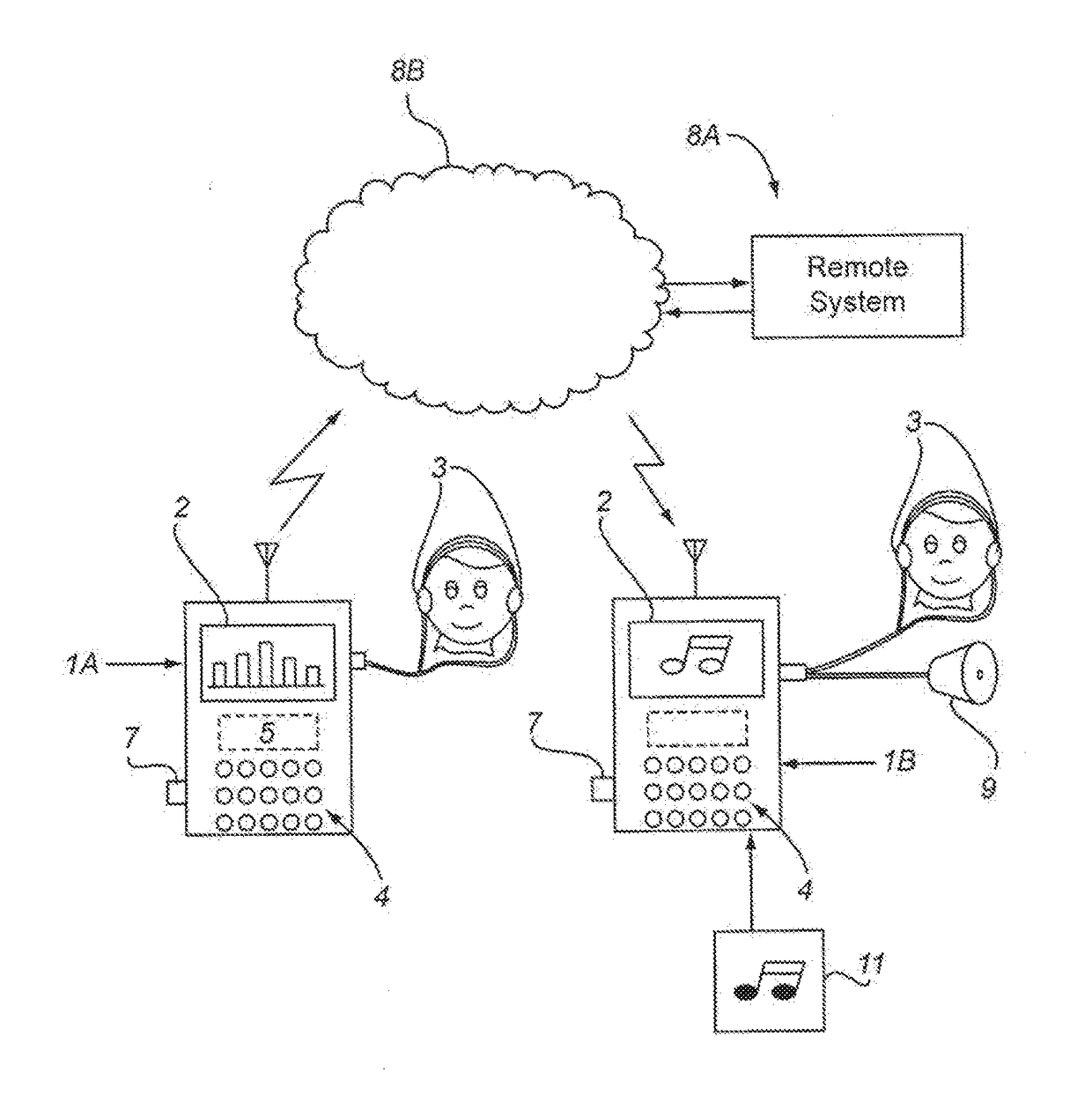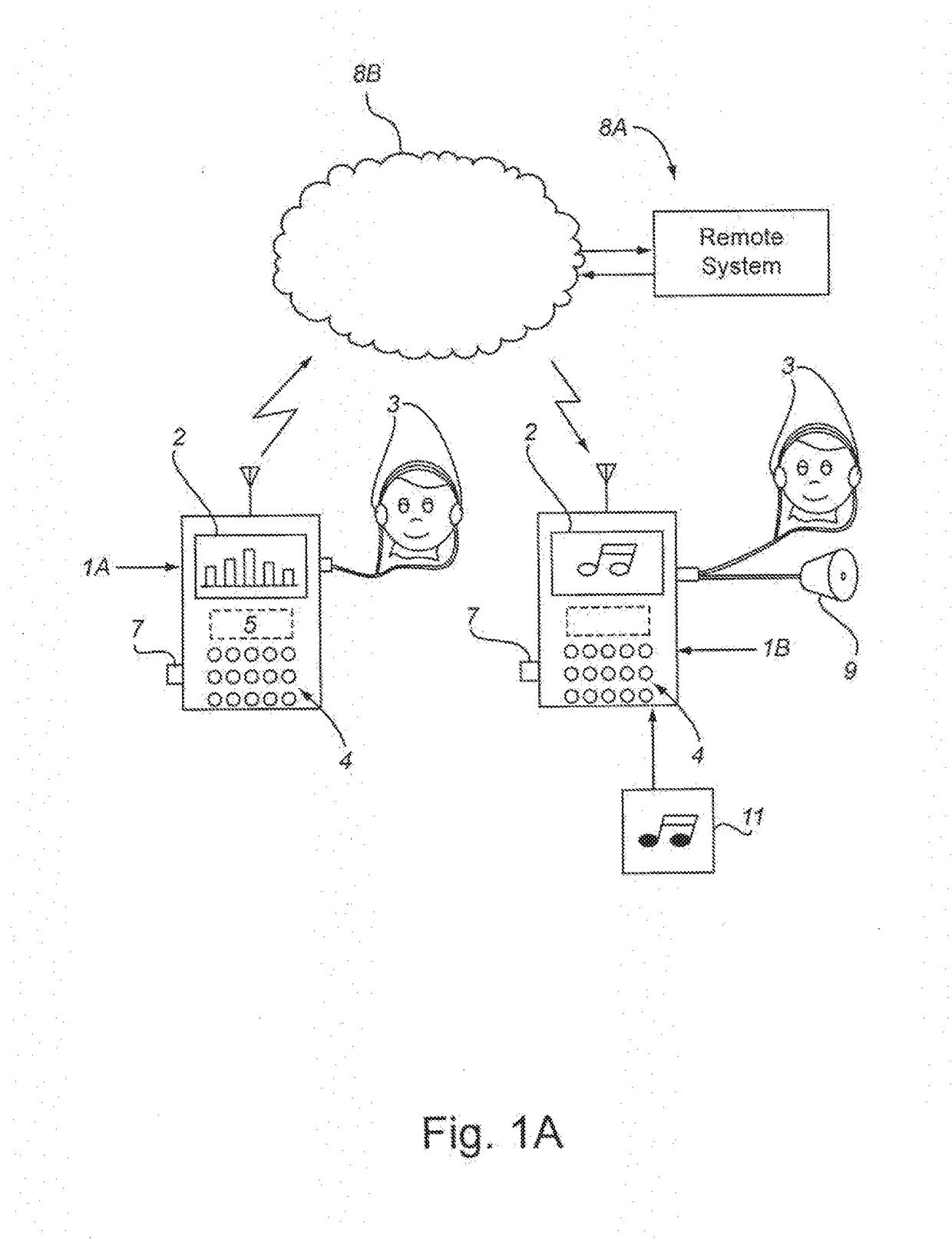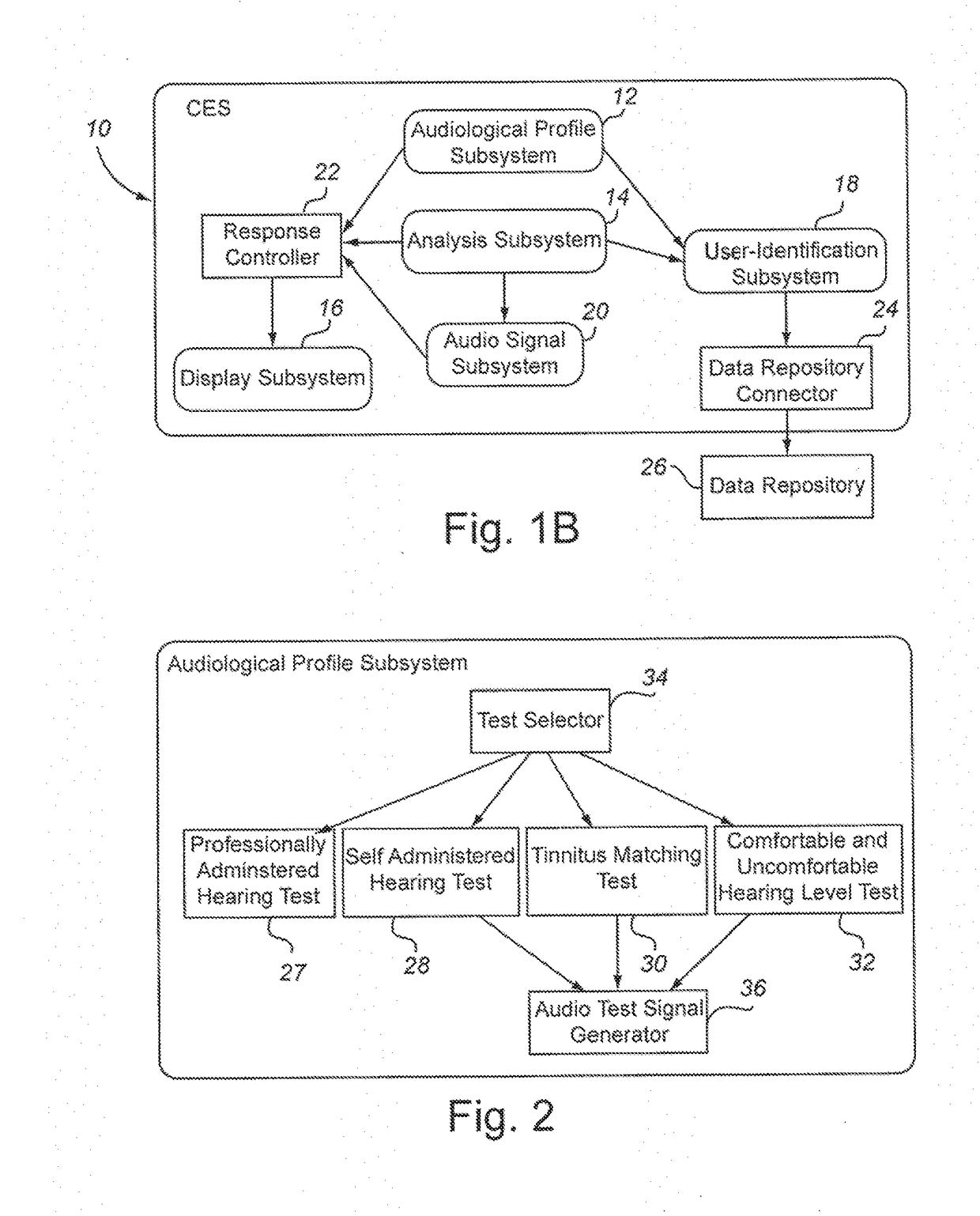Patents
Literature
196results about "Electric tinnitus maskers" patented technology
Efficacy Topic
Property
Owner
Technical Advancement
Application Domain
Technology Topic
Technology Field Word
Patent Country/Region
Patent Type
Patent Status
Application Year
Inventor
Tinnitus treatment system and method
A tinnitus masking system for use by a person having tinnitus The system comprises a sound delivery system having left and right ear-level audio delivery devices and is configured to deliver a masking sound to the person via the audio delivery devices such that the masking sound appears to originate from a virtual sound source location that substantially corresponds to the spatial location in 3D auditory space of the source of the tinnitus as perceived by the person. The masking sound being represented by left and right audio signals that are converted to audible sound by the respective audio delivery devices.
Owner:AUCKLAND UNISERVICES LTD
Tinnitus rehabilitation device and method
InactiveUS6682472B1Technique is effectiveEar treatmentElectric tinnitus maskersFrequency spectrumHabituation
A tinnitus method and device for providing relief to a person suffering from the disturbing effects of tinnitus is described. The method can be implemented entirely in software to spectrally modify an audio signal in accordance with a predetermined masking algorithm which modifies the intensity of the audio signal at selected frequencies. A predetermined masking algorithm is described which provides intermittent masking of the tinnitus wherein, at a comfortable listening level, during peaks of the audio signal the tinnitus is completely obscured, whereas during troughs the perception of the tinnitus occasionally emerges. In practice it has been found that such intermittent masking provides an immediate sense of relief, control and relaxation for the person, whilst enabling sufficient perception of the tinnitus for habituation and long term treatment to occur. Advantageously the predetermined masking algorithm is specifically tailored to the audiometric configuration of the person. For example, the masking algorithm may be partly tailored to the hearing loss characteristic of the person. A tinnitus rehabilitation device used in conjunction with a personal sound reproducing system is also described.
Owner:NEUROMONICS
Tinnitus rehabilitation device and method
InactiveUS20040131200A1Technique is effectiveElectric tinnitus maskersEar treatmentFrequency spectrumHabituation
A tinnitus method and device for providing relief to a person suffering from the disturbing effects of tinnitus is described. The method can be implemented entirely in software to spectrally modify an audio signal in accordance with a predetermined masking algorithm which modifies the intensity of the audio signal at selected frequencies. A predetermined masking algorithm is described which provides intermittent masking of the tinnitus wherein, at a comfortable listening level, during peaks of the audio signal the tinnitus is completely obscured, whereas during troughs the perception of the tinnitus occasionally emerges. In practice it has been found that such intermittent masking provides an immediate sense of relief, control and relaxation for the person, whilst enabling sufficient perception of the tinnitus for habituation and long term treatment to occur. Advantageously the predetermined masking algorithm is specifically tailored to the audiometric configuration of the person. For example, the masking algorithm may be partly tailored to the hearing loss characteristic of the person. A tinnitus rehabilitation device used in conjunction with a personal sound reproducing system is also described.
Owner:NEUROMONICS
Method and device for tinnitus therapy
A method and device for tinnitus therapy. The method includes generating pure sounds, each having a predetermined frequency, within an audible range, and waiting for a user to press an input button when the user hears the pure sound. Then, the hearing characteristics of the user are interpreted in conjunction with equal loudness contours. From this interpretation, either a tinnitus masking method or a tinnitus retraining therapy are selected according to the hearing characteristics of the user.
Owner:SAMSUNG ELECTRONICS CO LTD
Methods and apparatus for treating tinnitus
InactiveUS20080064993A1Defocus their attention to the tinnitusElectric tinnitus maskersChiropractic devicesSound therapyTransducer
Methods and apparatus for treating tinnitus are described where an oral appliance having an electronic and / or transducer assembly for generating sounds via a vibrating transducer element is coupled to a tooth or teeth. Generally, the transducer may generate one or more frequencies of sound via the actuatable transducer positioned against at least one tooth such that the sound is transmitted via vibratory conductance to an inner ear of the patient, whereby the sound completely or at least partially masks or provides sound therapy for habituation of the tinnitus perceived by the patient. The one or more generated frequencies may be correlated to measured tinnitus frequencies or they may be preset.
Owner:SOUNDMED LLC
Hearing aid system
InactiveUS7076076B2Avoid occlusion effectsAvoid feedbackEar supported setsElectric tinnitus maskersTelecommunicationsPlastic materials
The present invention relates to a system for improving a user's hearing and more particularly to a receiver system used in the system. In one embodiment, the receiver system has a housing and a plurality of arms extending from the housing for positioning and suspending the receiver within the ear canal of a user. Each of the arms may be formed from a flexible, plastic material or a bendable wire. In a second embodiment, the receiver system is surrounded by a disc formed from a sound filtering material. When installed in a hearing aid system, the receiver is separated from the microphone. When installed in a tinnitus / hyperacusis device, the receiver is separated from the body of the instrument.
Owner:VIVATONE HEARING SYST
Tinnitus rehabilitation device and method
InactiveUS7520851B2Sufficient perceptionElectric tinnitus maskersAudiometeringFrequency spectrumLong term treatments
A tinnitus method and device for providing relief to a person suffering from the disturbing effects of tinnitus is described. The method can be implemented entirely in software to spectrally modify an audio signal in accordance with a predetermined masking algorithm which modifies the intensity of the audio signal at selected frequencies. A predetermined masking algorithm is described which provides intermittent masking of the tinnitus wherein, at a comfortable listening level, during peaks of the audio signal the tinnitus is completely obscured, whereas during troughs the perception of the tinnitus occasionally emerges. In practice it has been found that such intermittent masking provides an immediate sense of relief, control and relaxation for the person, whilst enabling sufficient perception of the tinnitus for habituation and long term treatment to occur. Advantageously the predetermined masking algorithm is specifically tailored to the audiometric configuration of the person. For example, the masking algorithm may be partly tailored to the hearing loss characteristic of the person. A tinnitus rehabilitation device used in conjunction with a personal sound reproducing system is also described.
Owner:NEUROMONICS
System for rehabilitation of a hearing disorder
InactiveUS7376563B2Improve understandingAdverse effectElectrotherapyElectric tinnitus maskersEngineeringHearing perception
A system for rehabilitation of a hearing disorder which comprises at least one acoustic sensor for picking up an acoustic signal and converting it into an electrical audio signal, an electronic signal processing unit for audio signal processing and amplification, an electrical power supply unit which supplies individual components of the system with current, and an actuator arrangement which is provided with one or more electroacoustic, electromechanical or purely electrical output-side actuators or any combination of these actuators for stimulation of damaged hearing, wherein the signal processing unit has a speech analysis and recognition module and a speech synthesis module.
Owner:COCHLEAR LIMITED
Methods and apparatus for transmitting vibrations
Methods and apparatus for transmitting vibrations via an electronic and / or transducer assembly through a dental implant are disclosed herein. The assembly may be attached, adhered, or otherwise embedded into or upon the implant to form a hearing assembly. The electronic and transducer assembly may receive incoming sounds either directly or through a receiver to process and amplify the signals and transmit the processed sounds via a vibrating transducer element coupled to a tooth or other bone structure, such as the maxillary, mandibular, or palatine bone structure.
Owner:SHENGTUO MEDICAL TECH (SHANGHAI) CO LTD
Methods and apparatus for treating tinnitus
InactiveUS20090099408A1Defocus their attention to the tinnitusElectric tinnitus maskersOrgan movement/changes detectionSound therapyHabituation
Methods and apparatus for treating tinnitus are described where an oral appliance having an electronic and / or transducer assembly for generating sounds via a vibrating transducer element is coupled to a tooth or teeth. Generally, the transducer may generate one or more frequencies of sound via the actuatable transducer positioned against at least one tooth such that the sound is transmitted via vibratory conductance to an inner ear of the patient, whereby the sound completely or at least partially masks or provides sound therapy for habituation of the tinnitus perceived by the patient. The one or more generated frequencies may be correlated to measured tinnitus frequencies or they may be preset.
Owner:SOUNDMED LLC
Aural rehabilitation system and a method of using the same
A system and method for aural rehabilitation is disclosed. A system and method for neurological rehabilitation or training is disclosed. The system can be controlled automatically by a remote device or manually by a physician's device. The system can store data in, and retrieve data from a database for analysis, reporting and execution. The system can adapt and adjust based on the subject's performance. The system can be used to treat hearing loss, tinnitus or other audiological health problems.
Owner:NEUROTONE
Tinnitus masking systems
InactiveUS20090147976A1Defocus their attention to the tinnitusElectric tinnitus maskersTeeth fillingOral applianceTransducer
Tinnitus masking systems for treating tinnitus are described where a device is coupled to a surface of a bone or to a tooth or several teeth. Such a device may comprise an oral appliance having an electronic and / or transducer assembly for generating sounds via a vibrating transducer element. Generally, the transducer may generate one or more frequencies of sound via the actuatable transducer to transmit a modified audio signal via vibratory conductance to an inner ear of the patient to mask tinnitus during a peak of the audio signal and to allow the user to perceive the tinnitus during a trough of the audio signal. The audio signal is also modified to account for any hearing loss of the patient as well as a bone conductance profile measured from the patient.
Owner:SOUNDMED LLC
Eardrum Supported Nanomembrane Transducer
ActiveUS20140254856A1Interference minimizationClose relationshipElectric tinnitus maskersAcoustic sensorsTransducerTympanic Membranes
A flexible membrane of piezoelectric material sized to be supported by and to conform to the eardrum. Electrodes on the membrane allow the membrane to function as an audio transducer stimulating the eardrum with an audio signal or detecting audio signals at the eardrum. Applications may include detecting a variety of pathophysiological and biomechanical features of the tissues of the tympanic membrane and regional integrated anatomy, detecting audio, physical and biological signals, and / or delivery a variety of therapeutic modalities.
Owner:WISCONSIN ALUMNI RES FOUND
Auditory treatment device
The invention relates to a hearing aid for correcting hearing impairments, comprising a metal housing which has a battery compartment and a sound exit opening. According to the invention, the housing surrounds the electronics located in the treatment device in such a way as to shield them from electromagnetic waves on all sides and the sound exit opening is sealed by an acoustically permeable, water-tight film. The housing also has an essentially cylindrical shape.
Owner:AURIC HORSYST
Tinnitus rehabilitation device and method
InactiveUS20090180652A1Sufficient perceptionElectric tinnitus maskersAudiometeringFrequency spectrumLong term treatments
A tinnitus method and device for providing relief to a person suffering from the disturbing effects of tinnitus is described. The method can be implemented entirely in software to spectrally modify an audio signal in accordance with a predetermined masking algorithm which modifies the intensity of the audio signal at selected frequencies. A predetermined masking algorithm is described which provides intermittent masking of the tinnitus wherein, at a comfortable listening level, during peaks of the audio signal the tinnitus is completely obscured, whereas during troughs the perception of the tinnitus occasionally emerges. In practice it has been found that such intermittent masking provides an immediate sense of relief, control and relaxation for the person, whilst enabling sufficient perception of the tinnitus for habituation and long term treatment to occur. Advantageously the predetermined masking algorithm is specifically tailored to the audiometric configuration of the person. For example, the masking algorithm may be partly tailored to the hearing loss characteristic of the person. A tinnitus rehabilitation device used in conjunction with a personal sound reproducing system is also described.
Owner:NEUROMONICS
Tinnitus hearing aid
ActiveCN102075842AEasy to adjustMeeting treatment needsElectric tinnitus maskersFeature extractionComputer module
The invention relates to a tinnitus hearing aid which comprises a tinnitus masking module and a hearing compensation module, and is characterized in that the tinnitus hearing aid further comprises a control module; the control module comprises a pre-setting unit, a selecting unit and a voice classification device; the pre-setting unit is used for selecting any one function mode in tinnitus masking, hearing compensation and tinnitus masking and hearing compensation, and inputting related preset parameters; the voice classification device is used for sequentially performing pre-treatment, feature extraction and classification according to received signals, and finally determining a sound field environment; a signal processing algorithm is selected and the parameters in the signal processingalgorithm are adjusted according to the function mode selected by the pre-setting unit and the determined sound field environment, and optimal combination is further performed; and the selecting unitis used for opening the voice classification device and working according to the function mode selected by the pre-setting unit.
Owner:BEIJING CONHEARING MEDICAL SCI & TECH
Bone Conduction Hearing Aid System
ActiveUS20160234613A1Efficient preparationEnabling changeElectric tinnitus maskersBone conduction transducer hearing devicesAdhesiveMedicine
A bone conduction hearing aid system includes a hearing aid housing with a hearing aid vibrator. A skin interface has an interface connector offset on an outer interface surface and detachably connected to a housing connector. A skin adhesive connects to the skin of a patient user to transmit the sound vibrations through the skin to underlying skull bone for transmission by bone conduction to a hearing organ of the user. When the skin adhesive is pressed against the skin of the user, the skin is initially engaged during an initial engagement period with an initial adhesive force that promotes removal and relocation of the skin interface, and the skin is fully engaged after the initial engagement period with a full adhesive force greater than the initial adhesive force that promotes a fixed secure connection that resists removal of the skin interface.
Owner:MED EL ELEKTROMEDIZINISCHE GERAETE GMBH
Methods and systems for treating tinnitus
ActiveUS20110071340A1Reduce perceptionElectric tinnitus maskersSleep inducing/ending devicesPattern perceptionPatient exposure
Methods and systems for treating tinnitus are provided. Some embodiments include a method of providing a primary audio signal having a primary peak portion substantially centered at about a tinnitus frequency of a patient. The method may also include combining the primary audio signal with a general audio signal to generate a combined sound. The method may also include exposing the patient to the combined sound so that the patient hears the combined sound, to diminish a perception by the patient of tinnitus.
Owner:RGT UNIV OF CALIFORNIA
Preprogrammed hearing assistance device with program selection using a multipurpose control device
ActiveUS20090196448A1Improved sound perceptionEasy to operateElectric tinnitus maskersDeaf aid adaptationHearing aidExtended time
A user programmable hearing aid allows a user to select acoustical configuration programs that provide optimum performance for the user. The user may cycle through and evaluate various available programs by rotating a scroll wheel on the hearing aid housing to switch from one program to the next. When a preferred program is active, the user can press a push button on the housing for an extended time to select the currently active program. The user can then use the scroll wheel to adjust the audio gain for the selected program. The hearing aid may also operate in a Configuration Mode wherein configuration settings may be changed using the scroll wheel and the push button. In the Configuration Mode, a clinician or patient may easily change configuration settings manually, with no need to connect the apparatus to a computer or other programming interface.
Owner:SCHUMAIER DANIEL R
Neuroaudiological central auditory test apparatus and method of differentiation of the neural correlates in ptsd, tbi, autism, adhd, et al
An apparatus, software, procedures and technology that, beginning with a simple manipulative auditory paradigm, moves up the auditory neural pathways, modifying the basic stimulus from a unilateral routine audiology tool to a dichotic central auditory processing diagnostic tool that defines hearing loss along the entire auditory chain from the middle ear to the cortex. From the resultant data comes information related to the reduction of tinnitus employing parathreshold central procedures rather than the traditional suprathreshold masking or phase-shifting techniques. The new application modifies and applies known technology in new ways for both the top-down and bottom-up differential diagnosis of auditory disorders and the tinnitus reduction.
Owner:DICHONICS CORP
Hearing aid and a method for alleviating tinnitus
ActiveUS20130039517A1Complicated and expensive equipmentEar treatmentElectric tinnitus maskersTransducerBand-stop filter
A hearing aid (62, 72, 82, 92, 102, 112) adapted for alleviating tinnitus of a user (75), comprises an audio input means (83), a signal processing unit (88, 98, 108, 118) and an output transducer (80). The hearing aid further comprises a band stop filter (87) arranged to match a tinnitus of the user and switching means (86, 116) and switch control means (84, 114) for controlling the switching of said band stop filter (87) into and out of the signal path between the audio input means (83) and the output transducer (80), in response to a predefined trigger event. The invention further provides a method of adjusting a hearing aid.
Owner:WIDEX AS
A method for fitting a hearing device as well as an arrangement for fitting the hearing device
ActiveUS20160337769A1Increase the number ofShort “ feedback-loop ”Electric tinnitus maskersDeaf aid adaptationEngineeringHearing apparatus
An exemplary method for fitting a hearing device to a hearing device user performed by a fitting system operatively connected to but remote from the hearing device includes providing, to the hearing device, an adjustable parameter identified by a fitter using a fitting system and a specification comprising an allowed range for the adjustable parameter defined by the fitter using the fitting system. The method further includes transferring the adjustable parameter and the specification to a user interface operatively connected to the hearing device and located with the hearing device for use by the hearing device user, receiving an adjusted parameter value for the adjustable parameter adjusted by the hearing device user with aid of the user interface to be within the allowed range, and updating the adjustable parameter in a transfer function of the hearing device based on the adjusted parameter value
Owner:SONOVA AG
Otoplasty for behind-the-ear (BTE) hearing aids
InactiveUS7233676B2Prevent bulk materialImprove wearing comfortElectric tinnitus maskersBehind the ear hearing aidsEar AuricleDiagonal
An otoplastic for production of behind-the-ear hearing aids. The hearing aid includes a preferably flexible signal conductor, such as an acoustic tube positioned in the auditory canal, whereby the otoplastic matches the individual anatomy of the patient and its locating part is in the form of a clip, which, at least partly arched, follows the outer edge of the cavum conchae. A branch following the edge of the cavum conchae transforms, above the antitragus, into a bent crosspiece traversing the cavum conchae and extending in the direction of the porous acusticus externus. The end section of the crosspiece lies in the upper section of the auditory canal and widens to accept the signal conductor (42).
Owner:BAYER ERICH
Methods and apparatus for transmitting vibrations
Methods and apparatus for transmitting vibrations via an electronic and / or transducer assembly through a dental implant are disclosed herein. The assembly may be attached, adhered, or otherwise embedded into or upon the implant to form a hearing assembly. The electronic and transducer assembly may receive incoming sounds either directly or through a receiver to process and amplify the signals and transmit the processed sounds via a vibrating transducer element coupled to a tooth or other bone structure, such as the maxillary, mandibular, or palatine bone structure.
Owner:SHENGTUO MEDICAL TECH (SHANGHAI) CO LTD
Method and device for tinnitus masking
ActiveUS20090099476A1Promote productionEar treatmentElectric tinnitus maskersComputer scienceTinnitus
A method for generating optimized tinnitus masks includes, for example, presenting stimuli in succession to a user, receiving the user's rating of the effectiveness of each presented stimulus in reducing tinnitus, selecting a subset of the stimuli to maintain as tinnitus masks, and, generating variant stimuli from the subset of the stimuli that is maintained as tinnitus masks.
Owner:NATURAL SELECTION
Method and system for self-managed sound enhancement
ActiveCN103098492ARelieve tinnitusAvoid tinnitusEar treatmentElectric tinnitus maskersHearing deficitHearing test
A system and method are provided for capturing hearing characteristics from self-administered hearing tests or from professionally administered hearing tests, including loudness tolerance levels as at different sound frequencies, as an individualized audiological profile for automatically enhancing audio to complement and address as closely as possible an individual's hearing deficits. The user may self-administer a hearing test on a convenient personal apparatus, such as a smartphone. The system includes the ability for capturing an environment profile. The user's hearing is protected against harm in the enhanced audio setting while being provided with the option of an "enhanced hearing" experience. The invention is useful for any individual seeking an enhanced hearing experience, whether having hearing within normal range or hearing that is impaired. Thus the system is useful as a hearing aid.
Owner:ACE COMMUNICATIONS LTD
Devices and methods for suppression of tinittus
ActiveUS20110105967A1Suppressing tinnitusSuppress tinnitusElectrotherapyEar treatmentAnimal subjectTinnitus
Methods and devices for treating tinnitus in human or animal subjects wherein the subject is caused to perceive a tinnitus suppressing sound which fully or partially suppresses the subject's tinnitus. In some embodiments of this method, the subject selects a sound that he or she perceives to be the same as the tinnitus and that sound (or a similar sound that is complementary to the subject's perceived tinnitus) is then used as the tinnitus suppressing sound. In other embodiments, the tinnitus suppressing may be a sound that has previously been determined to suppress tinnitus in a substantial number of subjects.
Owner:RGT UNIV OF CALIFORNIA
Systems methods and apparatuses for rehabilitation of auditory system disorders
InactiveUS20110137111A1Electric tinnitus maskersHearing aids signal processingFrequency spectrumAuditory system
Systems, methods and apparatuses for auditory system disorder rehabilitation by providing a stimulus to the auditory system of an individual experiencing an auditory disorder, tinnitus, conditions of reduced tolerance of loud sounds, or combinations thereof comprising, for example, a playback device and a method and apparatus for modifying an audio signal. The methods may include allowing a user to select an audio source (for example, a music track or the audio output of a television program) and modifying the audio with a spectral modified signal to create a spectrally modified audio. The spectrally modified audio can then be output by the playback device or other means for listening by the user.
Owner:NEUROMONICS
Personalized auditory-somatosensory stimulation to treat tinnitus
ActiveUS9242067B2Reduce tinnitusEar treatmentElectric tinnitus maskersAuditory systemSpike-timing-dependent plasticity
Owner:RGT UNIV OF MICHIGAN
Method and system for self-managed sound enhancement
ActiveUS20180035216A1Reduce tinnitusEasy to producePosition data use in hearing devicesSignal processingHearing deficitSignalling pathways
A system for capturing an individual's hearing characteristics, including loudness tolerance levels at different sound frequencies, as an individualized shaped auditory profile for automatically enhancing audio to complement and address an individual's hearing deficits experienced via a particular signal pathway including the audio device, the sound environment, and the individual's hearing capabilities. The auditory profile is used to produce enhanced sound subsequently transmitted to the individual via the same signal pathway. The enhanced sound may be produced with consideration of both ears' auditory profile shapes together to increase the dynamic range of the enhanced sound. The sound enhancement can be introduced gradually over a sound reproduction session or a period of time of use. Manual gain adjustments applied by multiple users to particular sound enhancement are recorded and used in pattern recognition to allow the system to learn and suggest alternatives to the desired sound enhancement for the auditory profile.
Owner:ACECOM
Features
- R&D
- Intellectual Property
- Life Sciences
- Materials
- Tech Scout
Why Patsnap Eureka
- Unparalleled Data Quality
- Higher Quality Content
- 60% Fewer Hallucinations
Social media
Patsnap Eureka Blog
Learn More Browse by: Latest US Patents, China's latest patents, Technical Efficacy Thesaurus, Application Domain, Technology Topic, Popular Technical Reports.
© 2025 PatSnap. All rights reserved.Legal|Privacy policy|Modern Slavery Act Transparency Statement|Sitemap|About US| Contact US: help@patsnap.com
